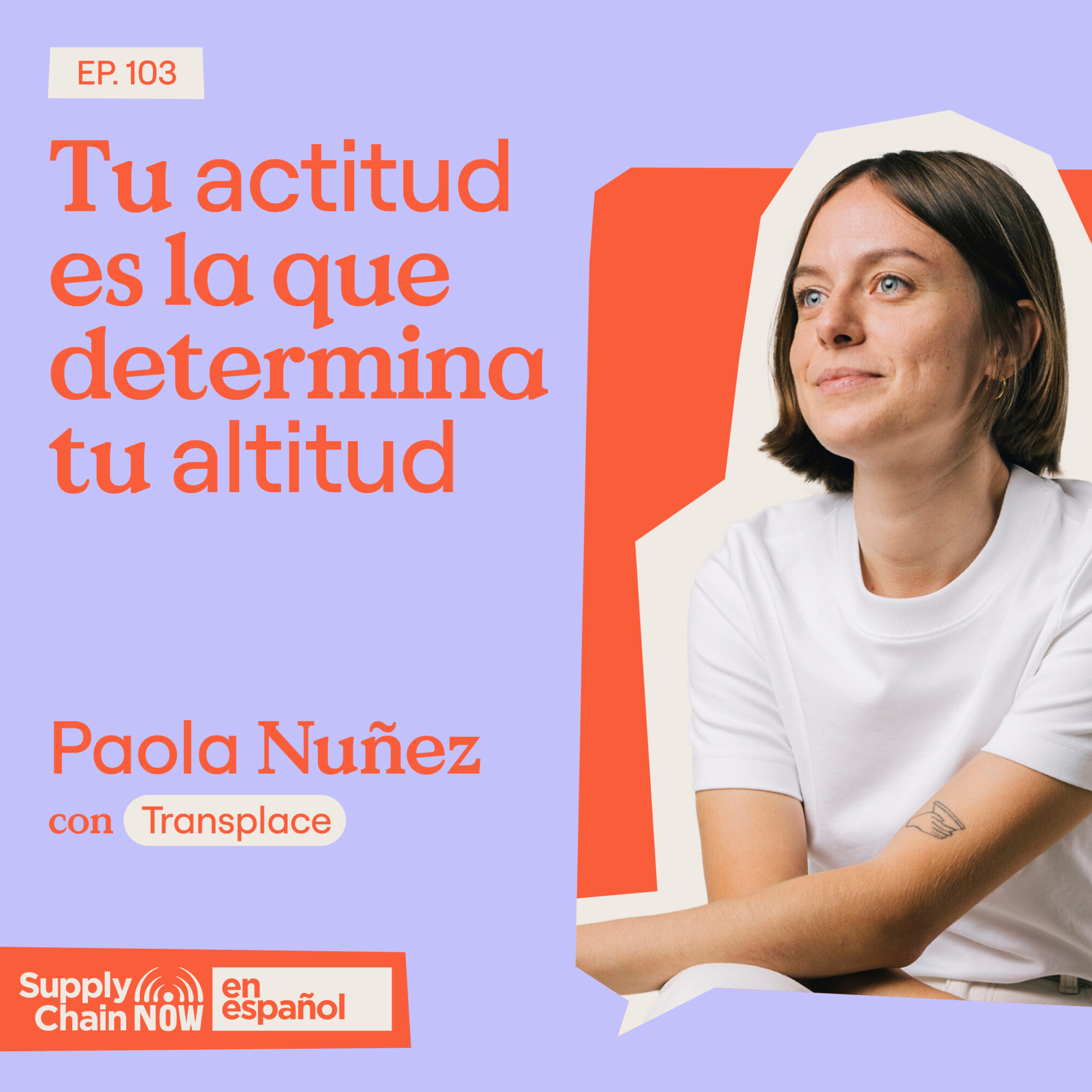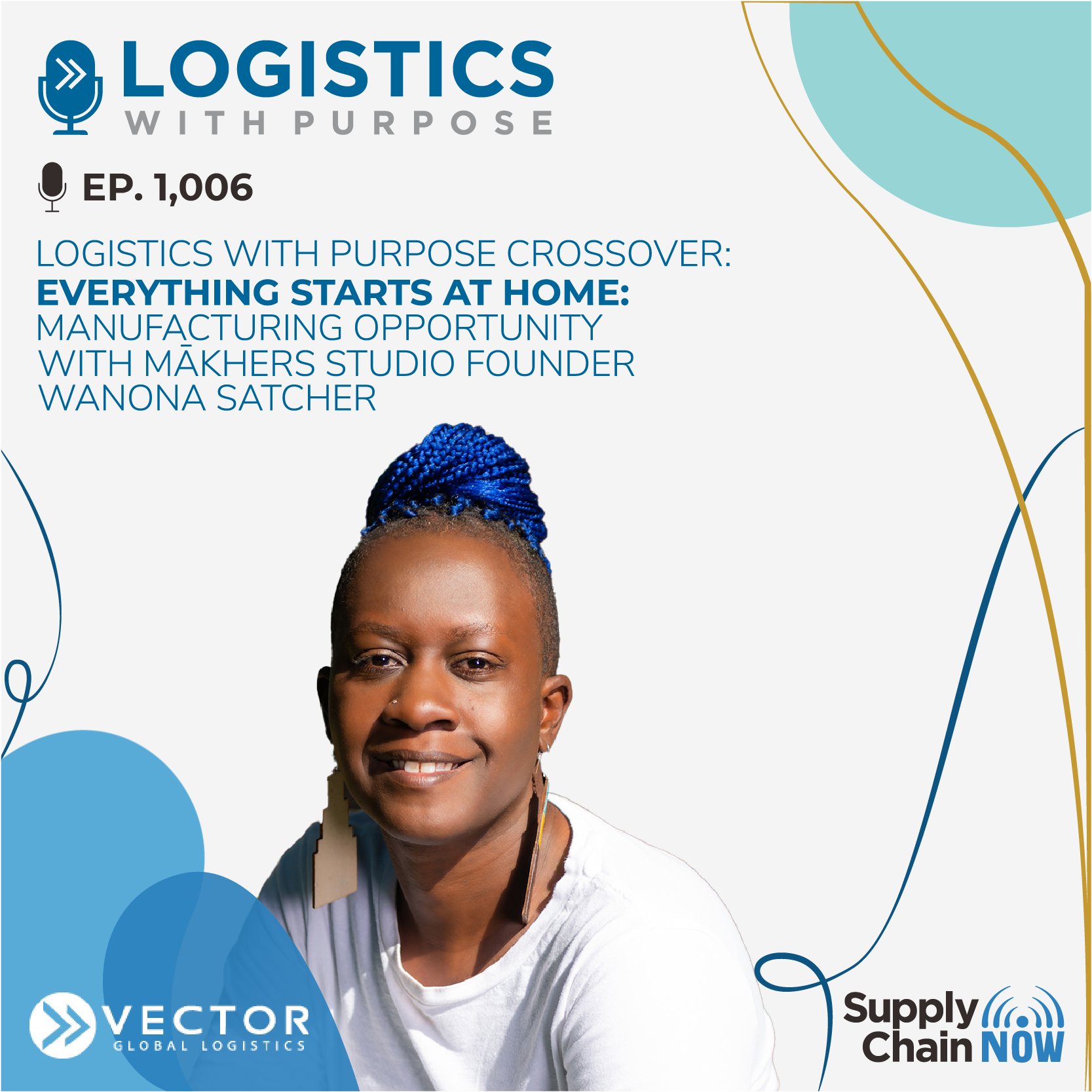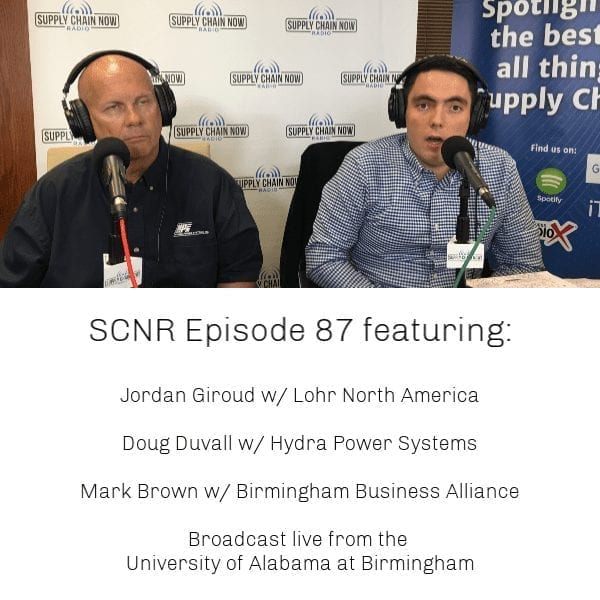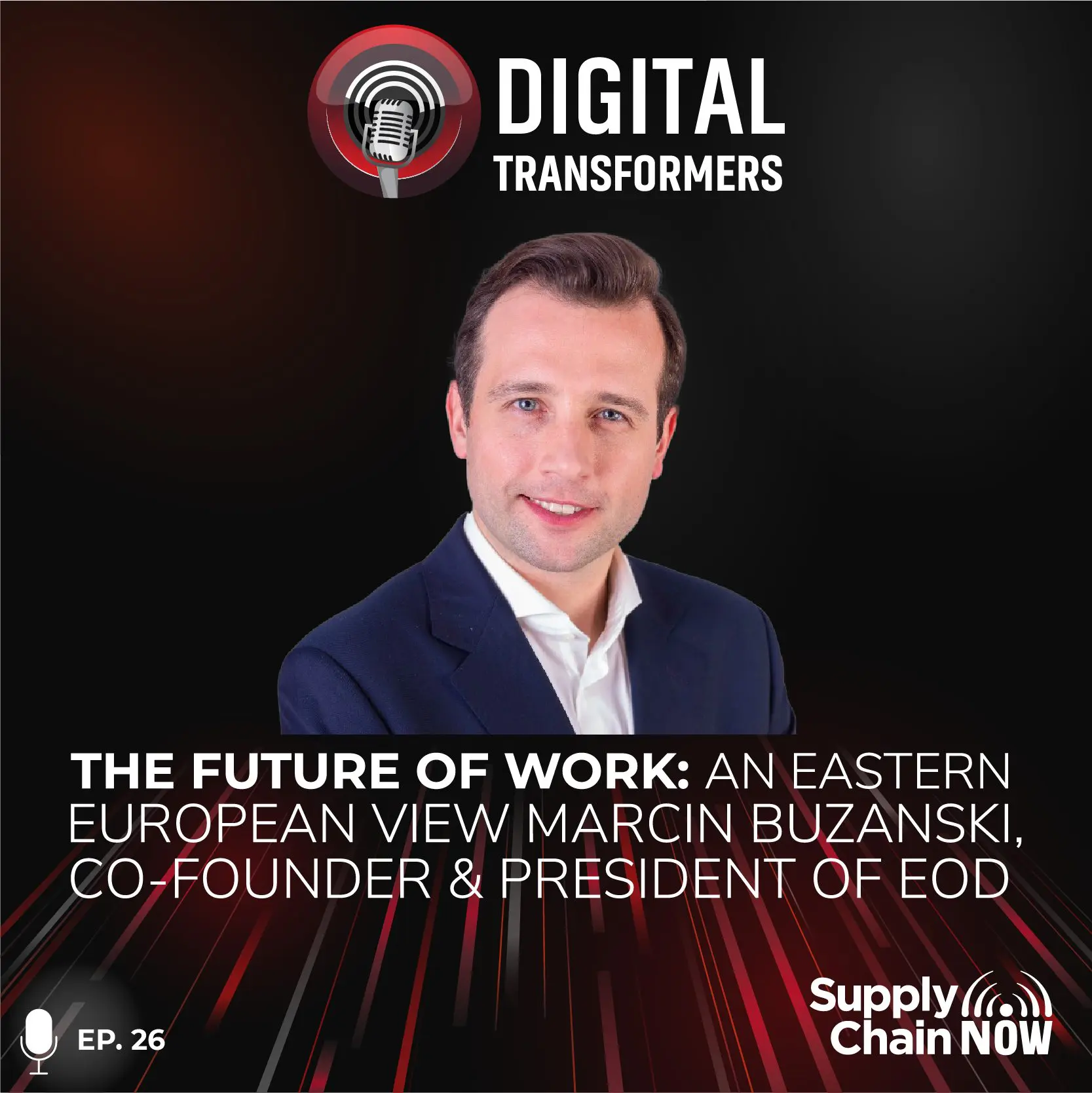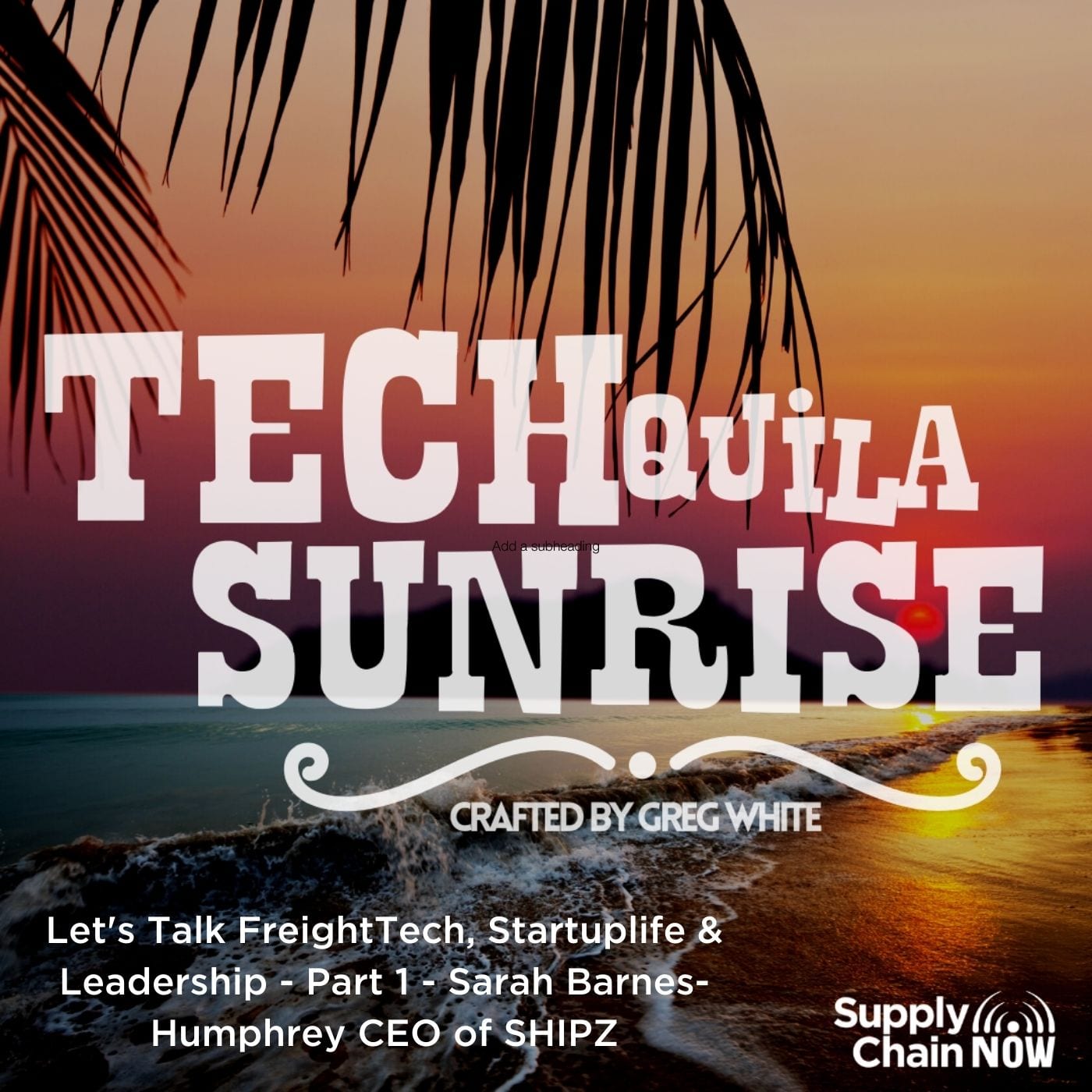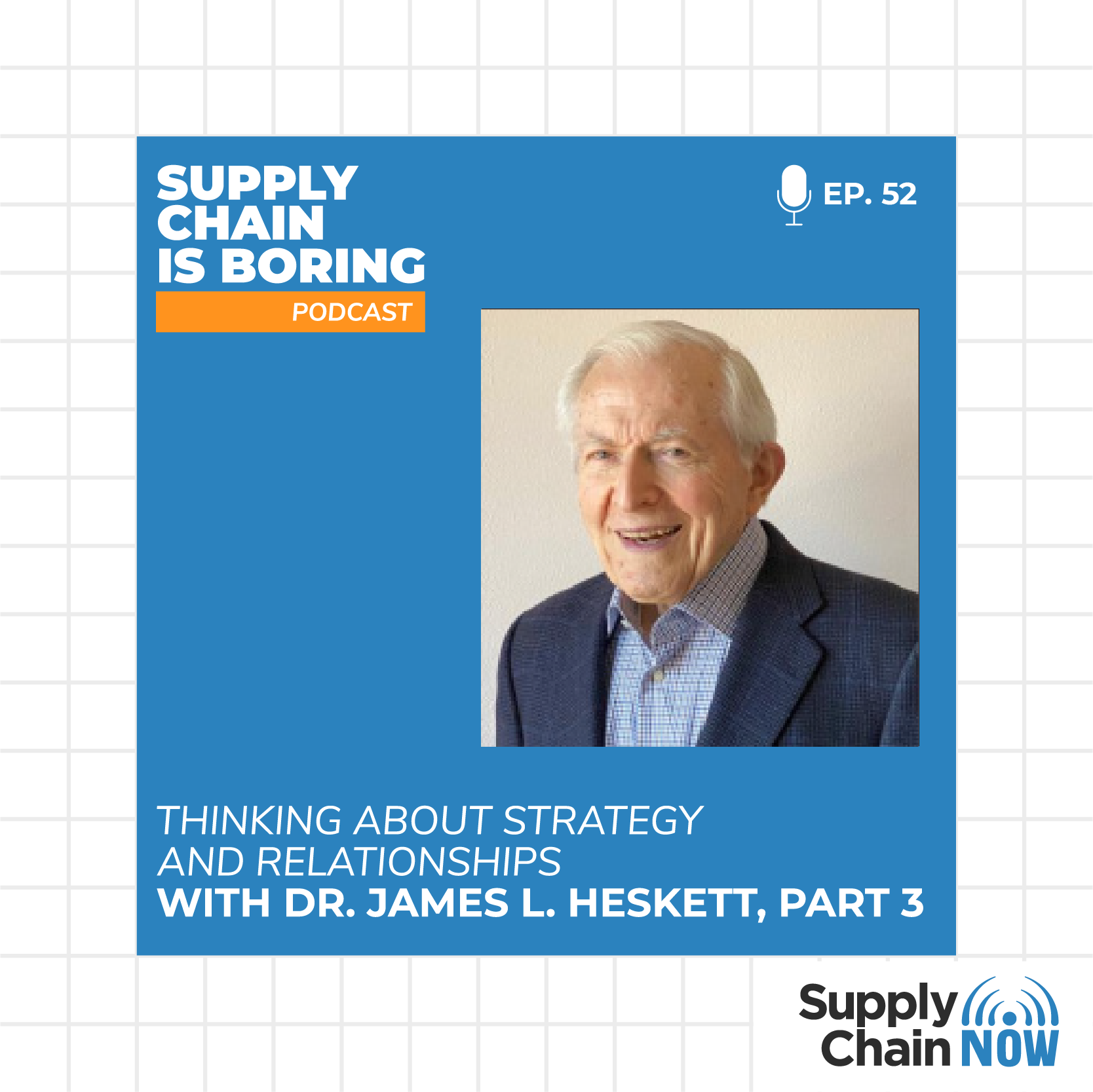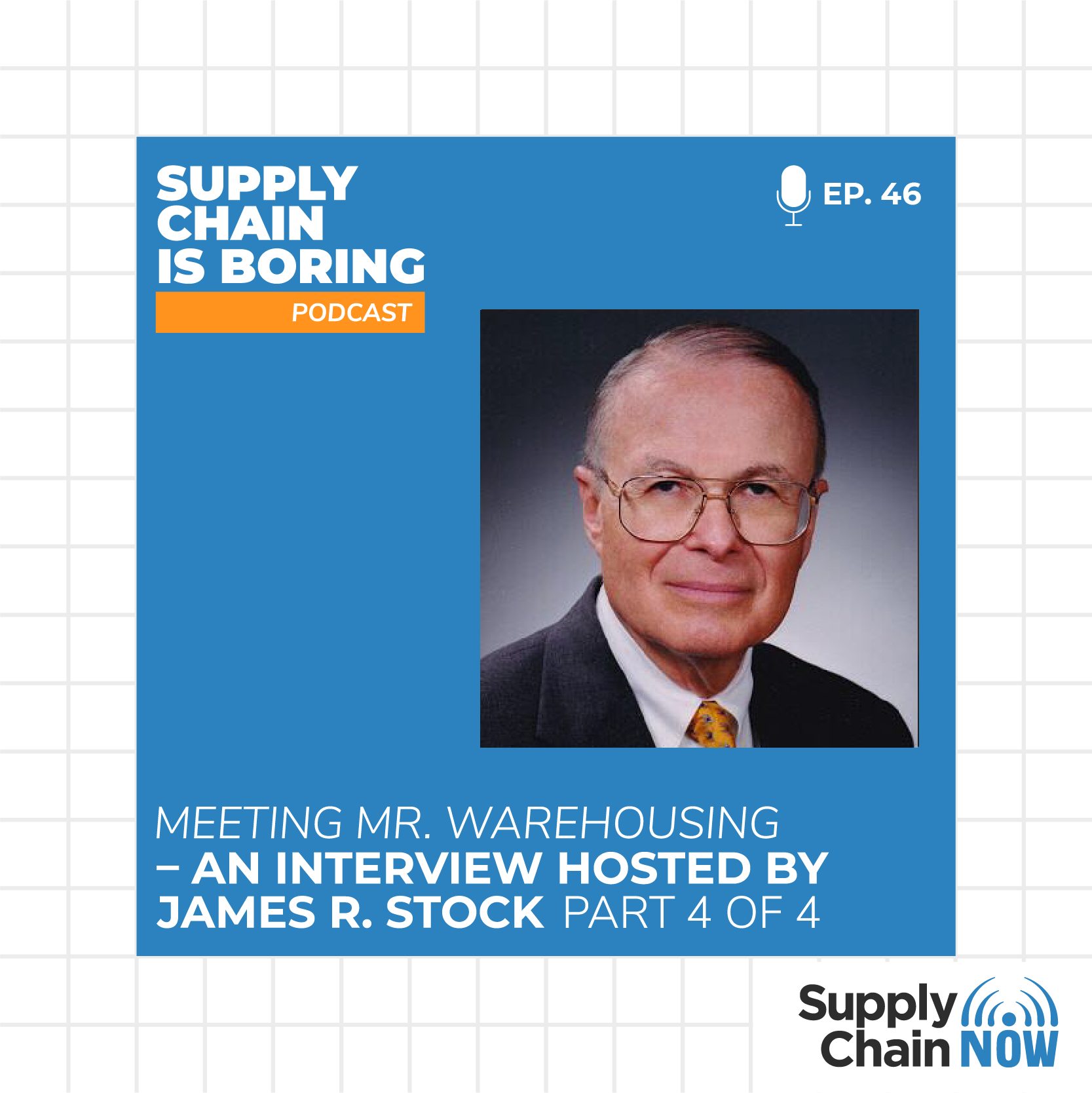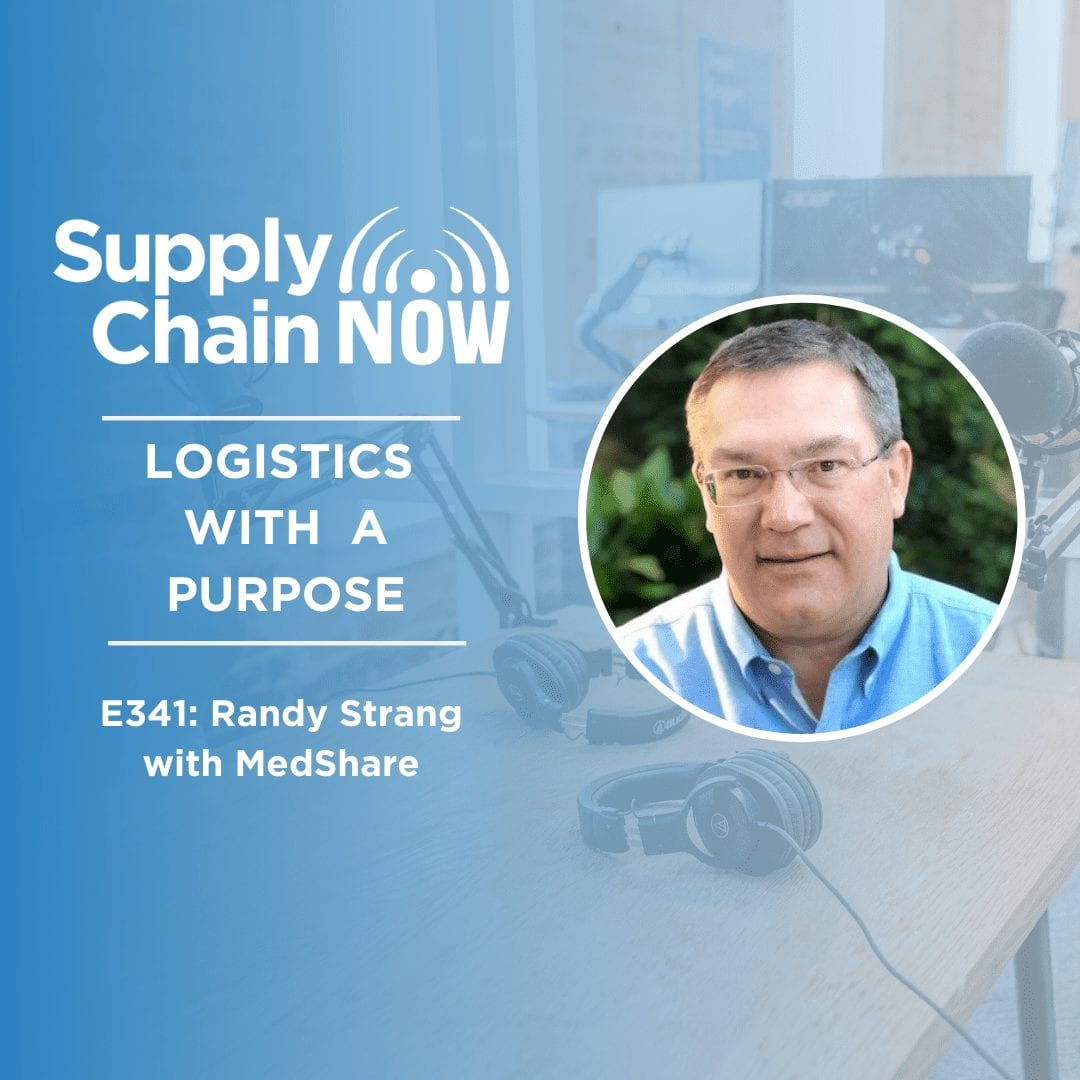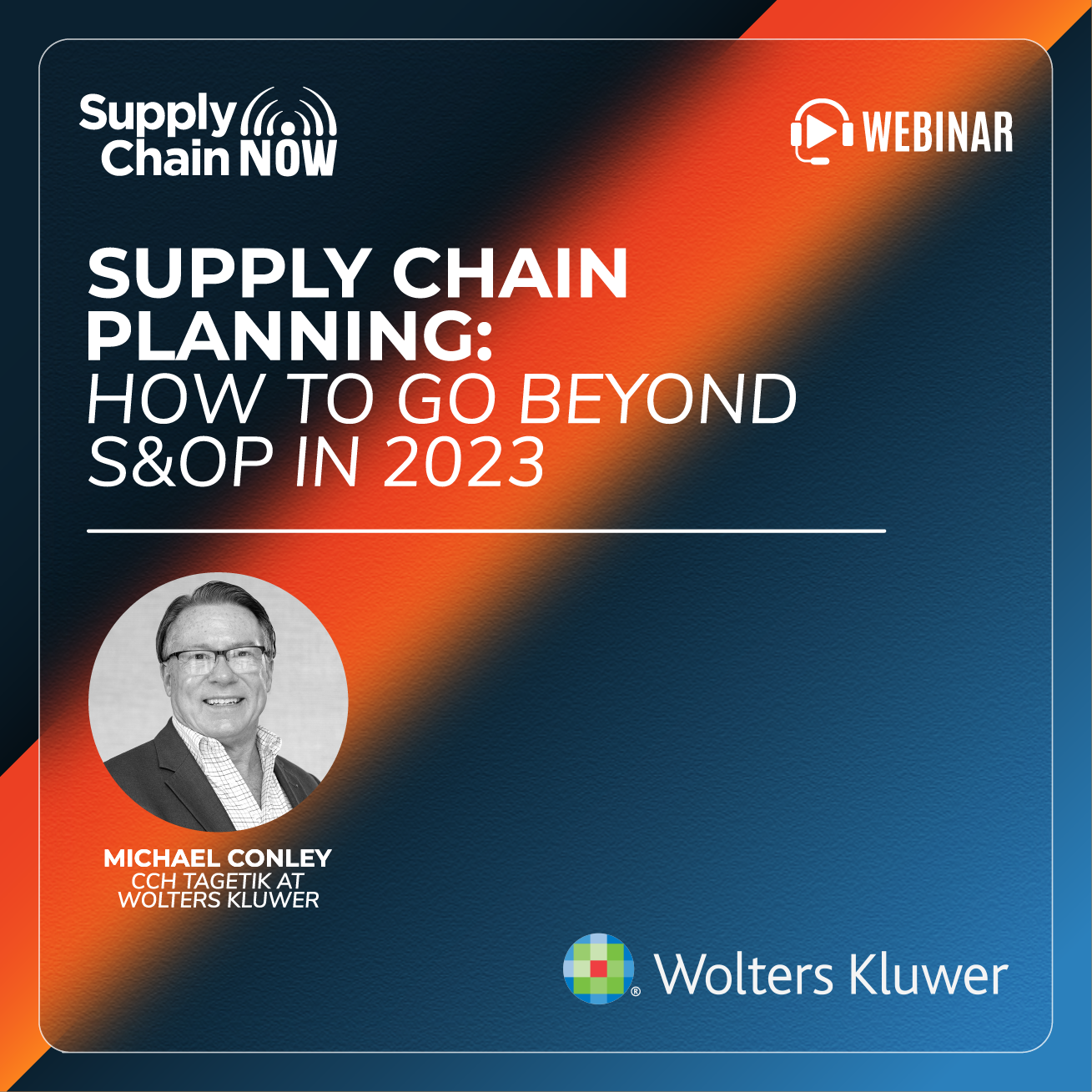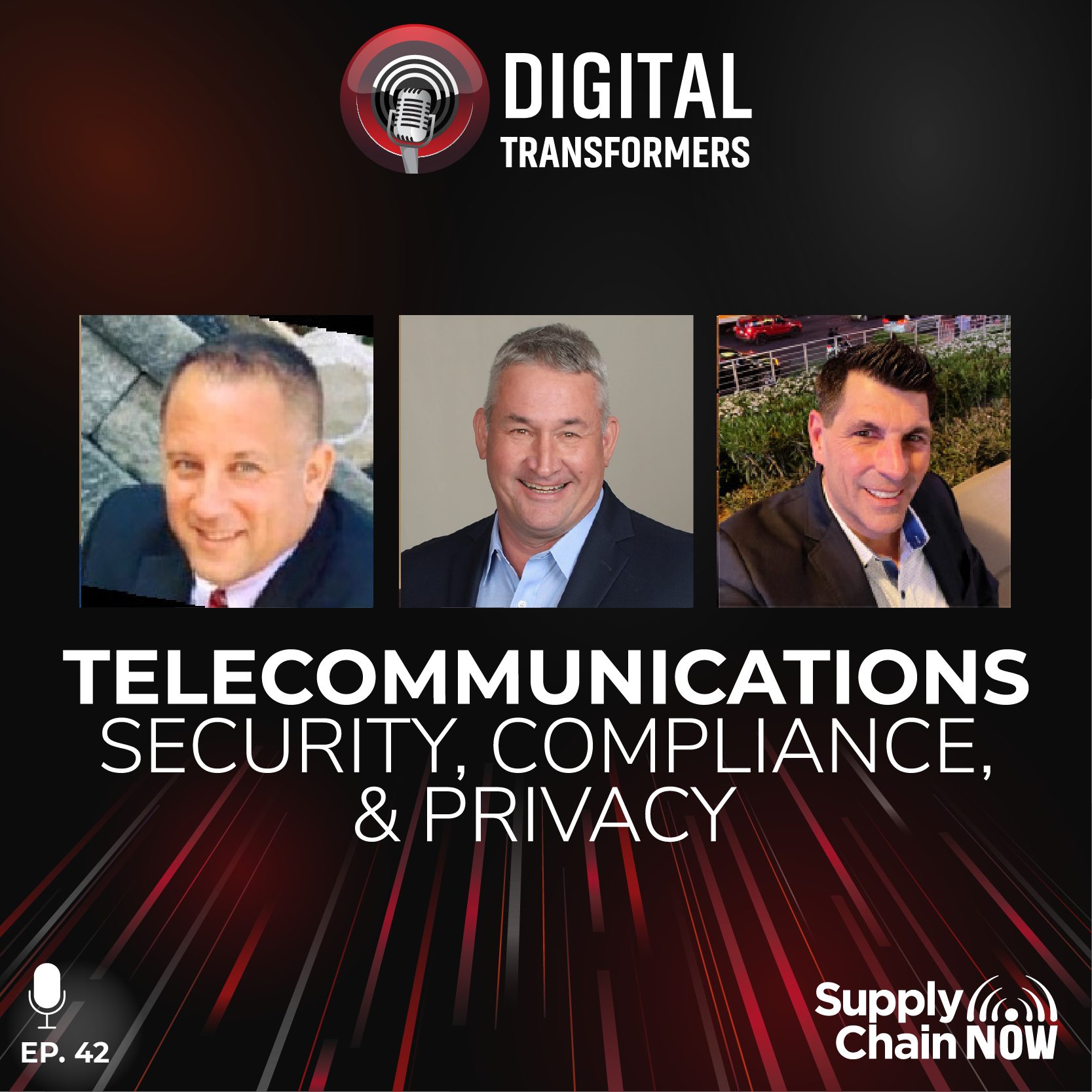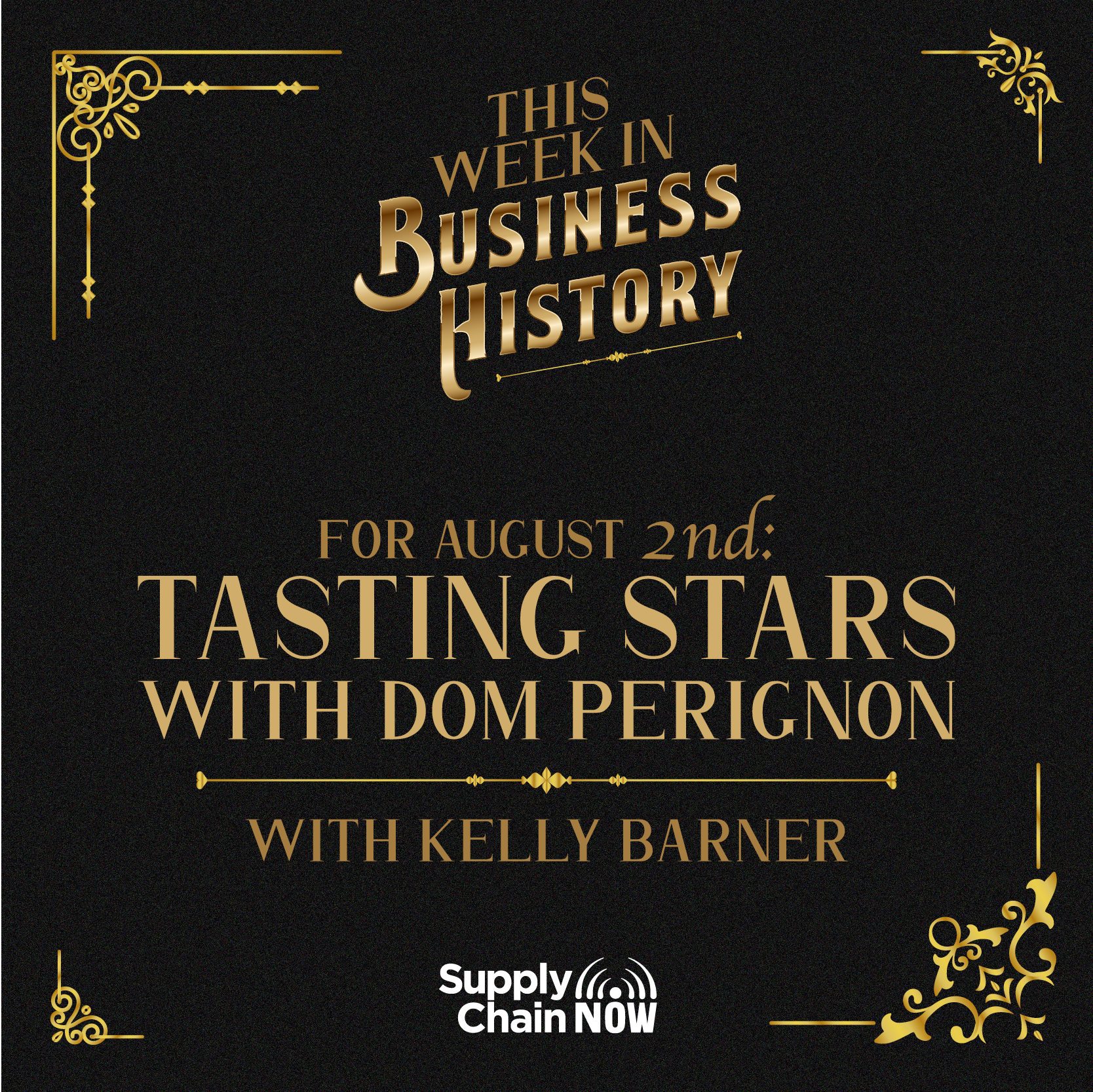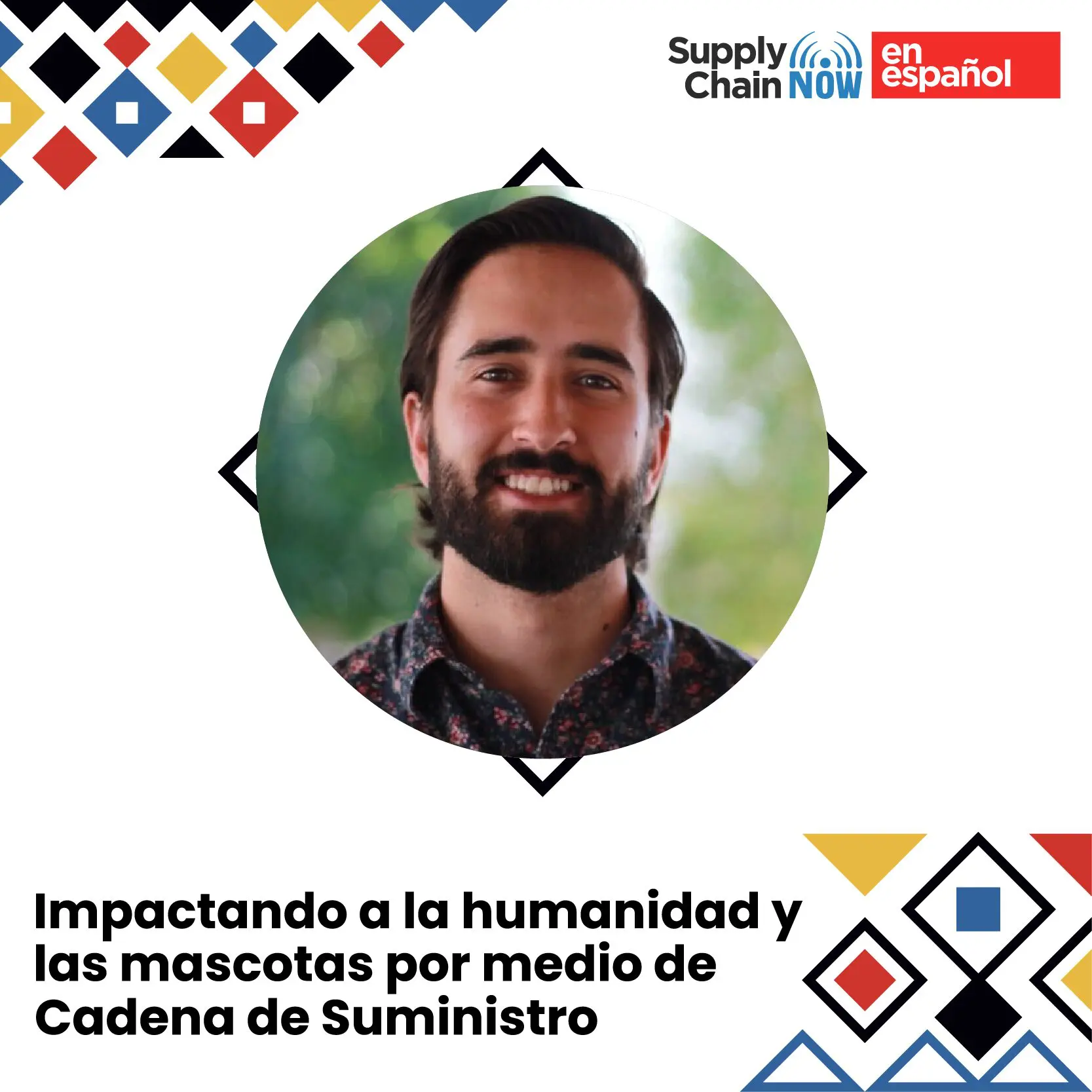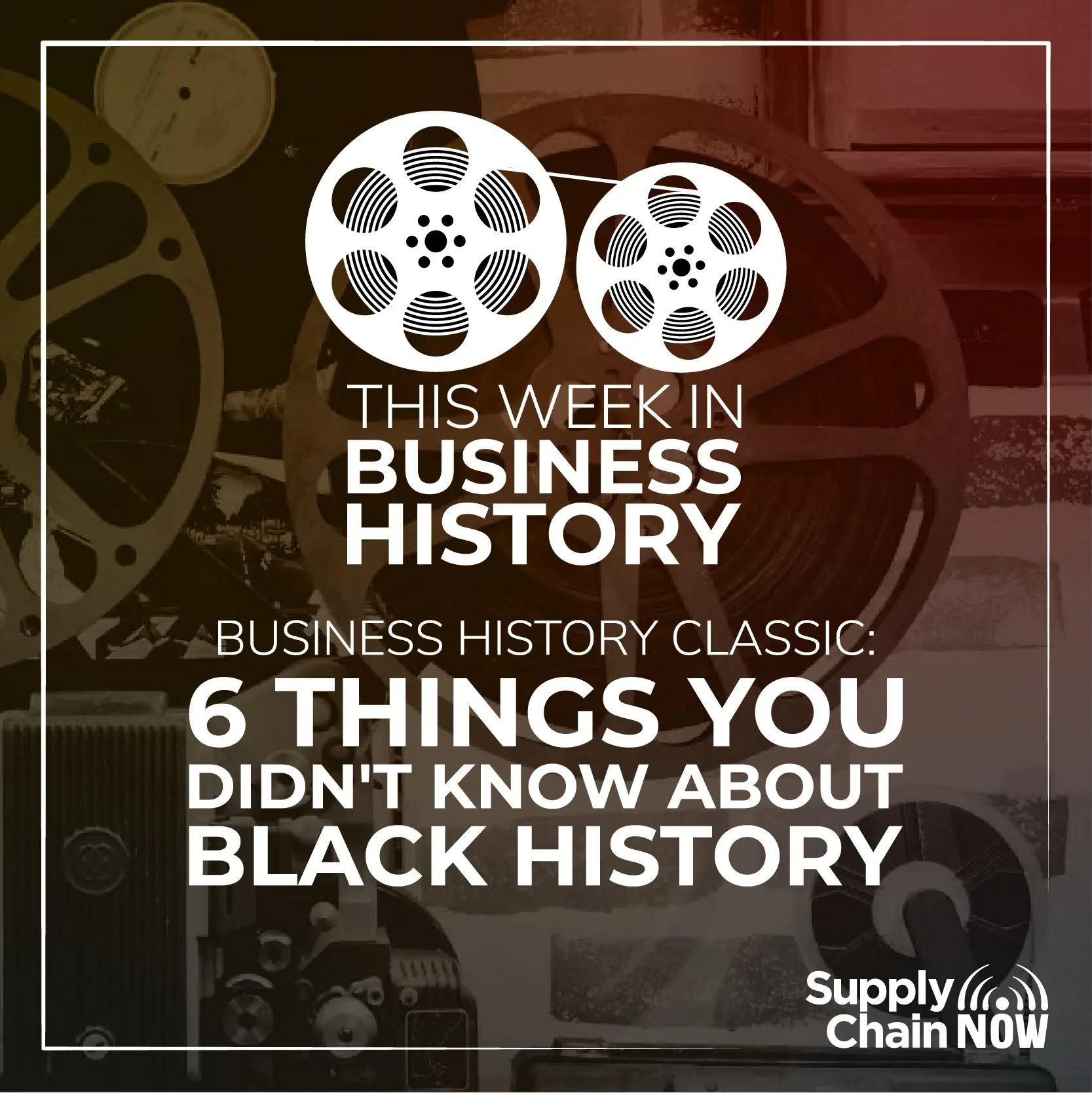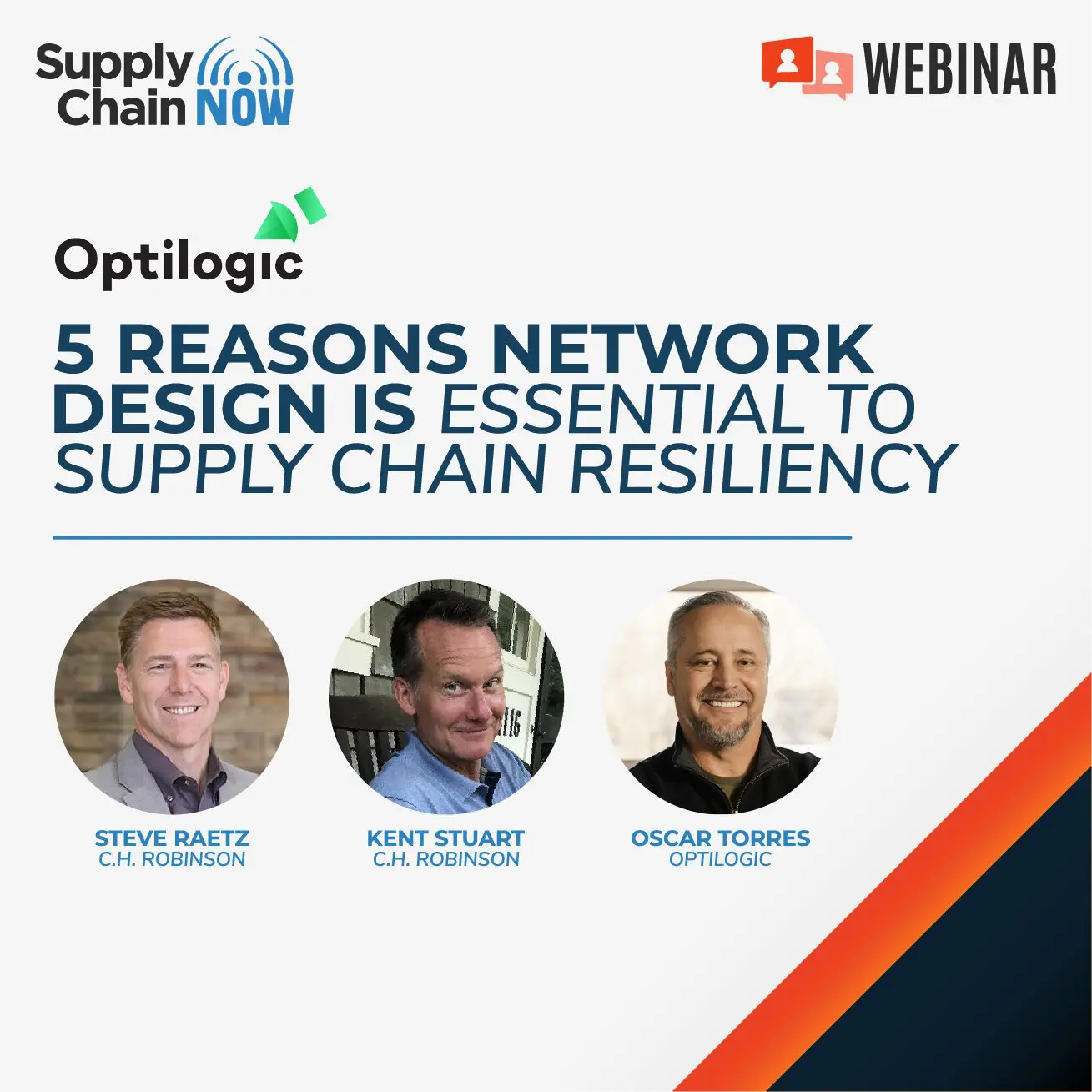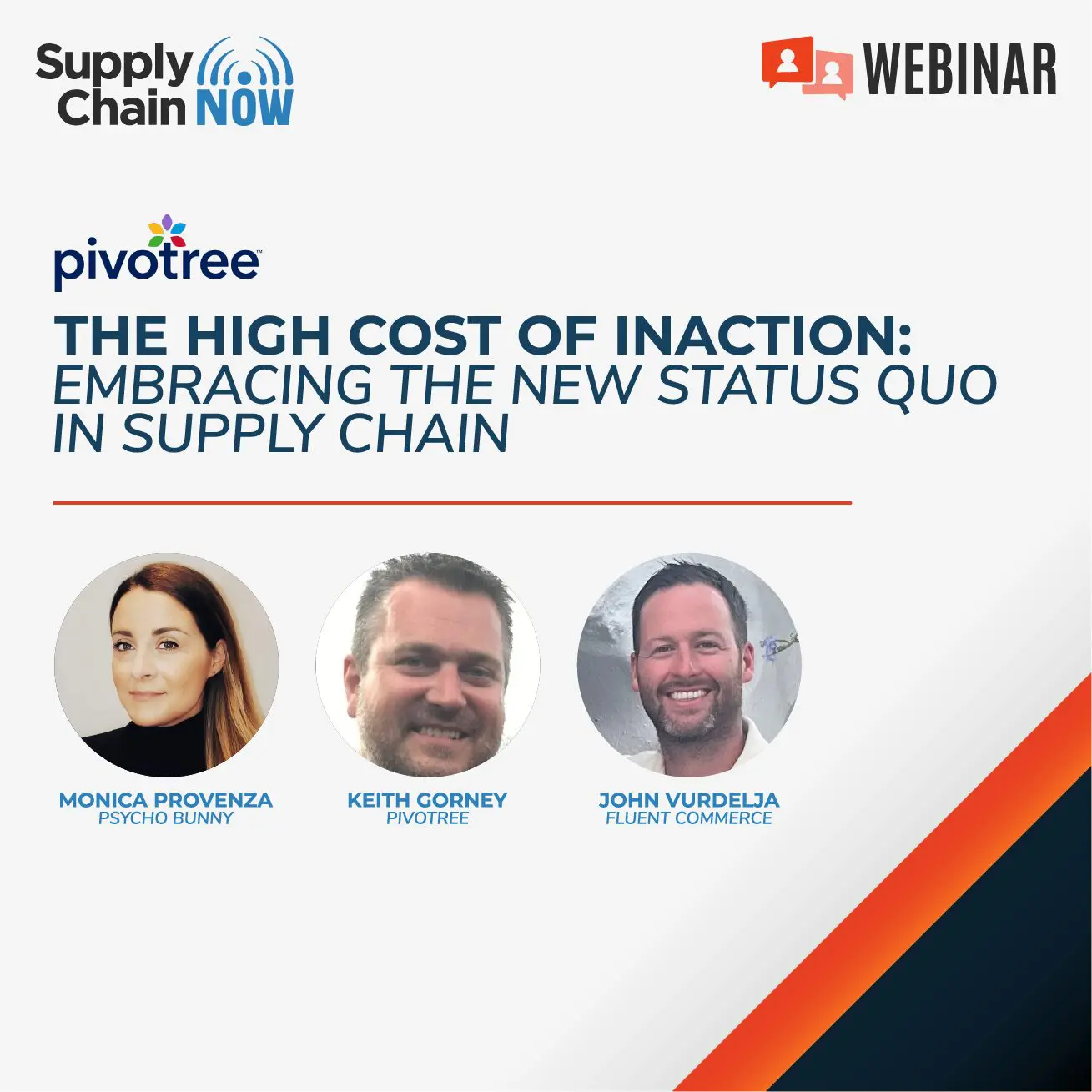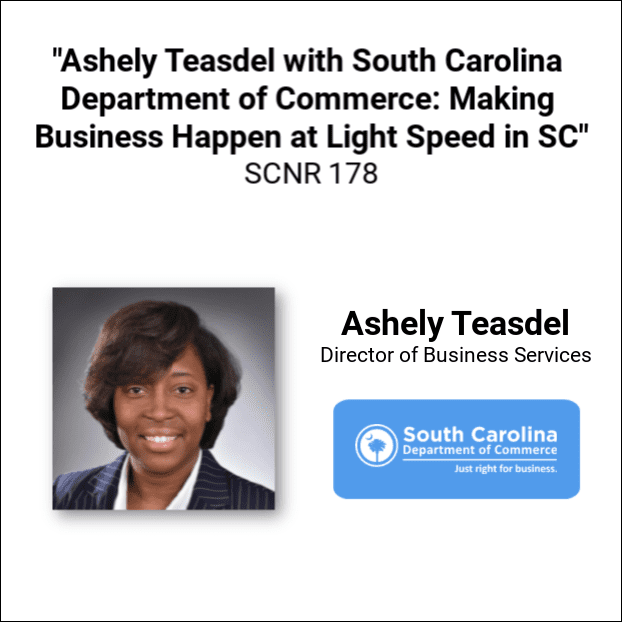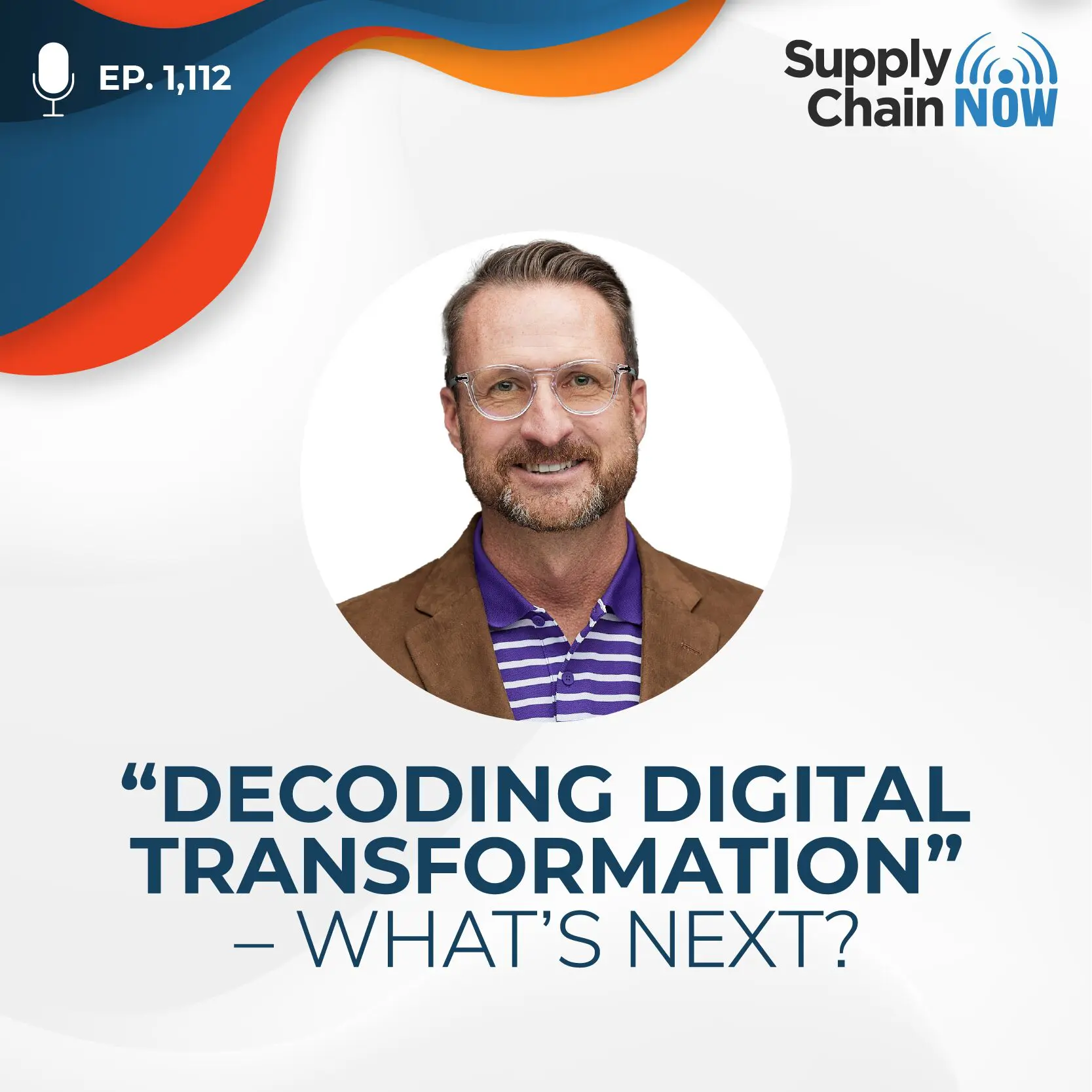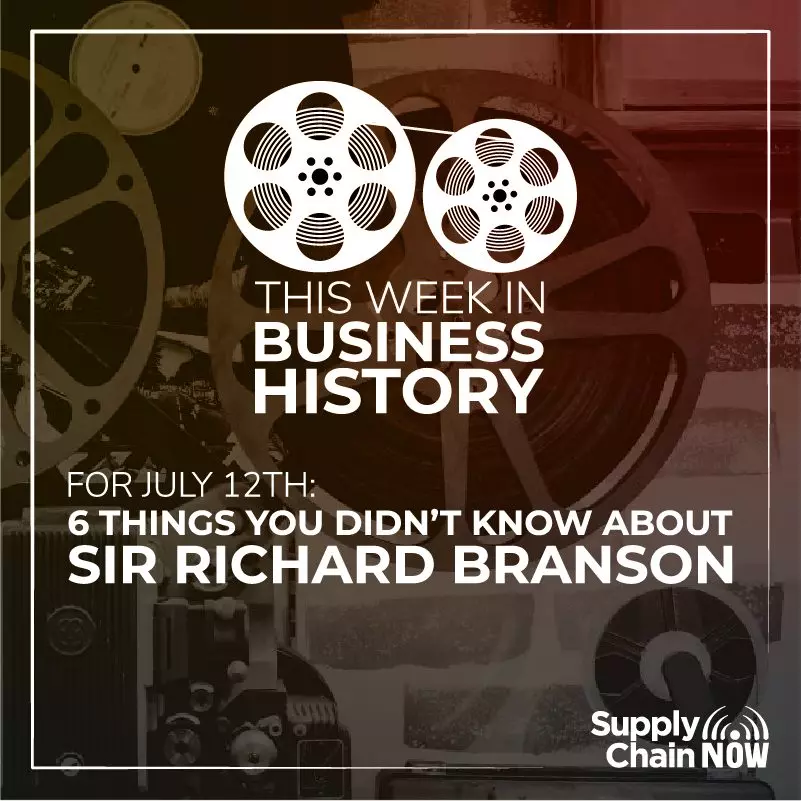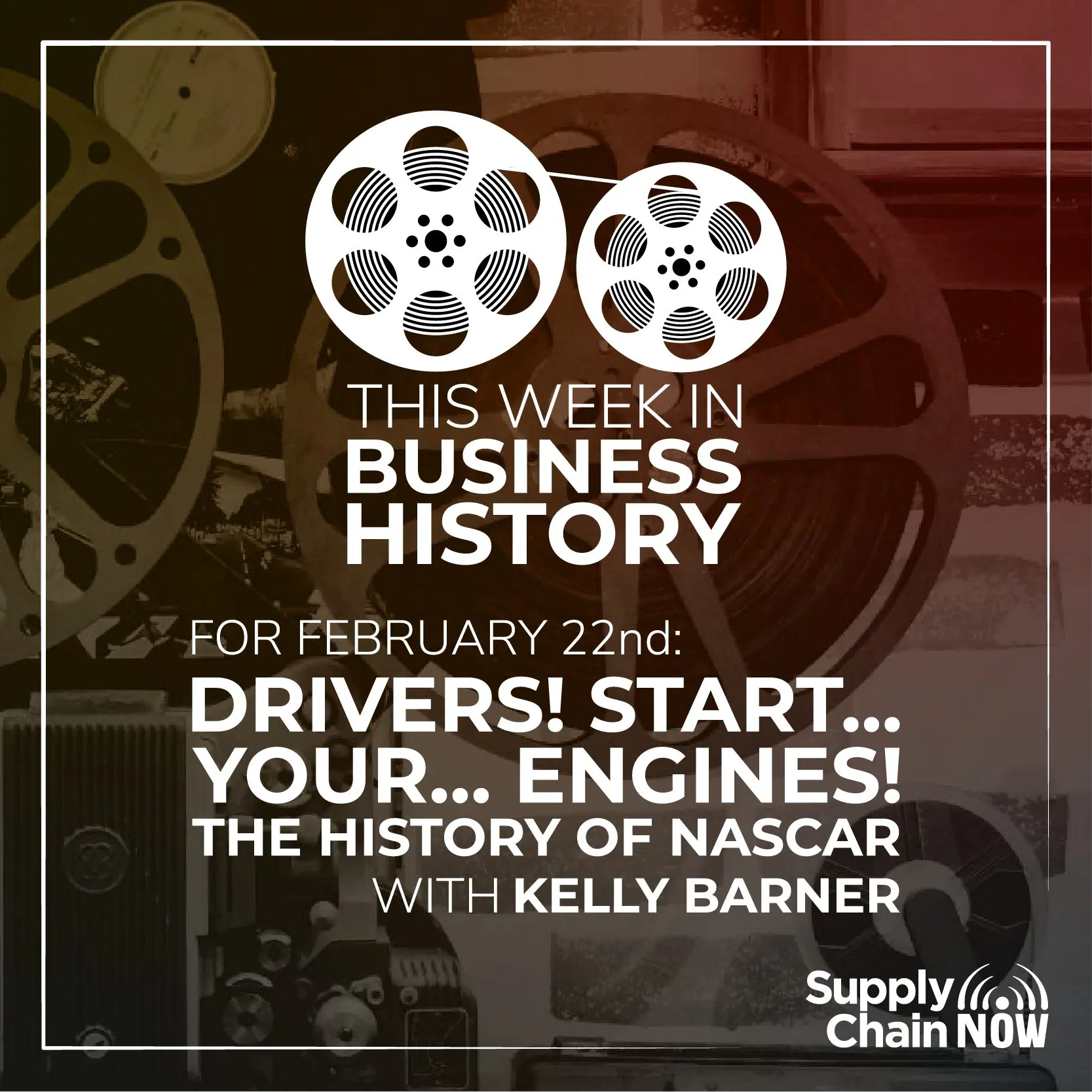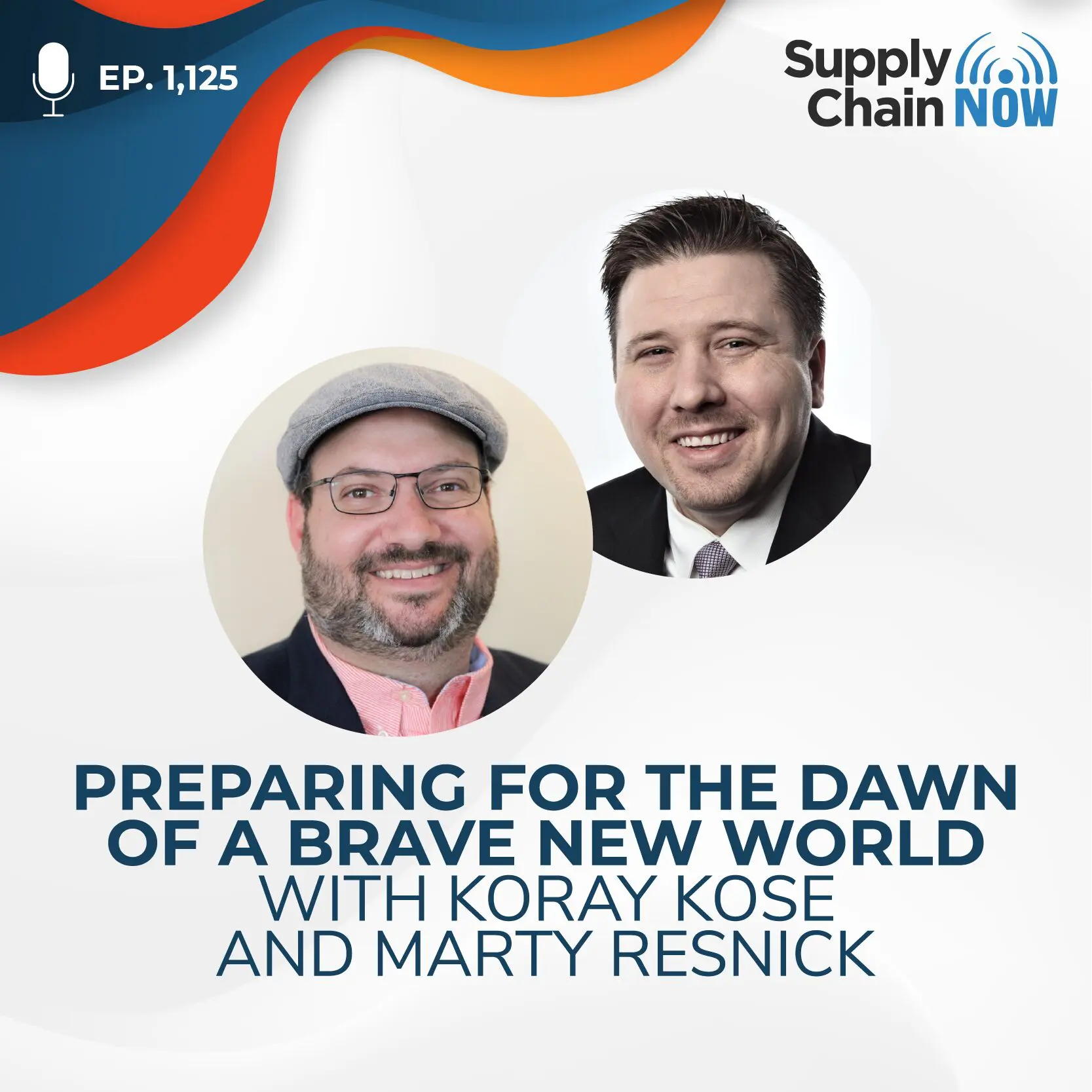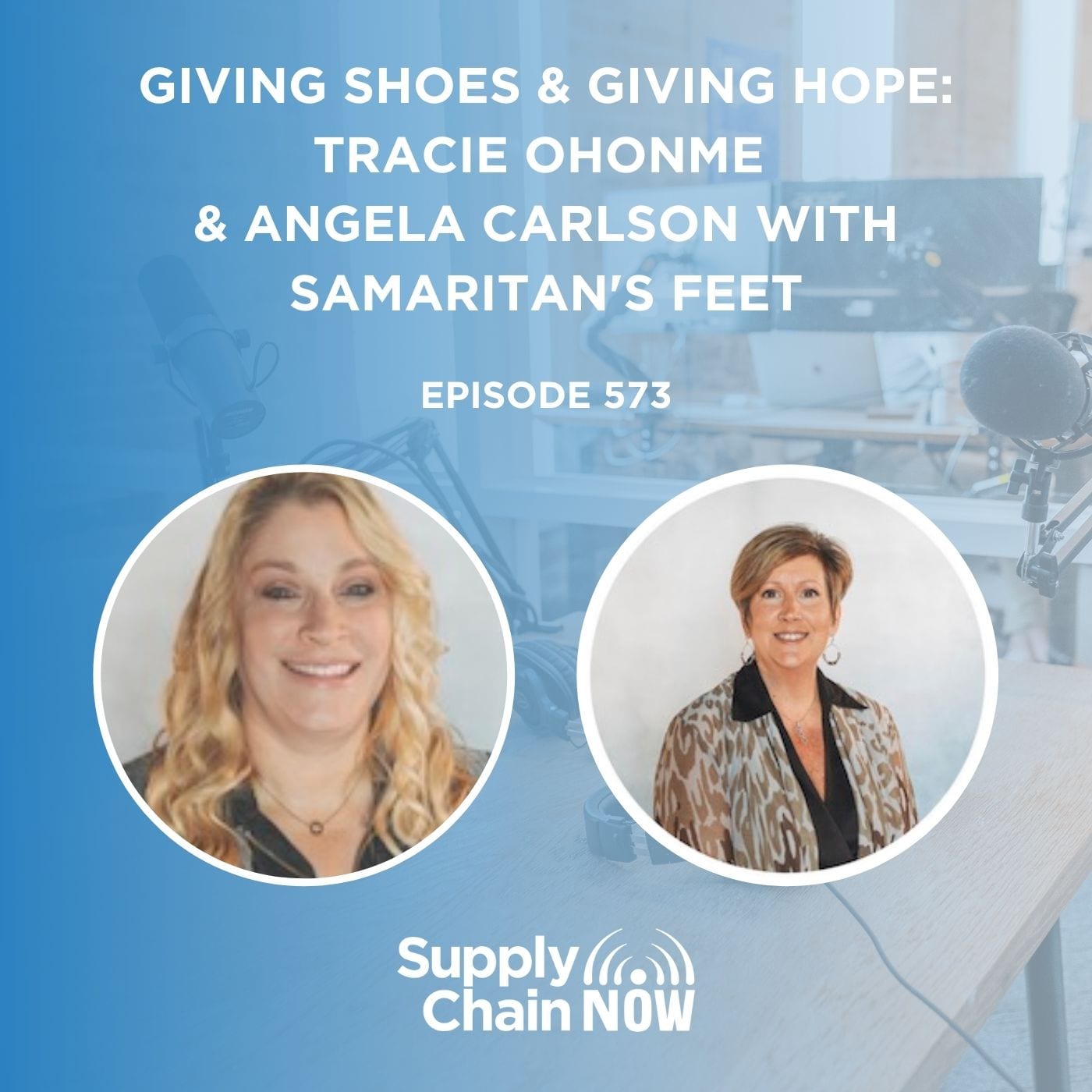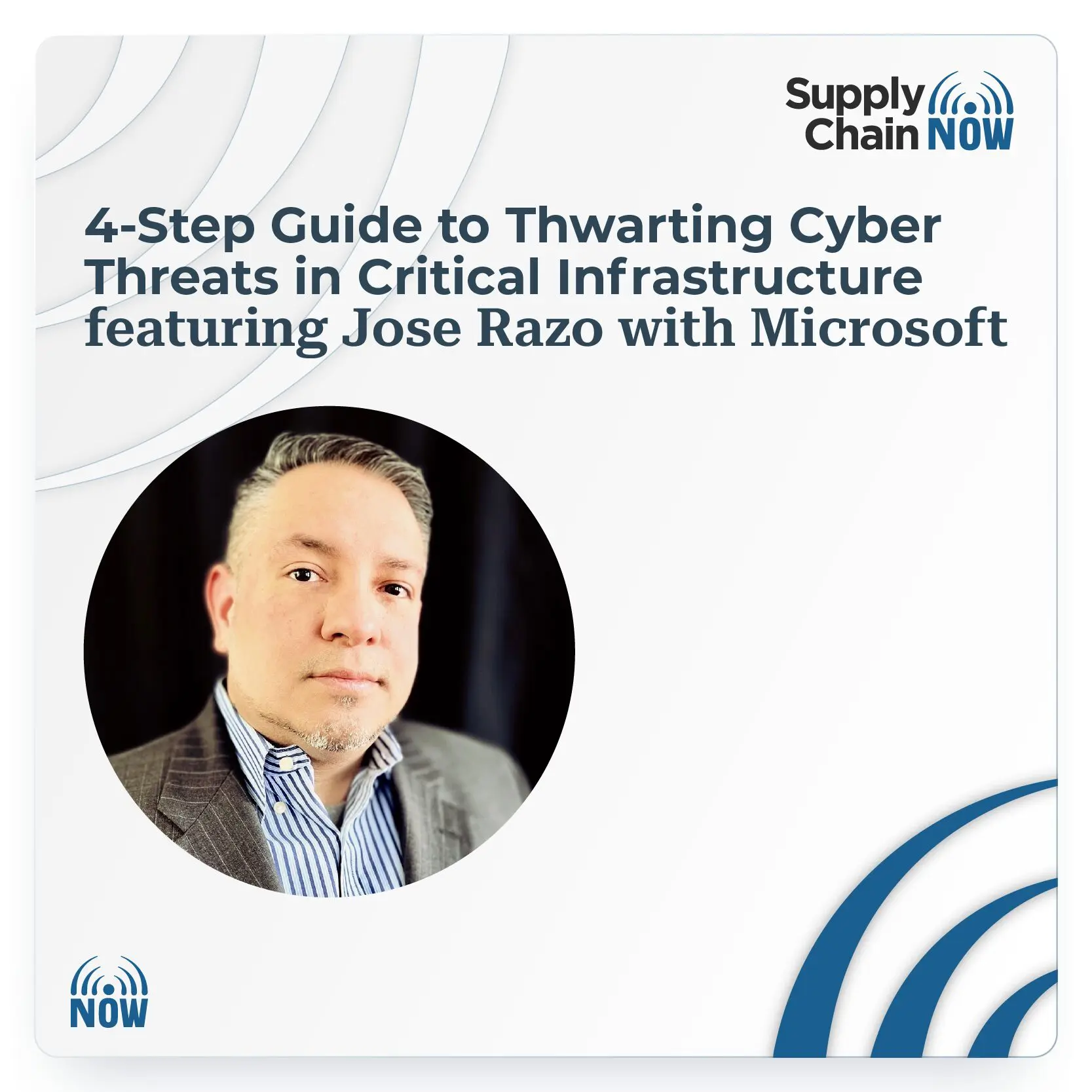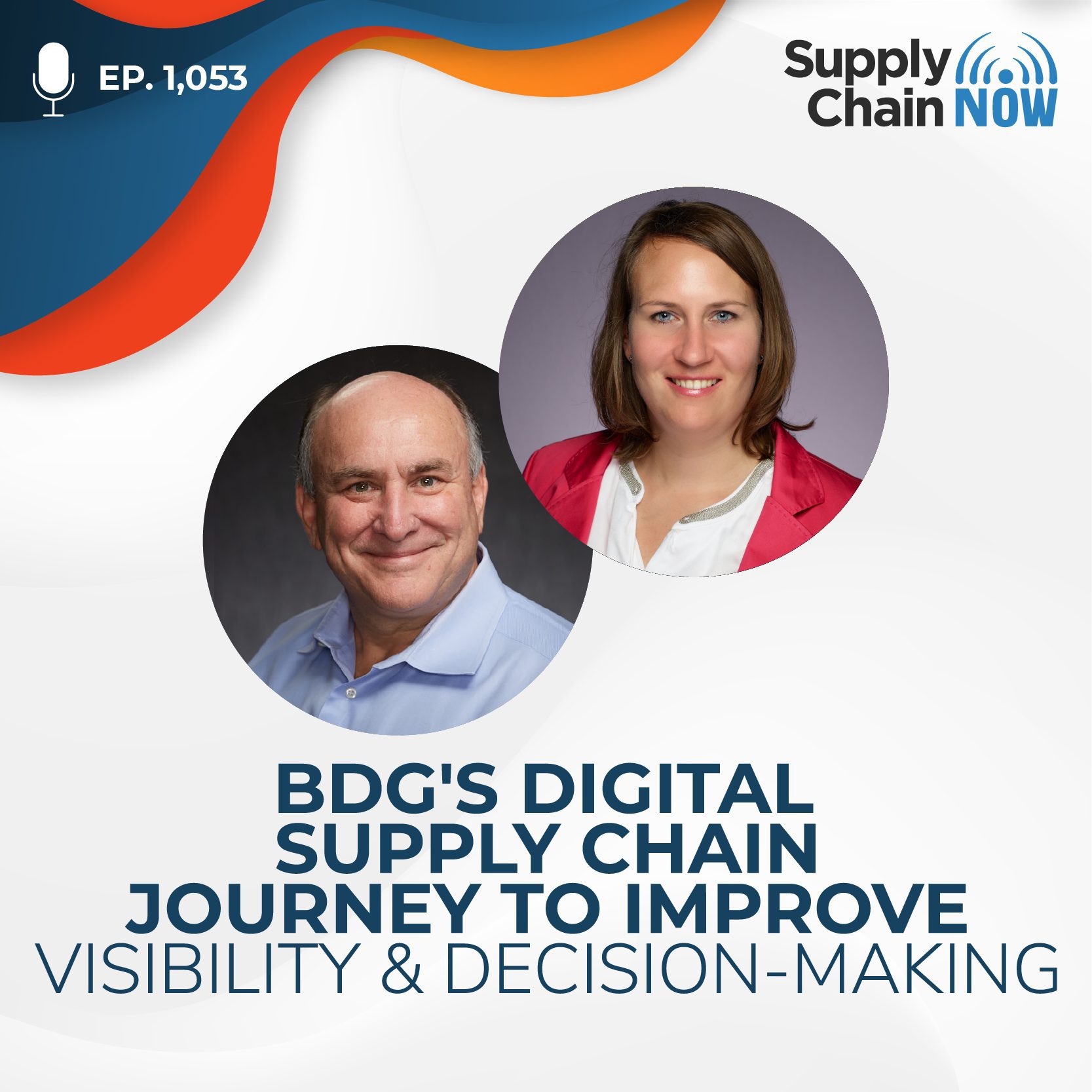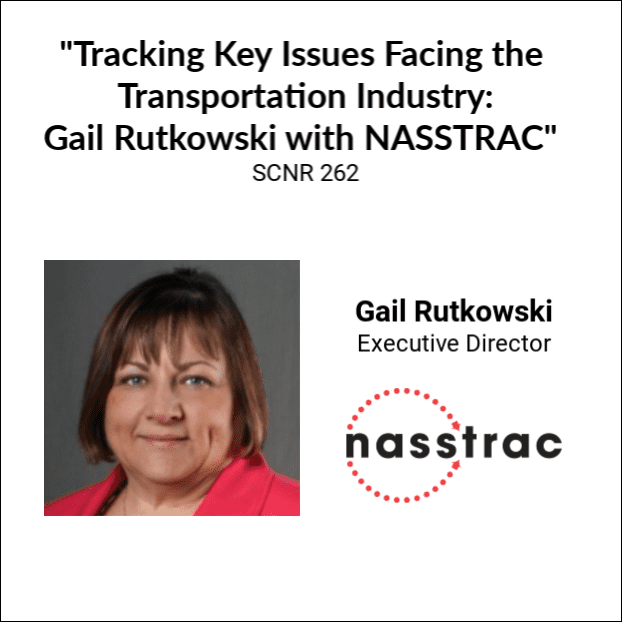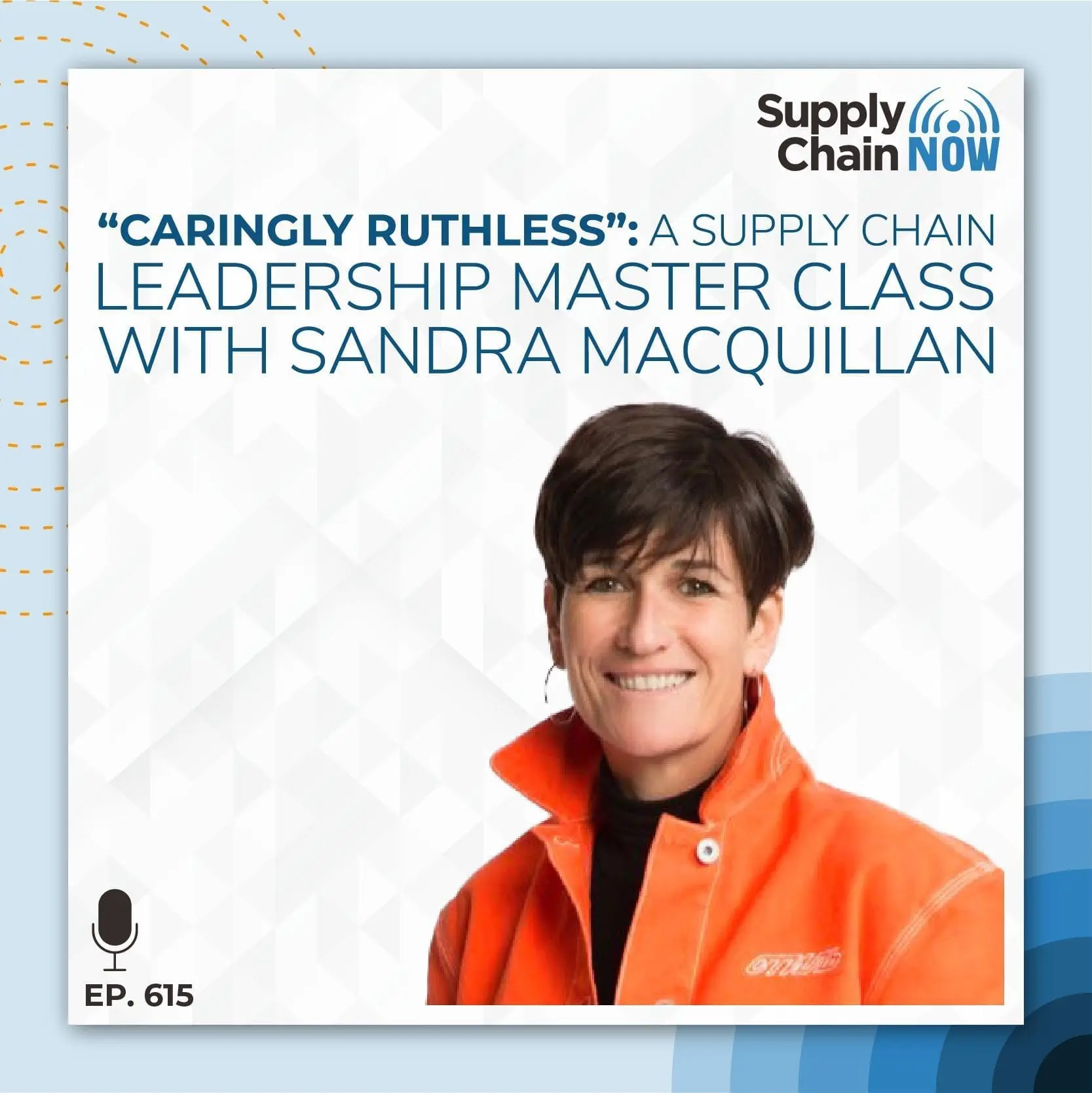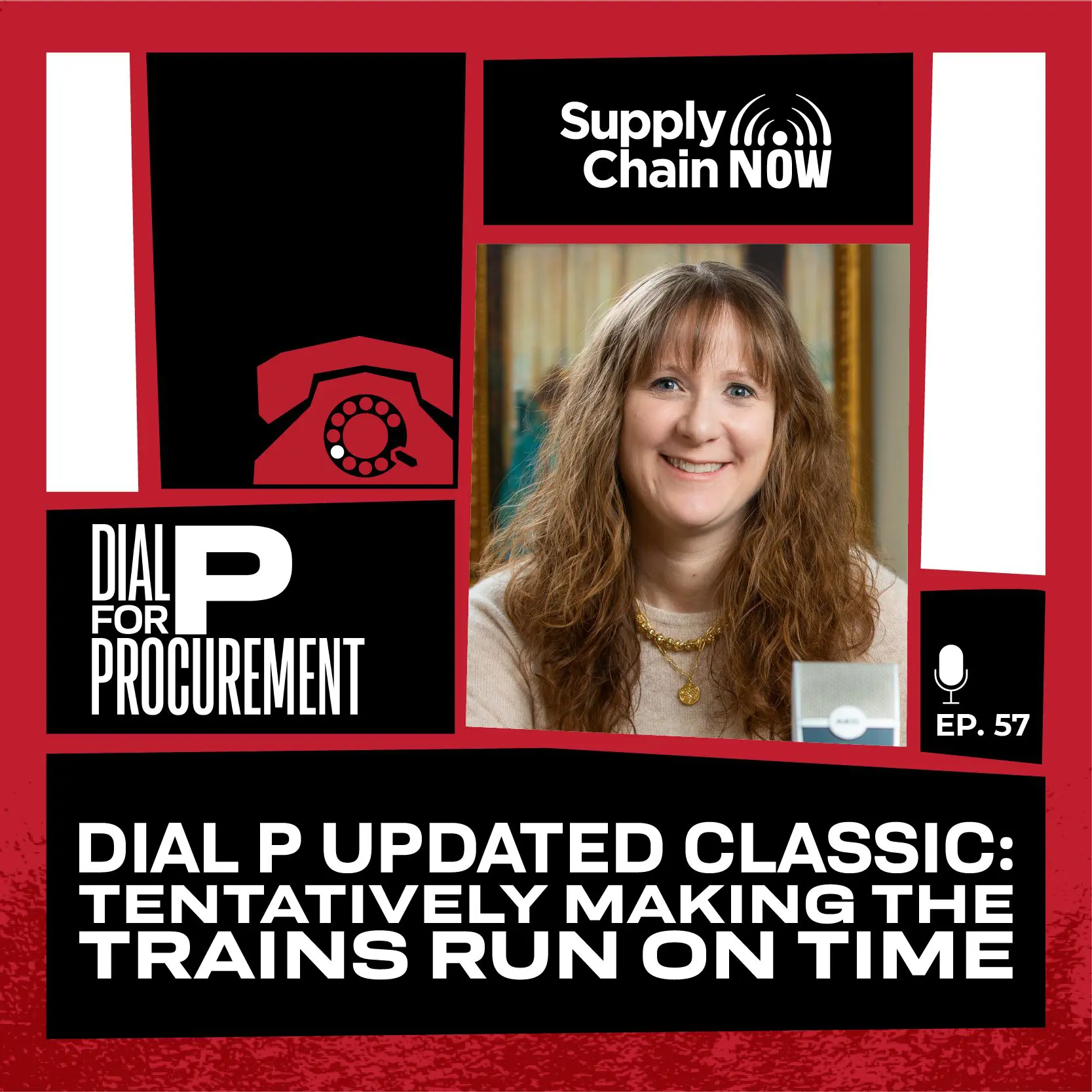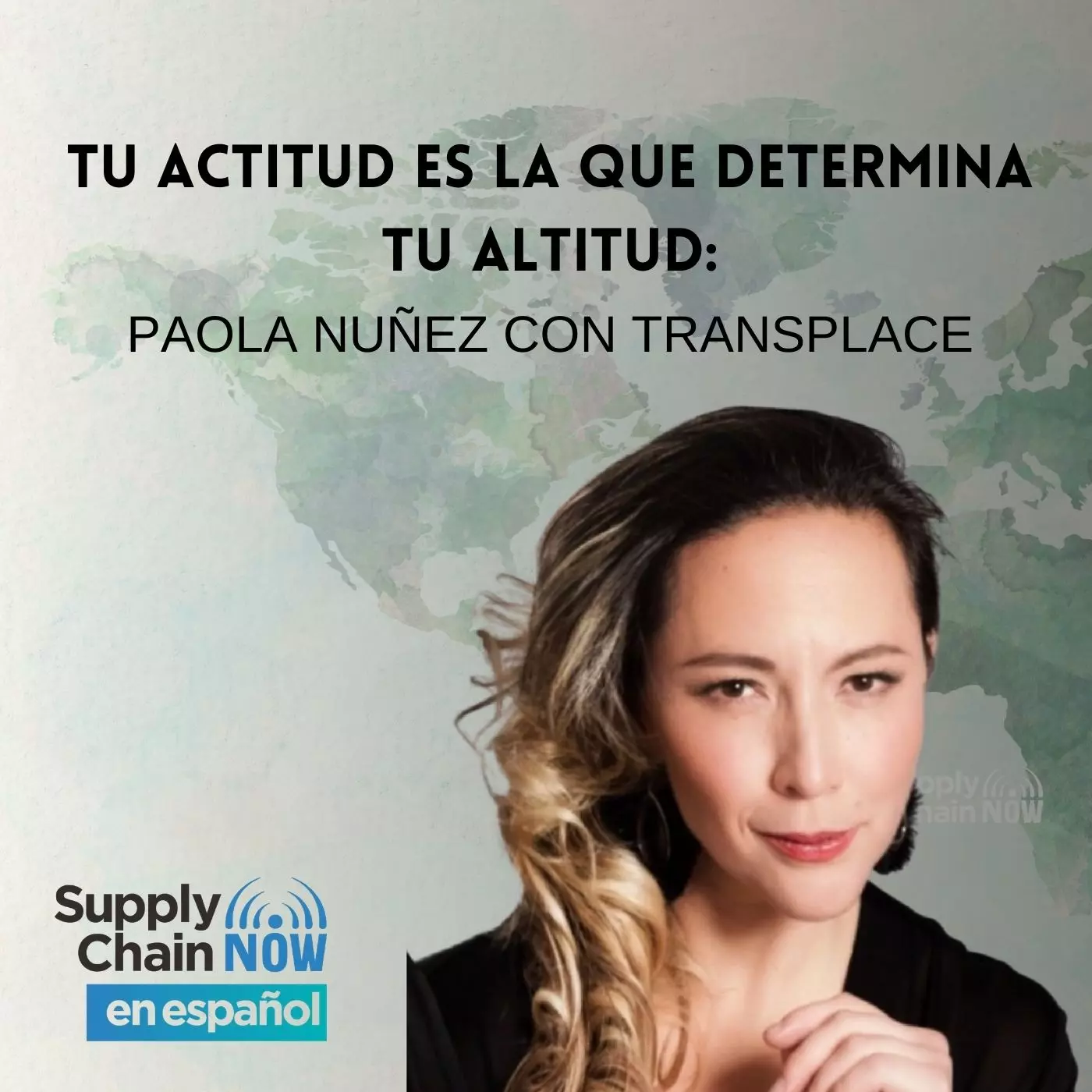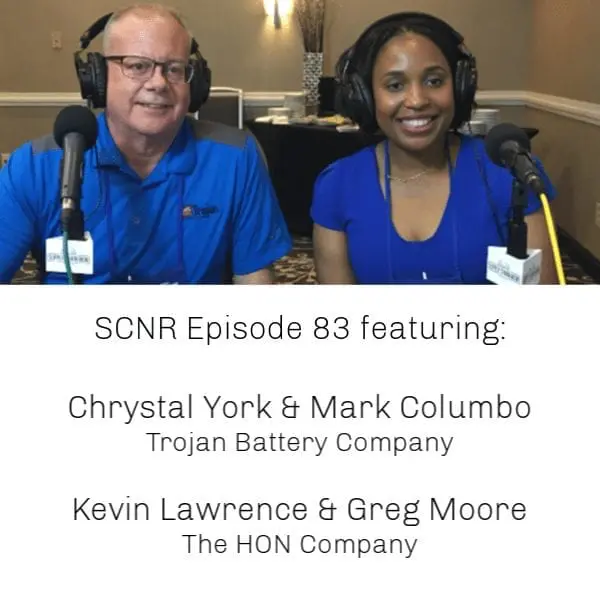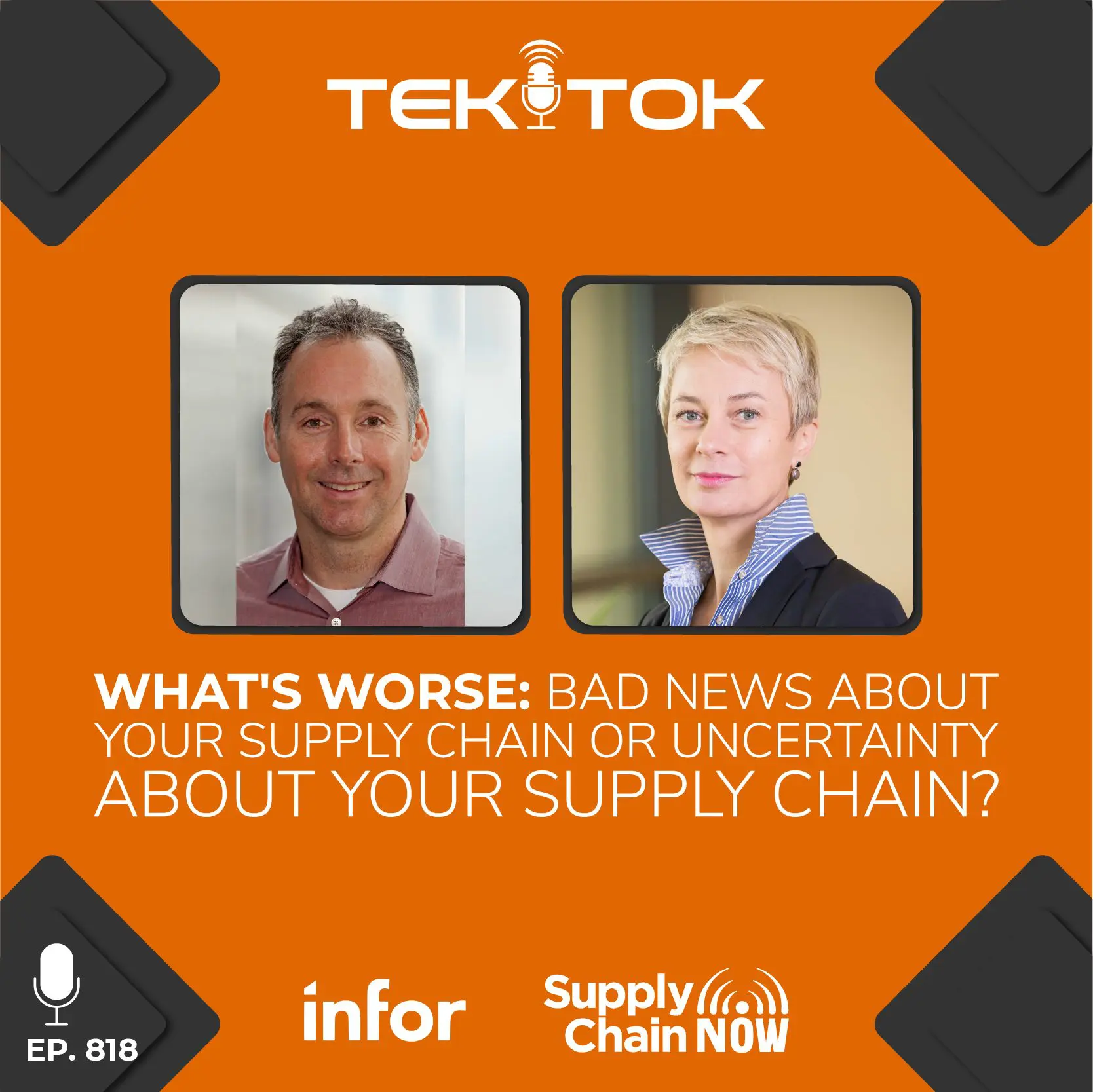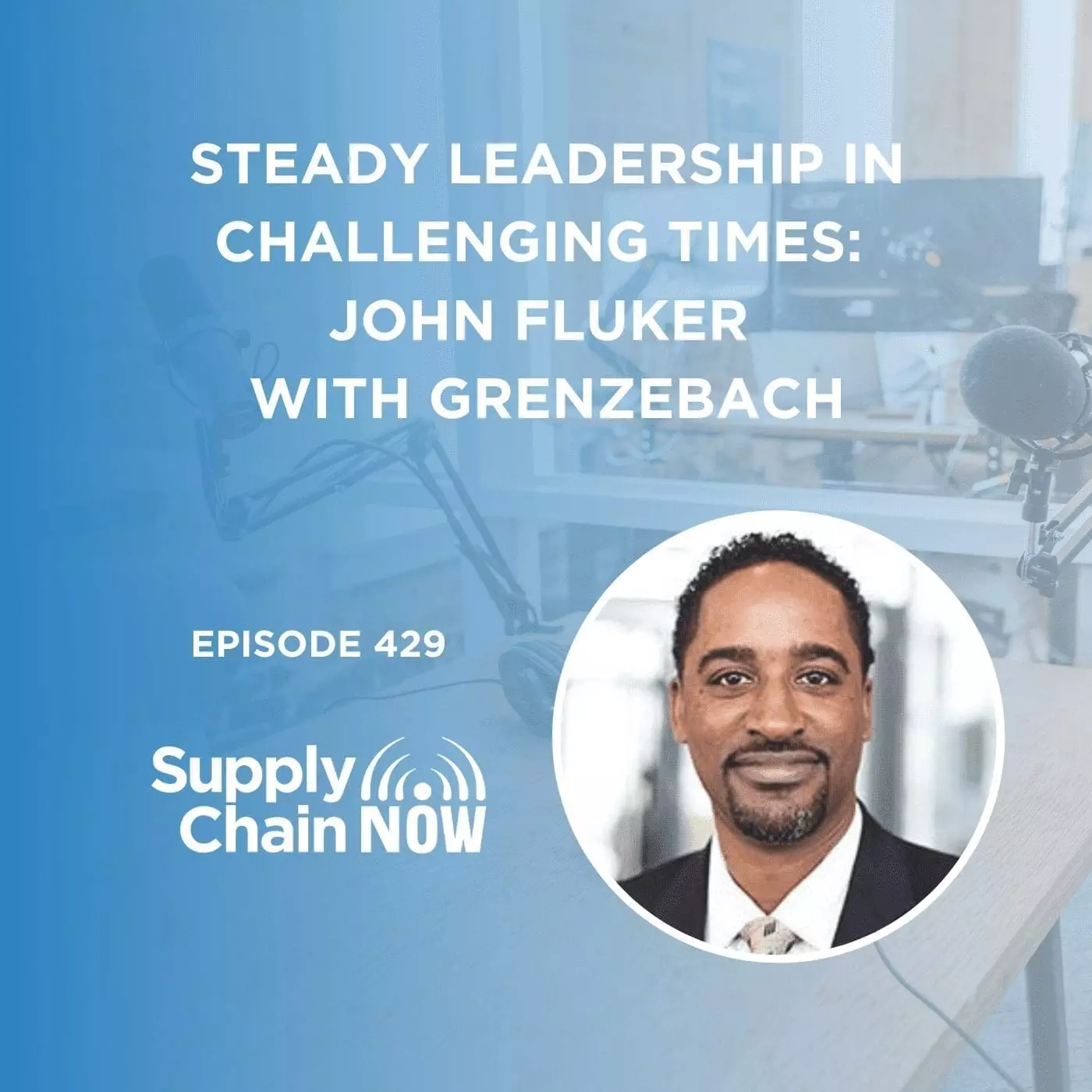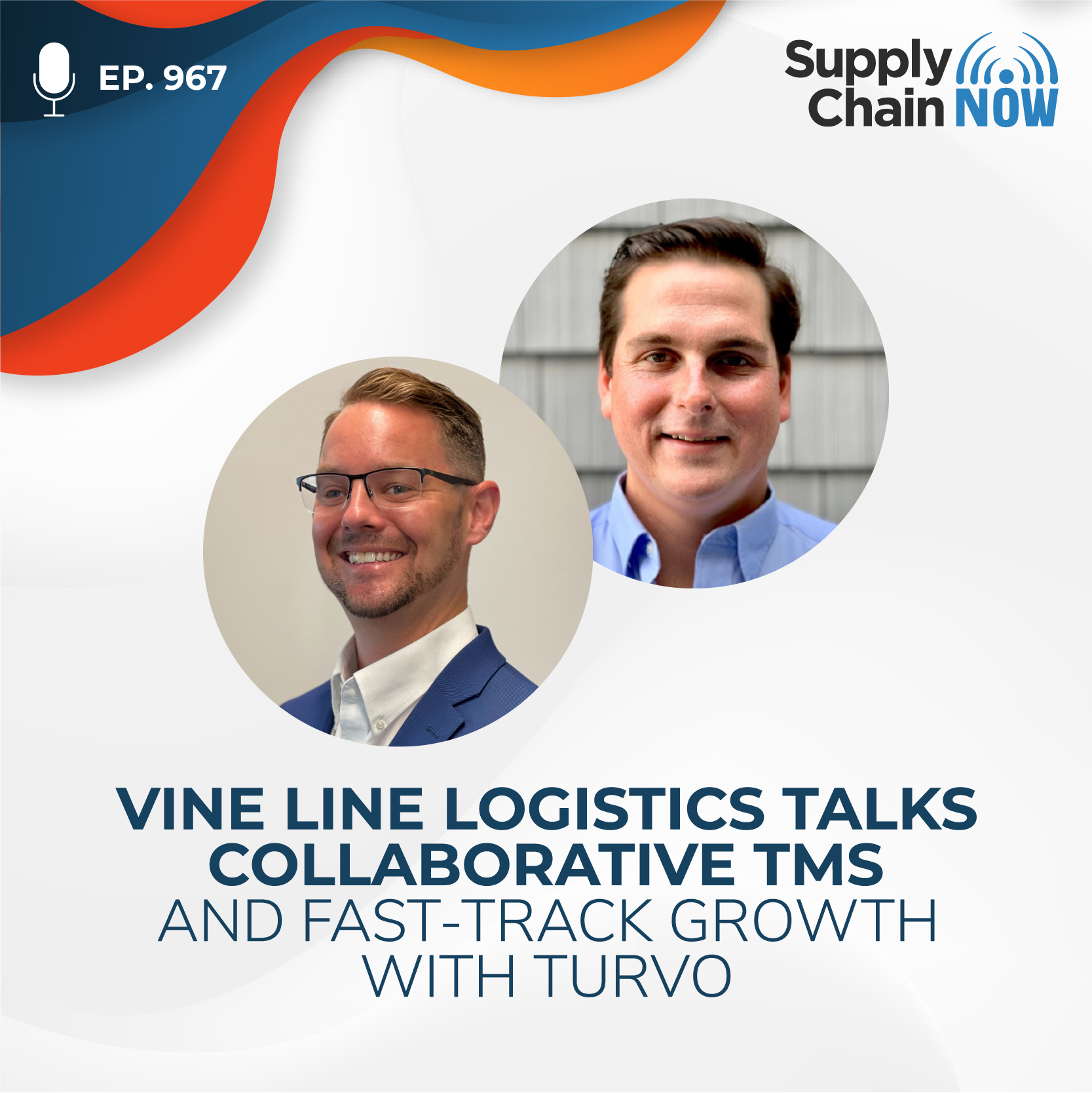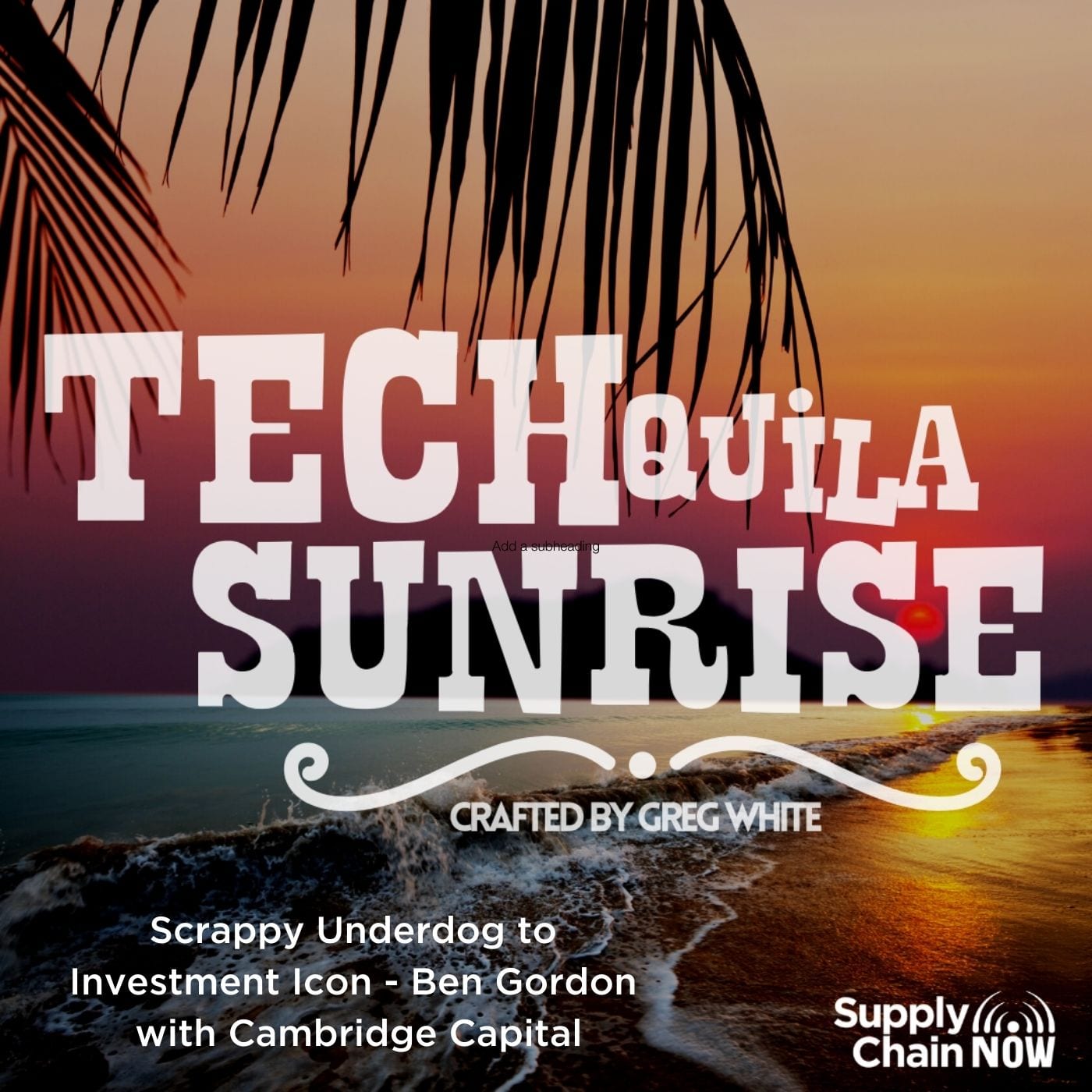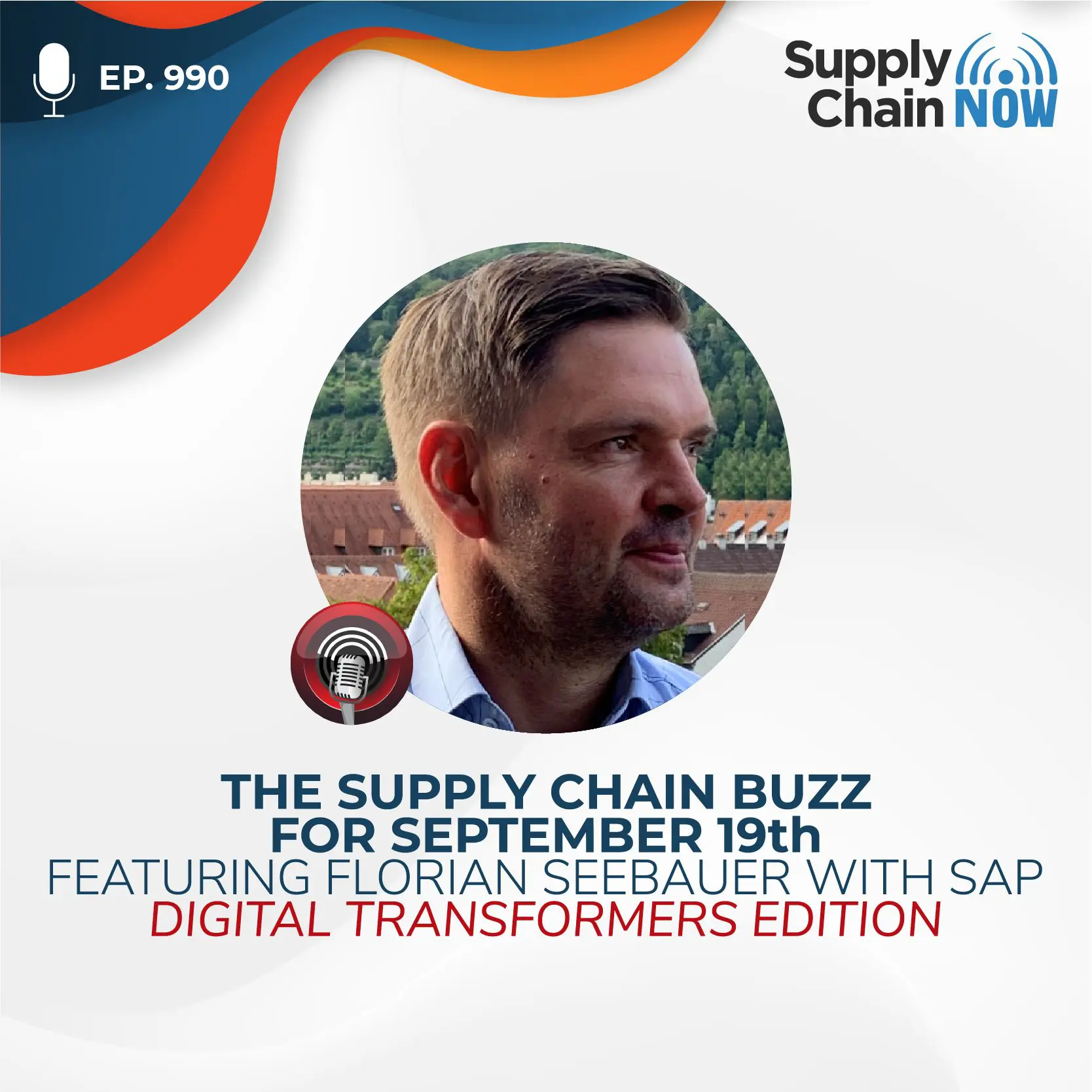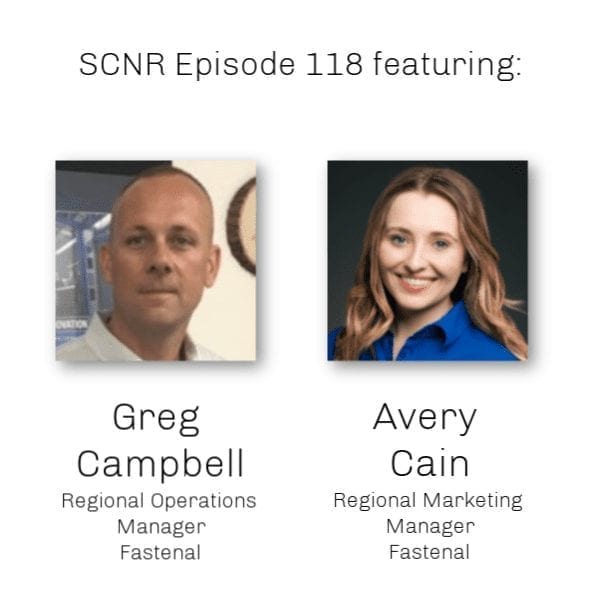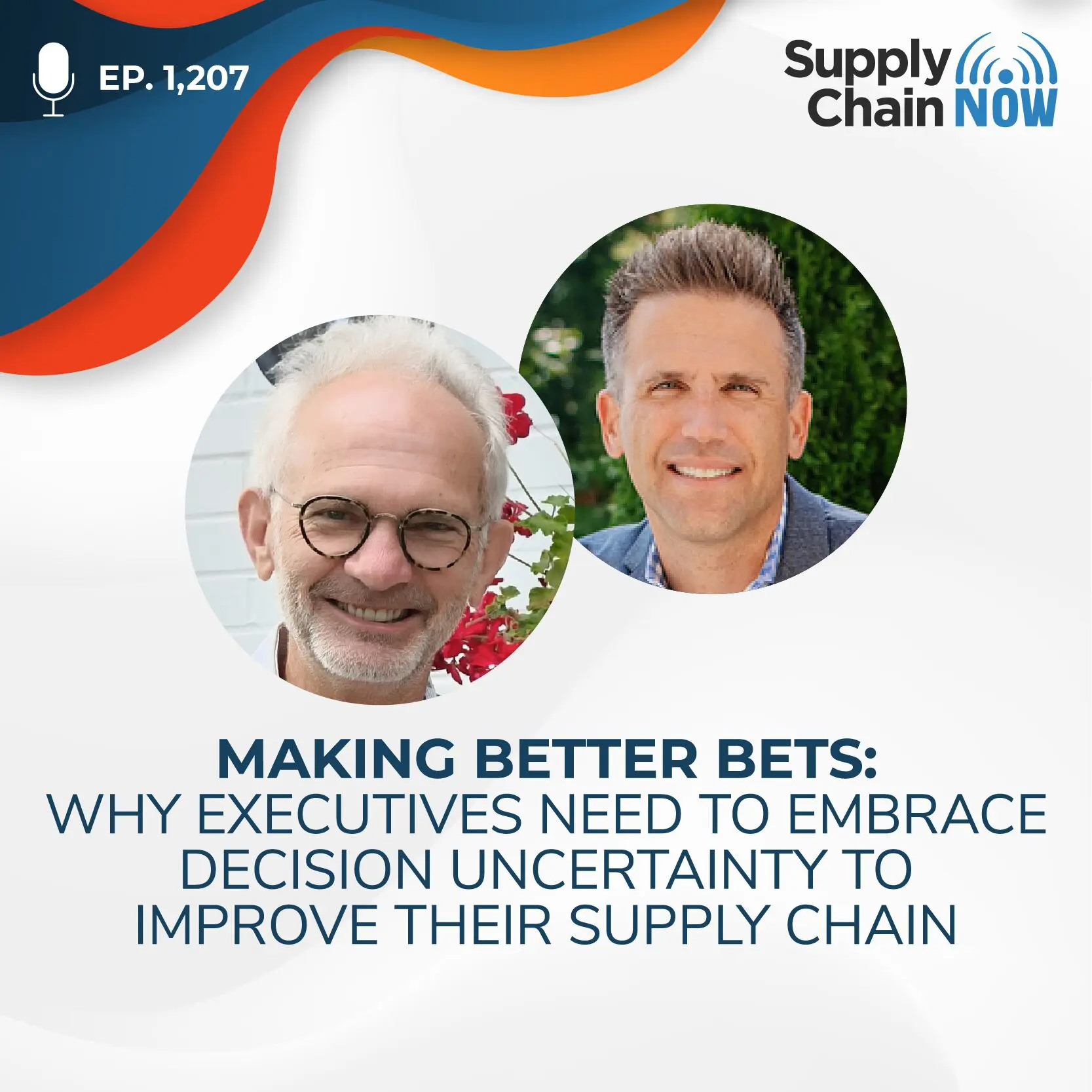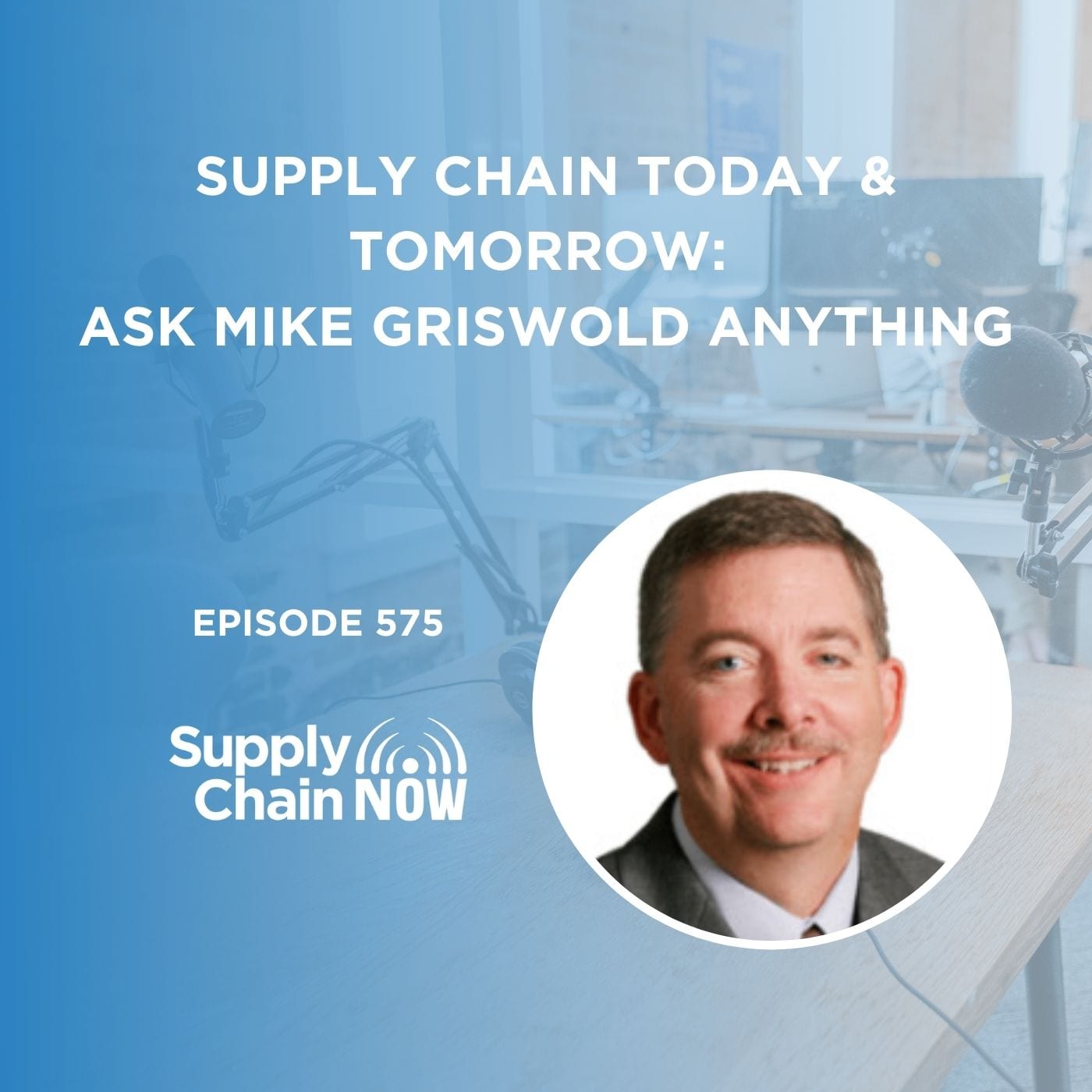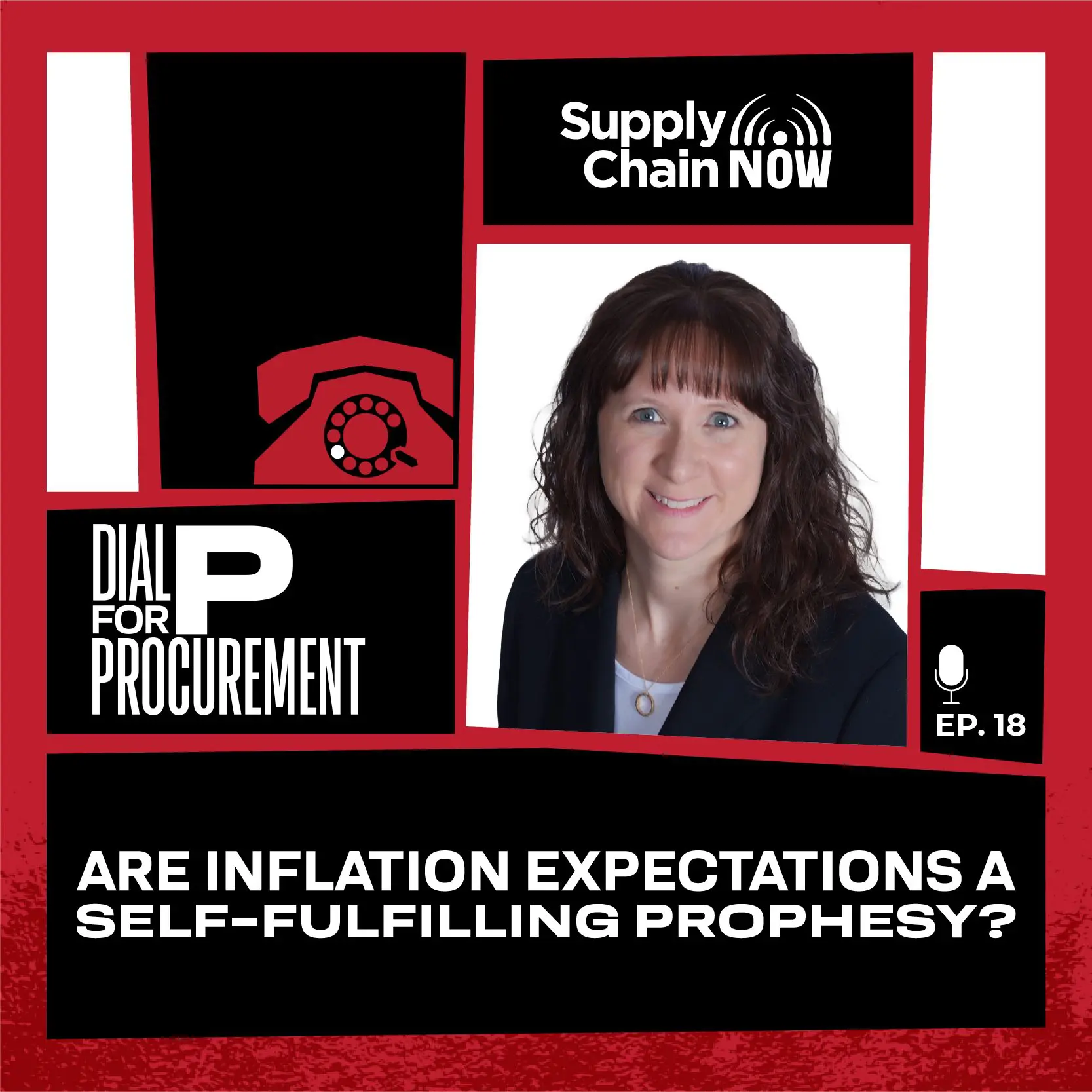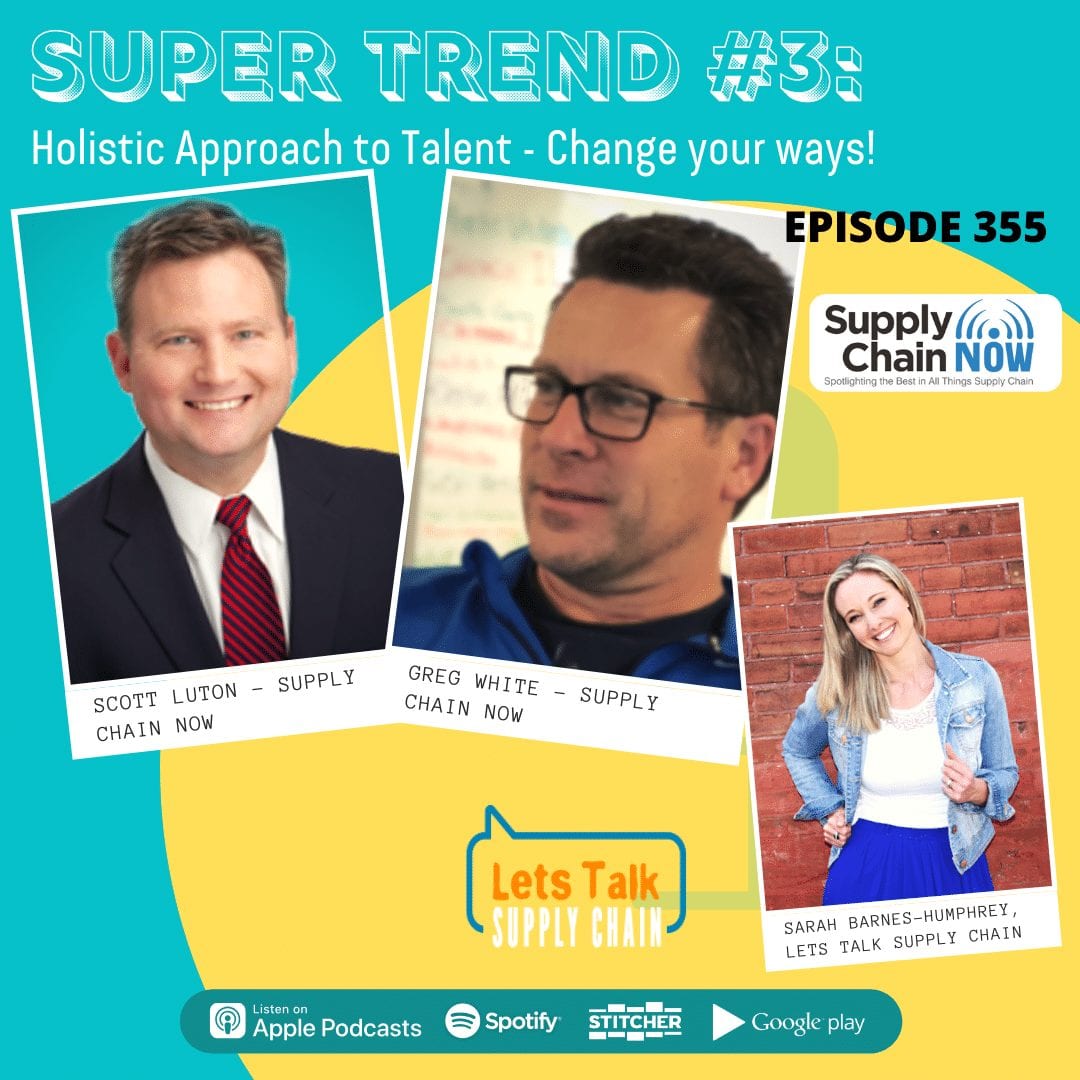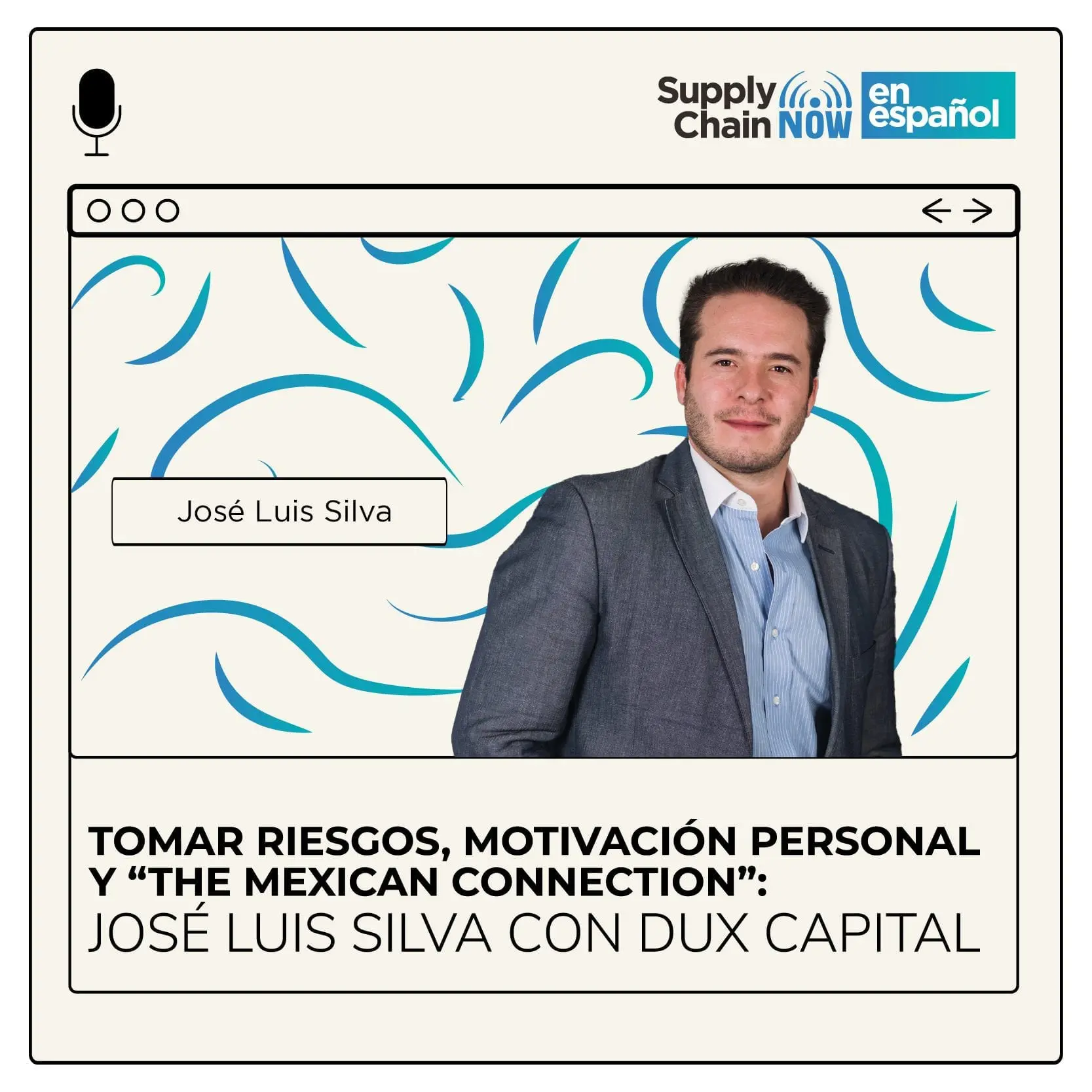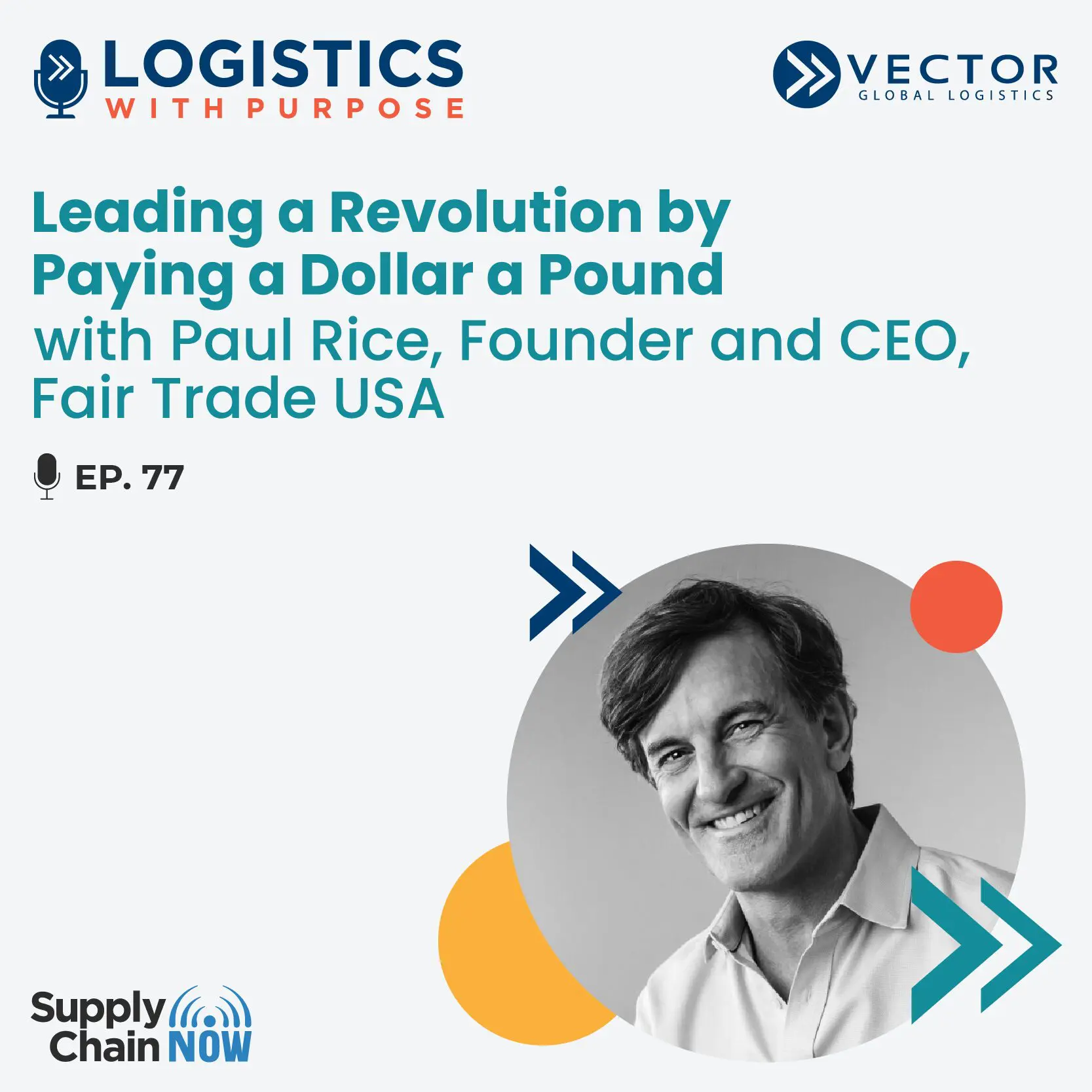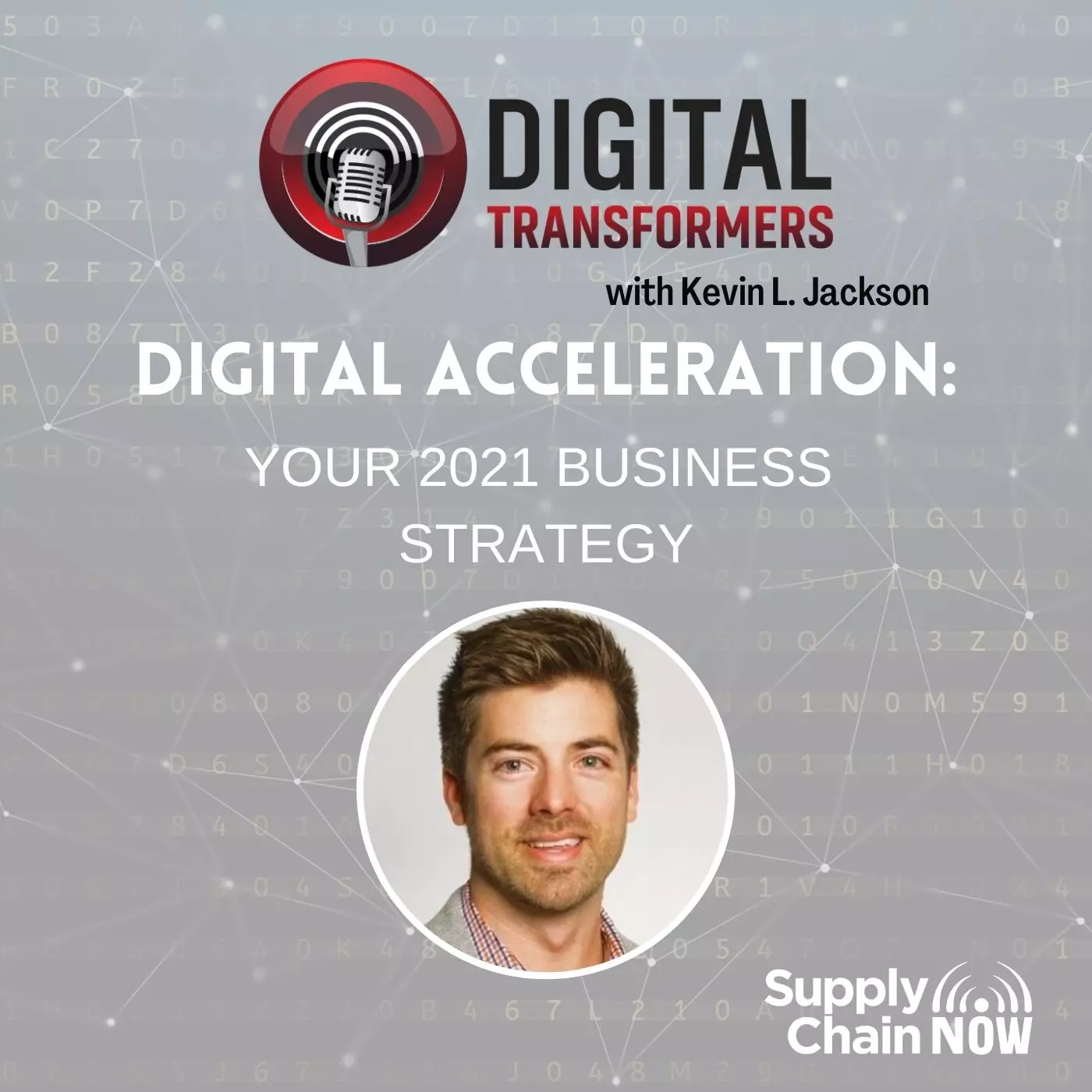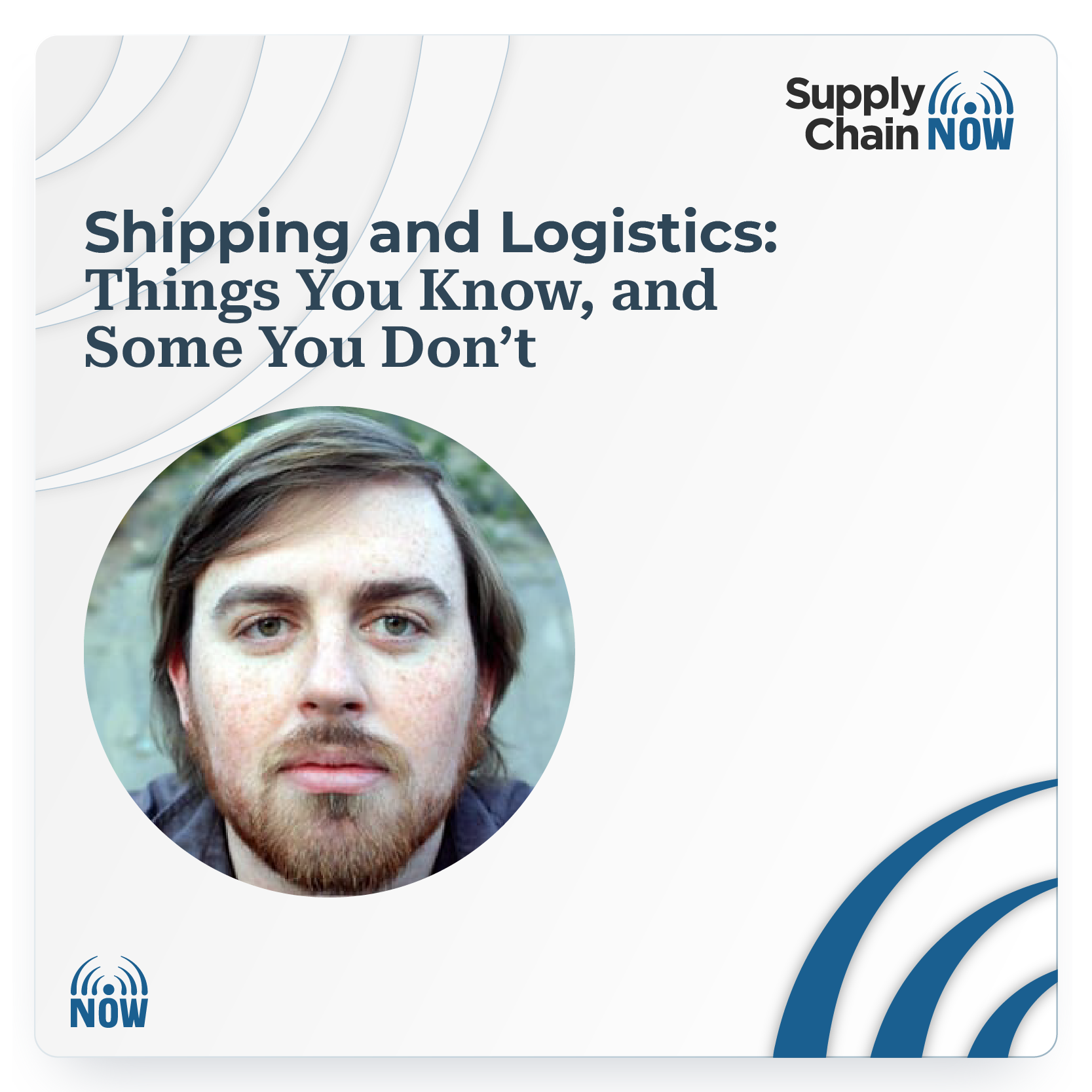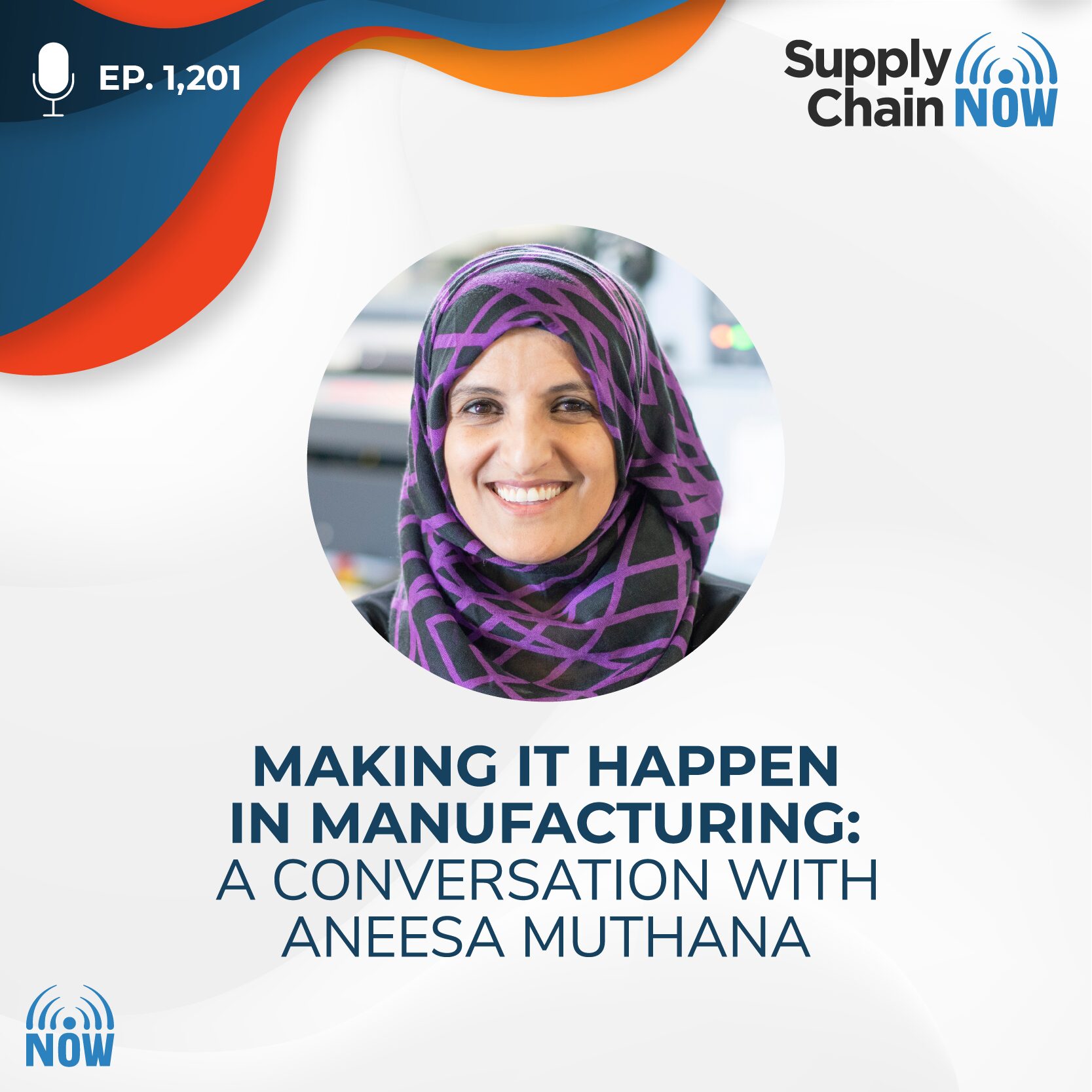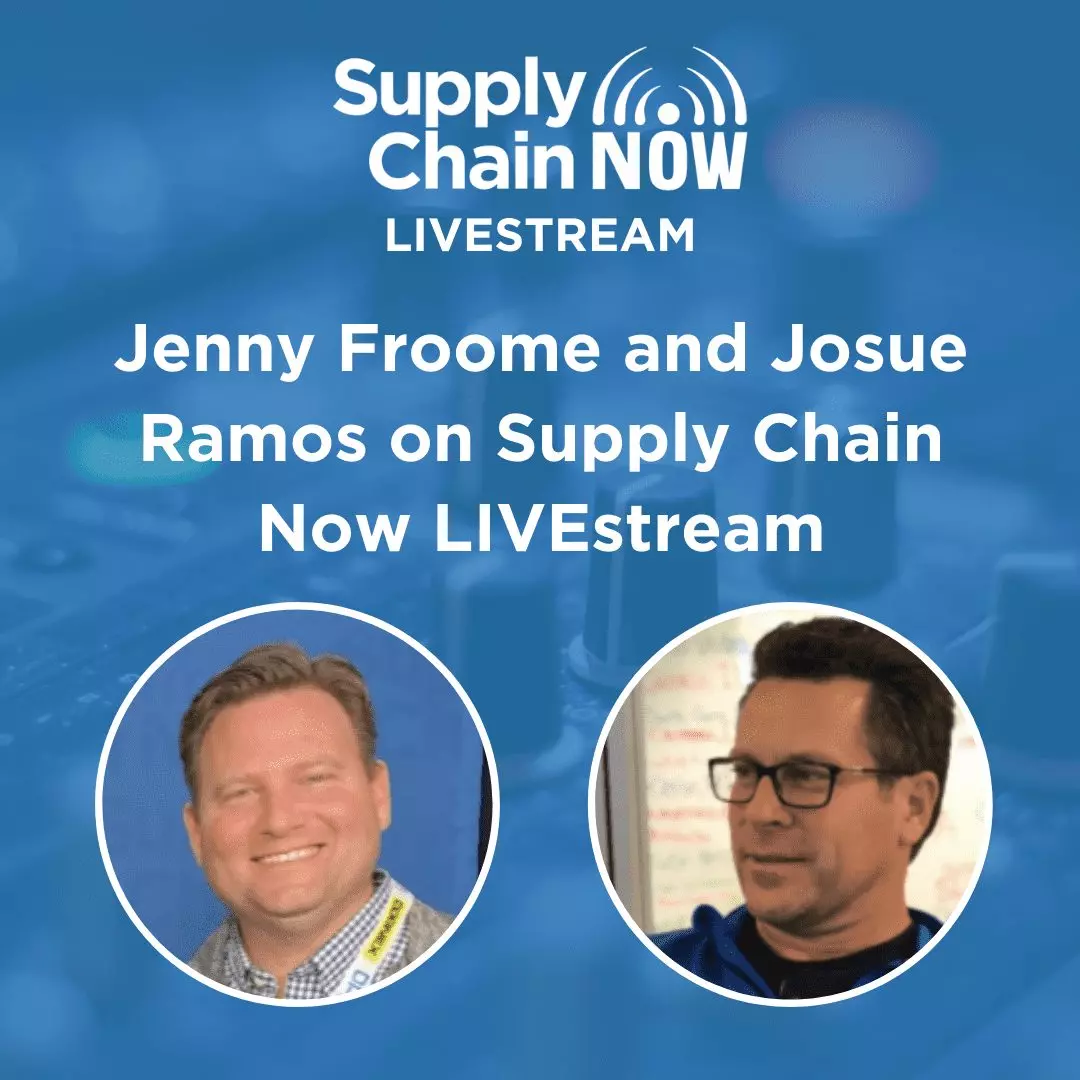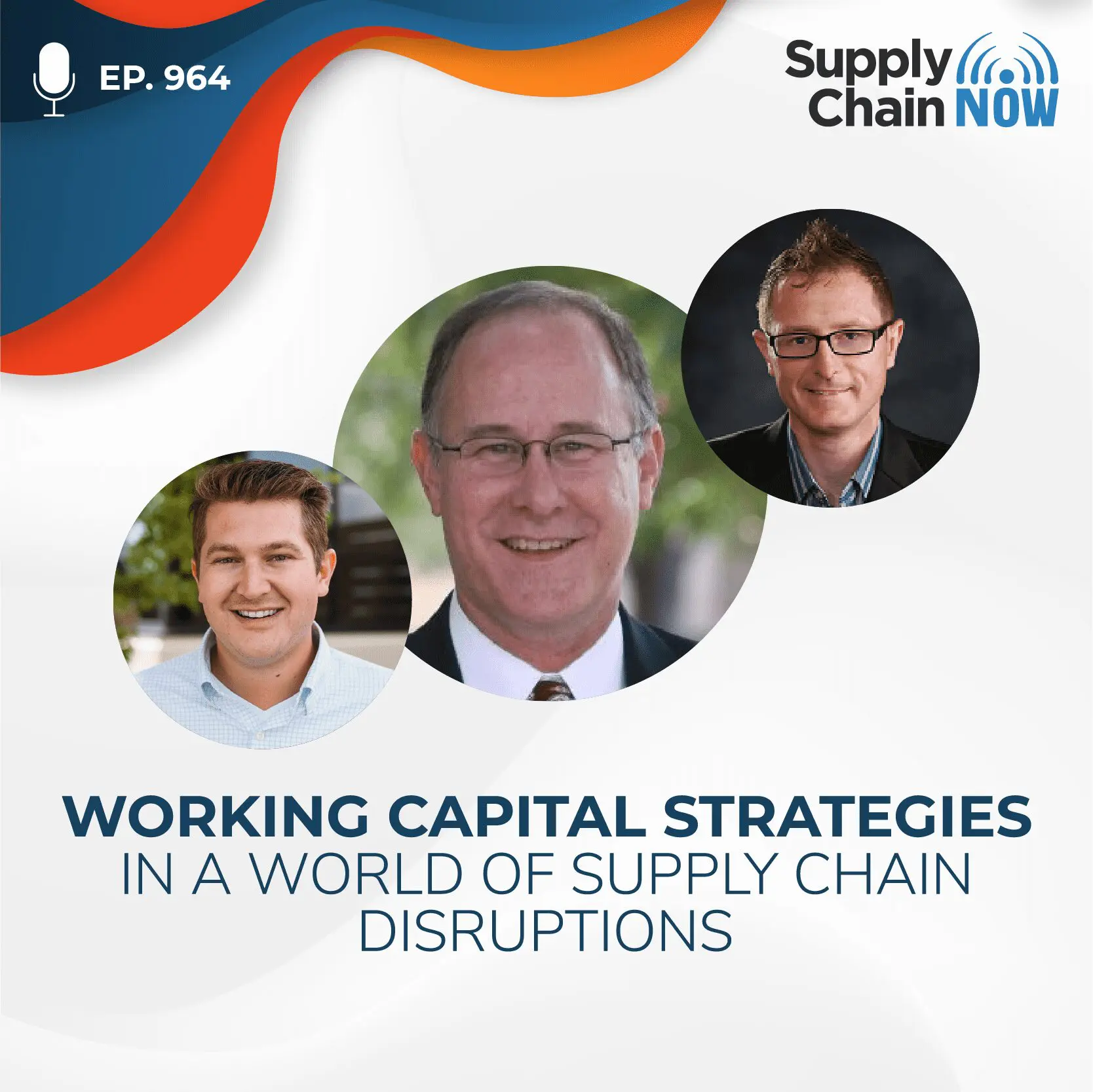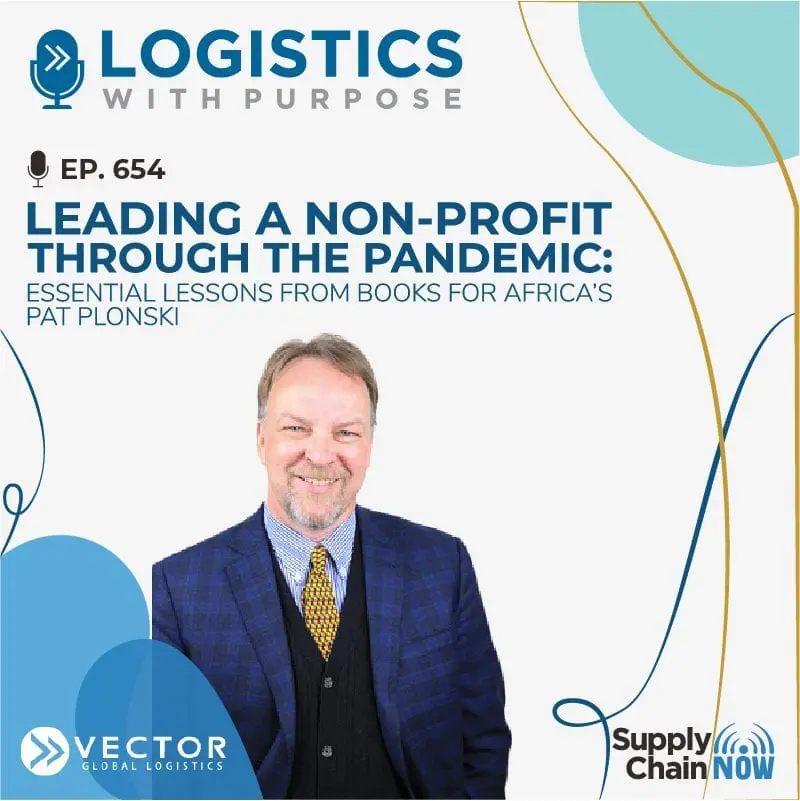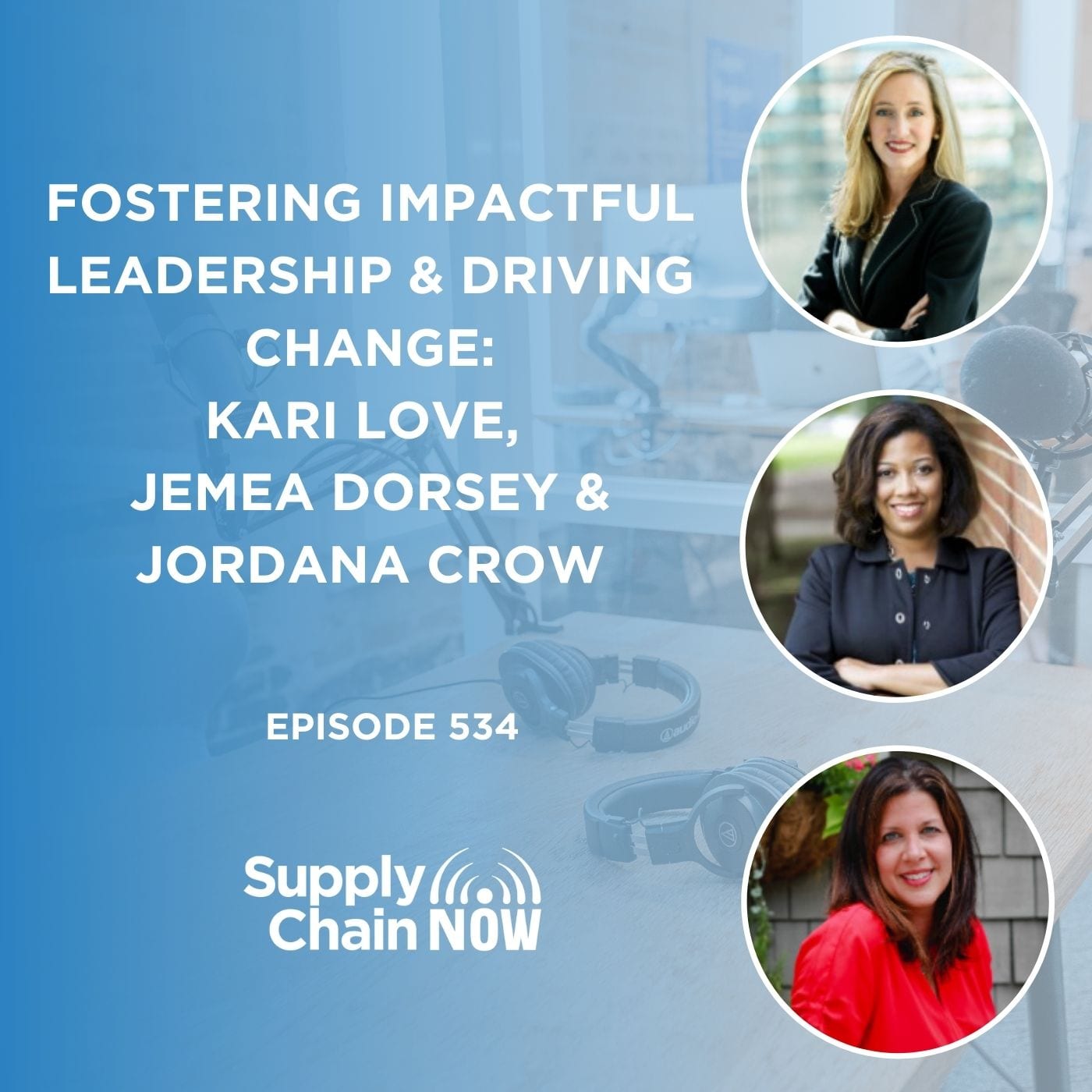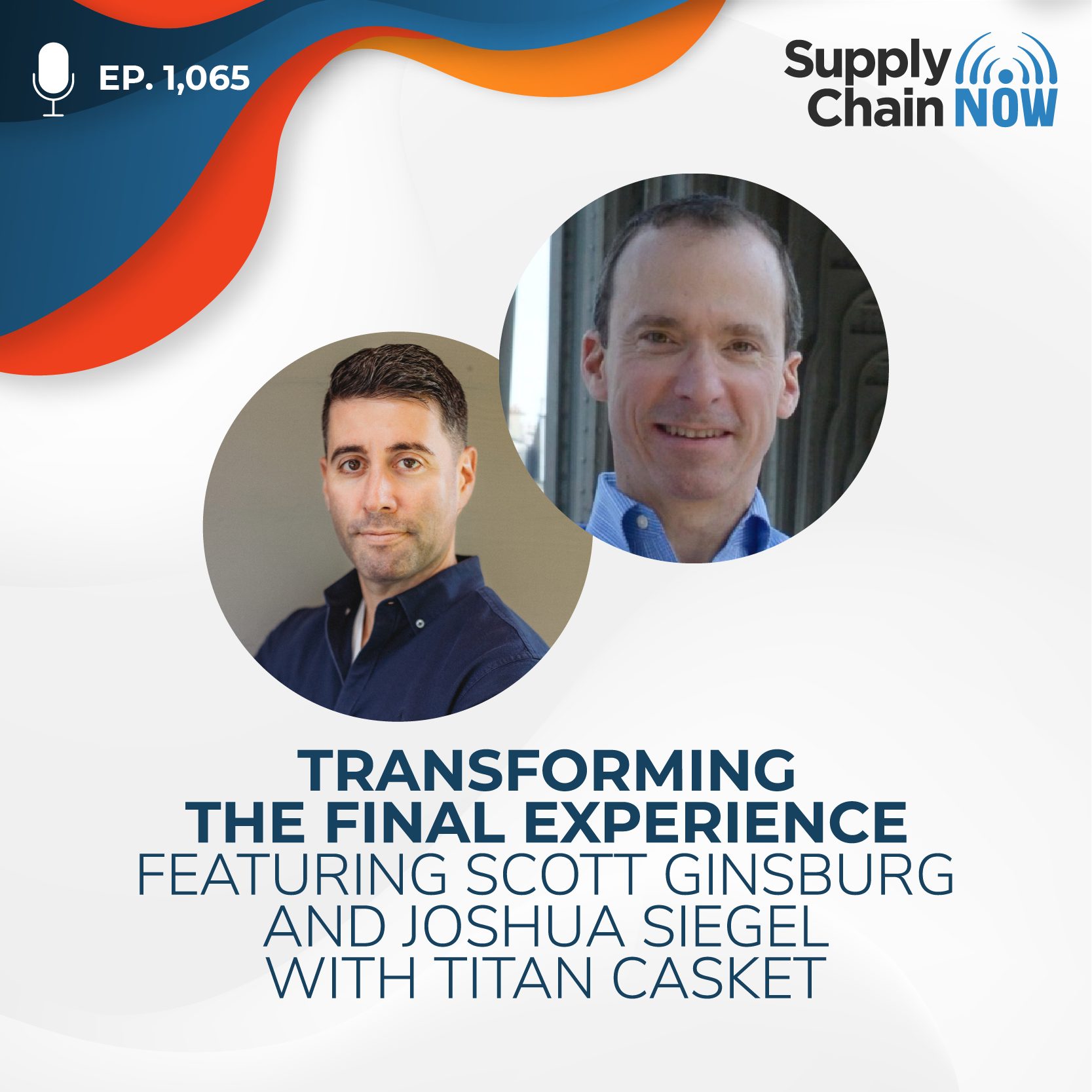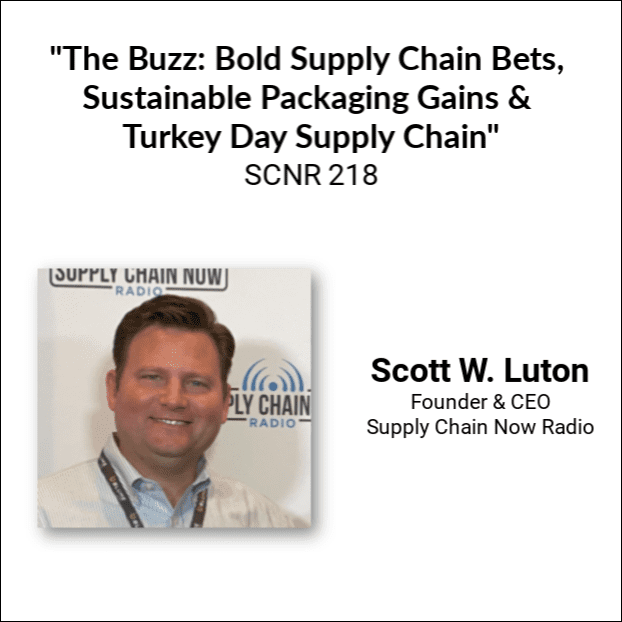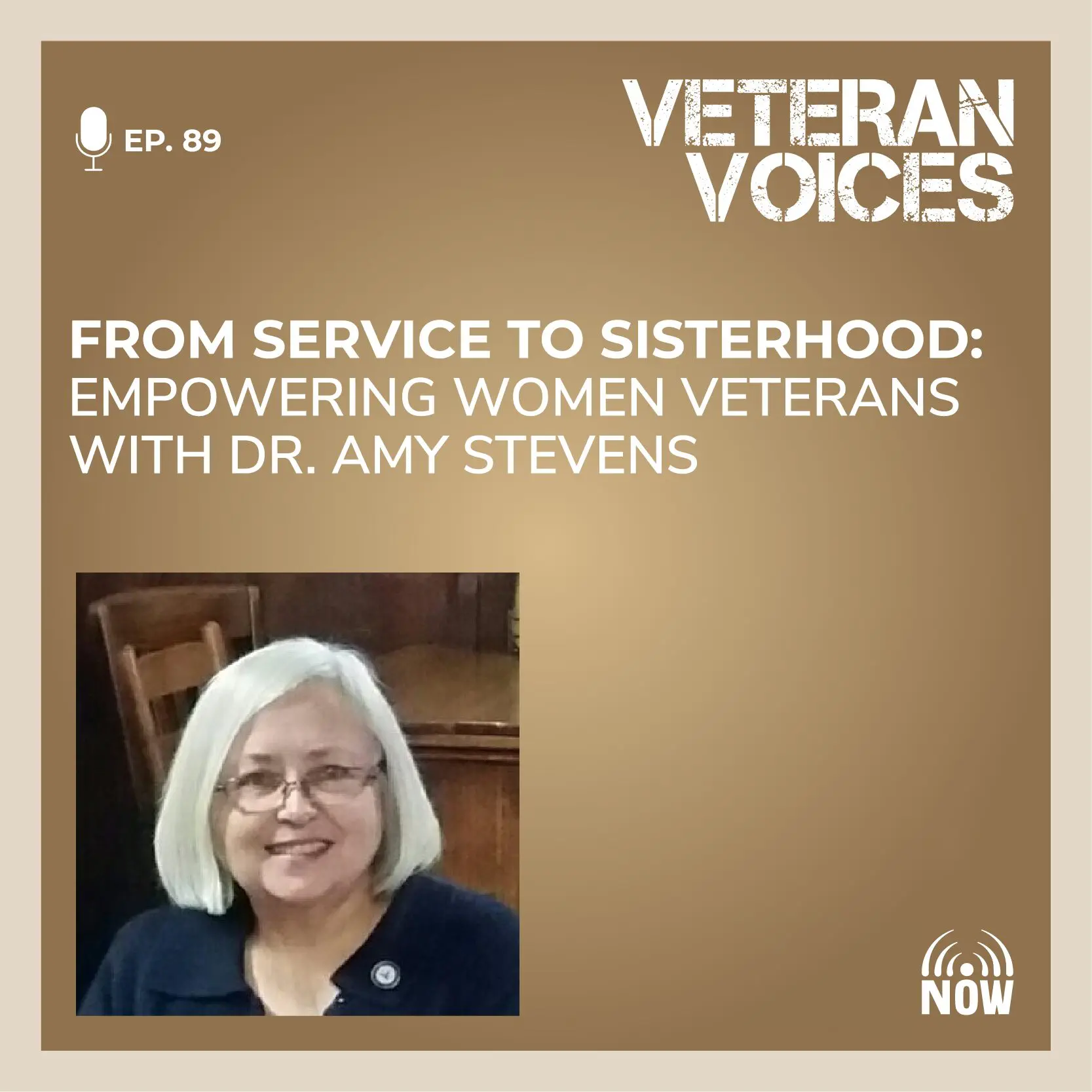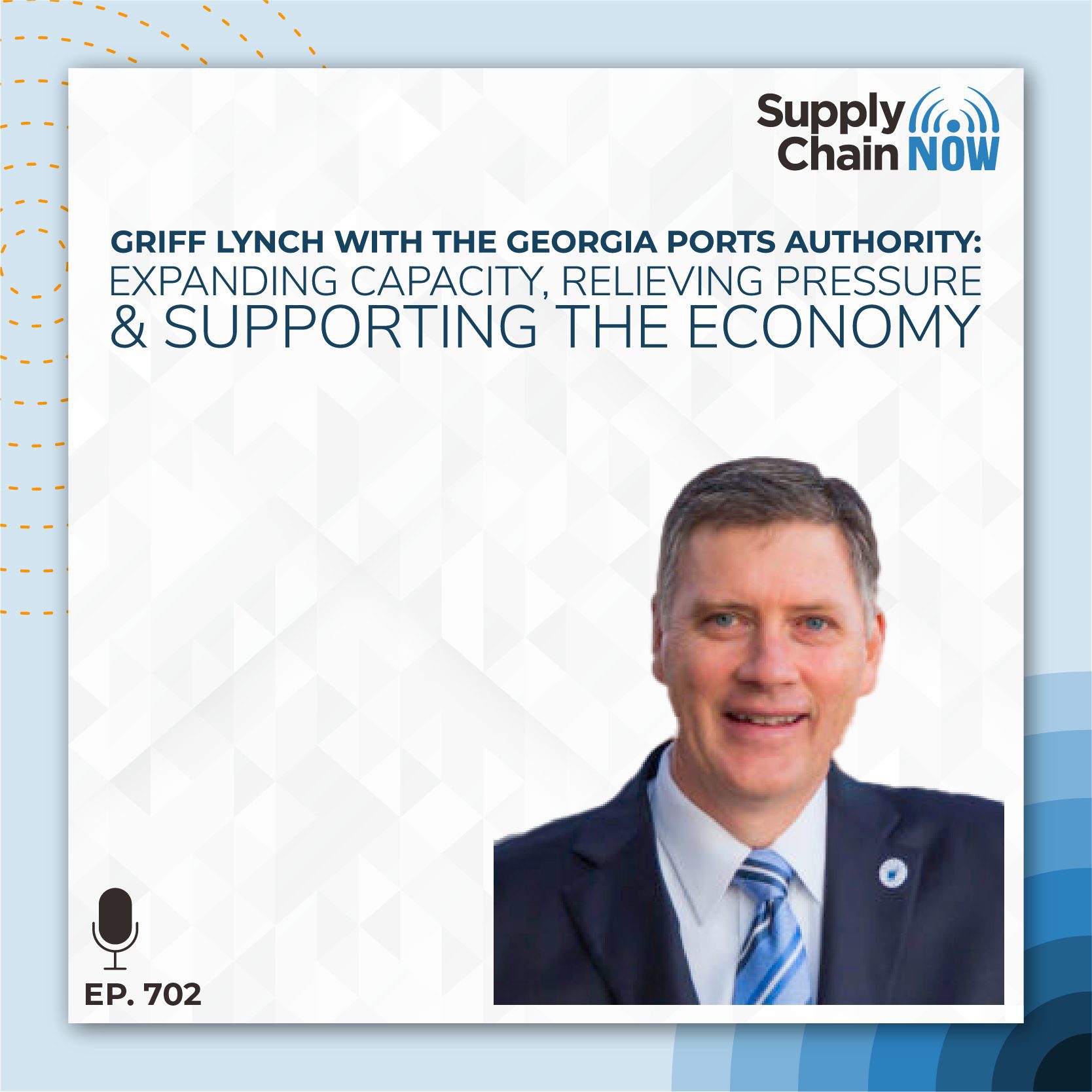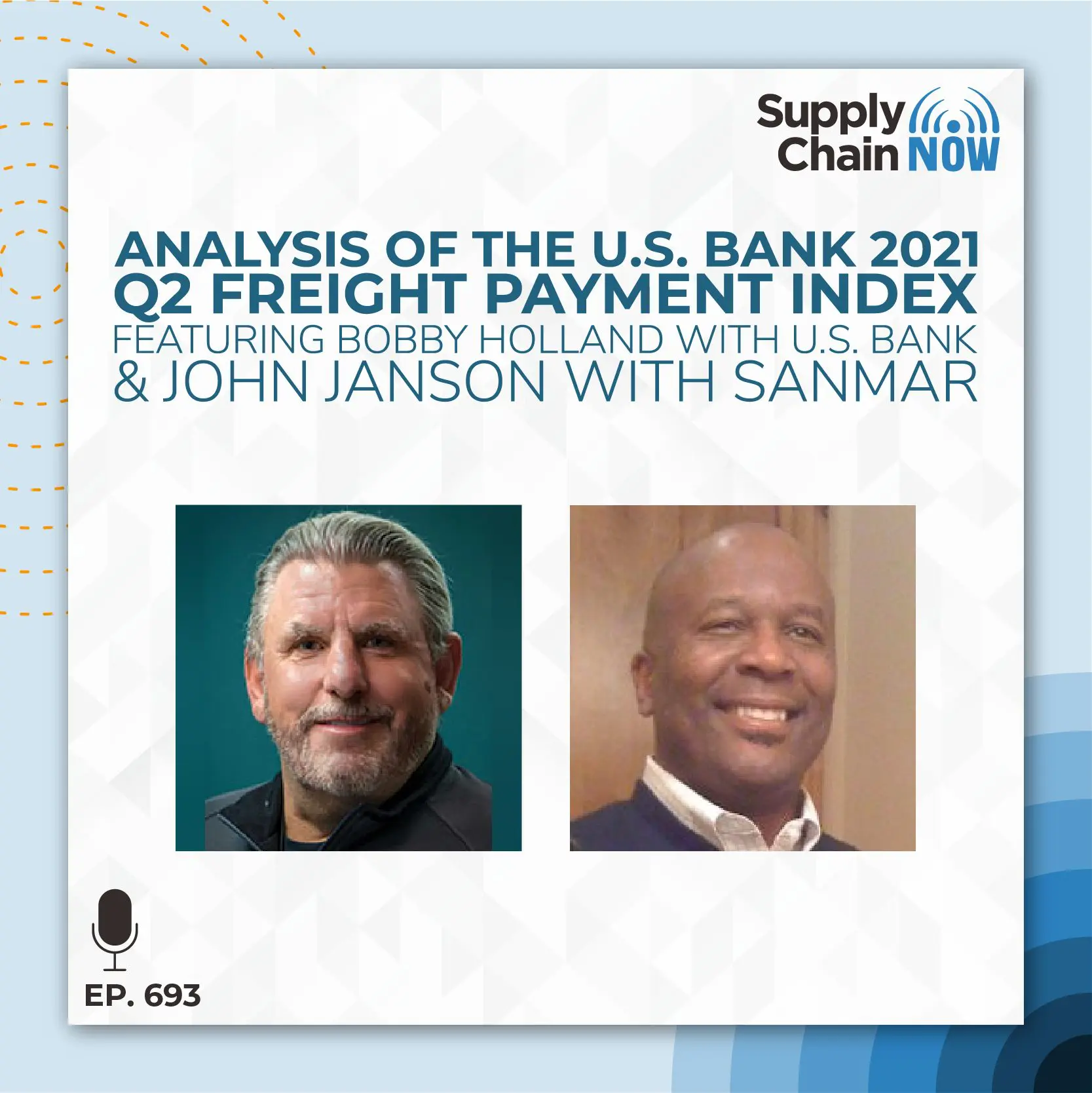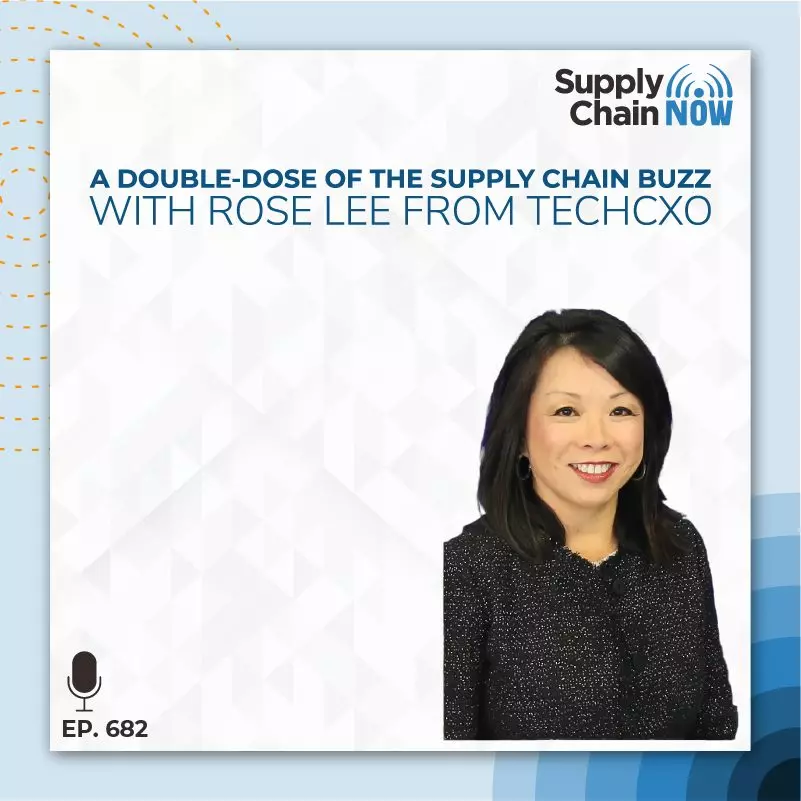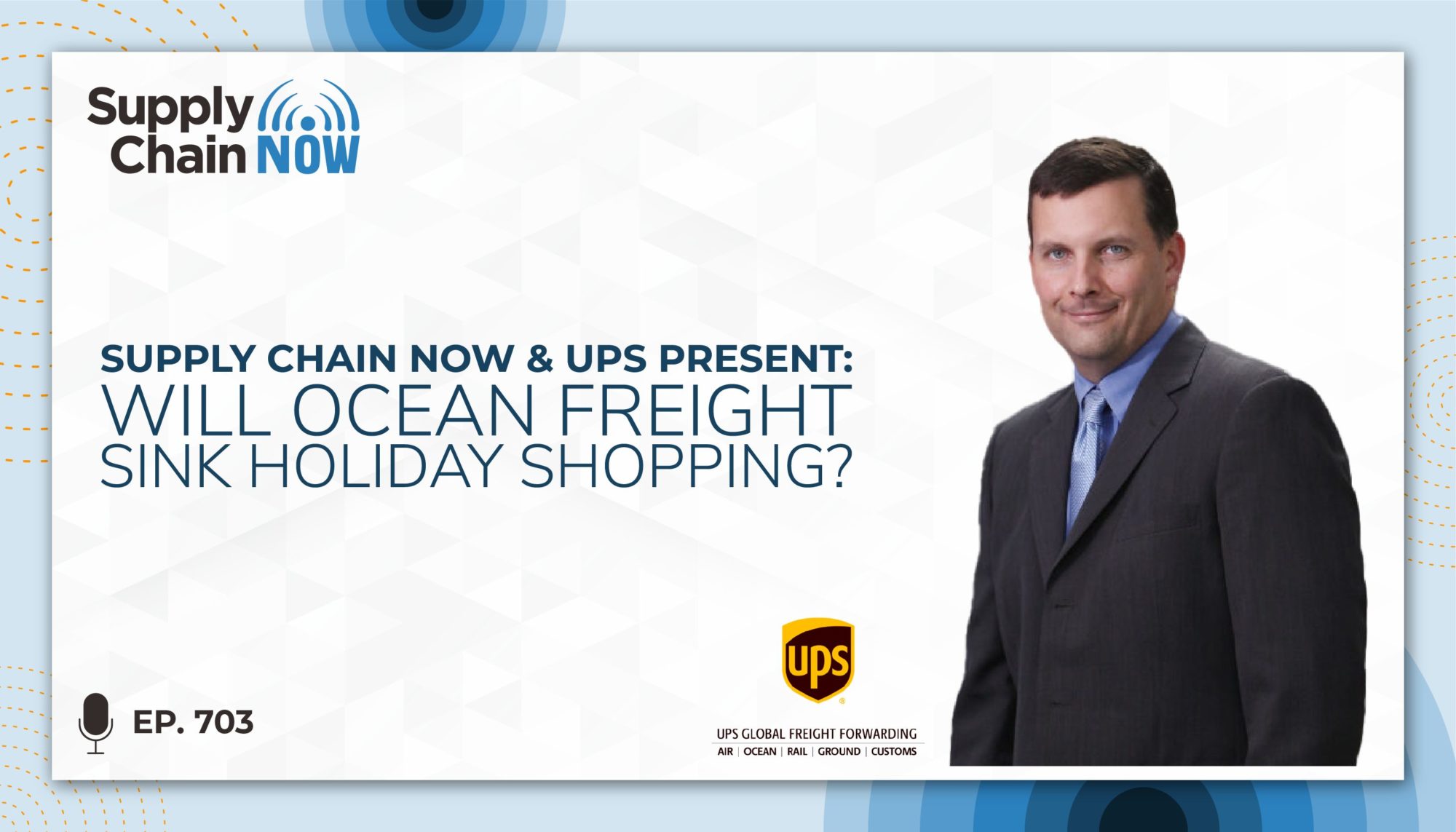
CFOs and COOs are asking more questions about why costs have increased. We've long been wanting the respect and attention that supply chain deserves and now that we've gotten it, it's a dual-edged sword, isn't it? Now we're right up front with sales and other aspects of the business as companies talk about their earnings and sales and profits and whatnot.
- Steve McMichael, Vice President, UPS Ocean
Episode Summary
UPS may be known for their fleet of brown trucks but make no mistake – those trucks cover the last mile in a huge global logistics network. With 50 years of freight forwarding experience and service in over 1,600 countries, UPS is a formidable player in the global ocean freight landscape. As conditions change daily, shippers are weighing their options and re-examining the relative advantages of air and ocean freight.
Steve McMichael is the Vice President of UPS Ocean freight. Even though he’s been in the field for his entire career and has been based all over the world, economically speaking, he has never seen anything like the ocean freight conditions we are observing right now. Ports are congested, rail is congested, and driver shortages persist. How should shippers and consumers adjust their plans?
In this conversation, Scott and Greg get the latest observations and recommendations from Steve based on his unique perspective:
• How companies can work with their suppliers to manage purchase orders so that products and materials arrive on time, no matter how far they have to travel
• How the rate of returning containers to China is causing backups in distribution and potentially even affecting the holiday shopping season
• The critical need for ocean carriers to get better at forecasting minimum quantity commitments and lead times so shippers can make more informed decisions about freight
Episode Transcript
Intro/Outro (00:00:03):
Welcome to supply chain. Now the voice of global supply chain supply chain now focuses on the best in the business for our worldwide audience, the people, the technologies, the best practices, and today’s critical issues. The challenges and opportunities stay tuned to hear from those making global business happen right here on supply chain now.
Scott Luton (00:00:31):
Hey, good afternoon, Scott Luton and Greg White with you right here on supply chain. Now, welcome to today’s live stream Gregory. How are we doing? We are
Greg White (00:00:40):
Doing fantastic. Scott, how are we doing? We being you?
Scott Luton (00:00:44):
Hey, you know, we got to break from the heat. It was a cool 80 degrees yesterday. Metro Atlanta, we’re loving every minute of it. Uh, who knows, maybe I’ll be able to grow some tomatoes finally, uh, still working on that garden, but it’s been a great week thus far,
Greg White (00:00:57):
Greg. Yeah, it has, uh, the deer have eaten well in our garden. We’ve grown tomatoes, um, and we’ve, we’ve fed the local fauna with them and it that’s right,
Scott Luton (00:01:11):
Uh, tune in, uh, every Wednesday at 12 noon for garden time with Scott and Greg. But we’ll save that for next week. Uh today’s this is
Greg White (00:01:19):
The problem with the supply chains here. Right? Great. Hey,
Scott Luton (00:01:23):
Today’s show, we’re talking about the adventurous world of ocean freight global freight. You name it and a lot more. And Greg, I do have a question for you. My friend will ocean freight sink, holiday shopping.
Greg White (00:01:38):
Ooh, I like that play on words. Is that upon technically I think upon, yeah, I like that. That’s a good play on words. Um, I think if it will, the impact has already been seen. I mean, I, I think it’s probably hard for people who’ve not been in retail to relate that most peak goods have landed by now. Right. Um, you know, you gotta think about this time of year. There’s always a backup this time of year because you’ve got back to school, you’ve got the pre Christmas holidays, Christmas, all of the other, all the days that, uh, come into that. And you know, into that same time period, um, it is a crushing time of year for, for supply chains generally. But this time of year, I’m going to say, if you haven’t landed your goods, you may not have a peak season. We talked, uh, you know, I did a commentary on this last week, um, about somebody I think said not they’re not even captain obvious their captain too late. Uh, said, if you haven’t placed your orders for peak by now that it’s probably too late. Let me and I, my response to that was if you haven’t landed your goods by now, you’re, you’re coming up on too late. Really, really there’ll
Scott Luton (00:02:50):
Be a lot of grants across global supply chain for sure in the months ahead. But Hey today, Hey,
Greg White (00:02:56):
This is America. We’ll figure out some other way to spend money. We can’t buy presents
Scott Luton (00:03:01):
Today. Greg, we’re going to be learning a lot more about the war wild world, crazy world, wild wild west world of ocean freight. And then some with our friends at ups, specifically Steve McMichael with ups global freight forwarding. So stay tuned for a highly informative conversation. So with that, that’s
Greg White (00:03:19):
Right. They don’t have to trust me today. They get to hear it from somebody who actually knows.
Scott Luton (00:03:23):
Right. Um, but before we bring Steve on, let’s say hello to a few folks that are already tuned in here. Hey, Peter Bo lay all night and all day.
Greg White (00:03:31):
Oh, it was a little worried about the day when we didn’t see him the other day. Well,
Scott Luton (00:03:35):
I think he’s playing some golf so we may not see it, right?
Greg White (00:03:38):
Yes. Yeah. That, yeah, a lot
Scott Luton (00:03:41):
Of them here today, but regardless, hopefully you are doing well there. PB Fahd. He, uh, I imagine will, uh, be bringing a lot of POV here today and he’s got a new, you want to hear what he’s saying? He’s got a new head shot. They’re fine. I like it. Fatherhood looks good on you, man. And I’ve enjoyed seeing your pictures of the family. So great to have you Joseph Beretta host of a new podcast up there in the Northeast. Uh, so Joseph hope this finds you well, great to have you here today. Uh, let’s see. Hey Rhonda bumpin Zimmerman PhD, Dr. Rhonda is with us own time today.
Greg White (00:04:18):
How about that? Yes. Yes. So something’s going wrong on the west coast, but I did see a post. I think it was over the weekend. I think we need to hear what her hubby’s employment status is at this juncture. So Rhonda Phillips also, I love is I really dig is Eurotrash haircut. I love that Greg. I’ve been trying to attempt that, but my wife will not let me do it.
Scott Luton (00:04:43):
Uh Sushil is back with us today. Great to have you back, uh, via LinkedIn, uh, looking forward to hearing your perspective today. And I got to add one more before we bring in two more for you bring in Steve. So Nearpod is comparing weather notes with us. So, uh, cheers from the Arctic where it’s a balmy 88 degrees, uh, and get this dad joke. I heard the disruptions in the ocean freight will bode a wavy holiday season. Ooh, you’re
Greg White (00:05:10):
Fine. I suppose.
Scott Luton (00:05:13):
That’s right. Alright. So with no further ado, let’s say, I’m
Greg White (00:05:18):
Not sure Steve is ready for this, all this comedy.
Scott Luton (00:05:21):
Great to have you here via LinkedIn. Let us know where you’re dialed in from looking forward to your POV as well. Um, okay. So with no further ado, I want to bring in Greg, our featured guests here today. Steve McMichael, vice president ups, ocean freight. Steve. Good afternoon. How are you doing?
Steve McMichael (00:05:37):
Hey Scott. Hey Greg, how are you doing outstanding. We, uh, you thought you thought you were going to have a serious discussion around supply chain today. Give me a break. Just give me a break for that. From that today, especially with the, with the kind of discussions you must be having right now. I figured we better have a little with it. You got to laugh or you cry. Let’s do that. Let’s do some laughing today. Well, we’re going to start
Scott Luton (00:06:02):
With the easy stuff.
Scott Luton (00:06:04):
Hello to a couple of quick folks, Tim. Uh, great to have you here really appreciate what you shared about your family and your service, uh, to the country. So, um, all the best to you, wherever you are, uh, Harmeet is tuned in via LinkedIn from Toronto. Great to have you here. And the one only Gary Smith is with us from New York city. Greg is back on the right and all is right with the world. Okay. So Steve starting with the easy stuff, my friend, let’s talk about where you grew up. I’m a small
Steve McMichael (00:06:34):
Town guy, guys, uh, Jackson, Georgia, a little south of here. Uh, it’s uh, about 40 miles south of the Atlanta airport, late Jackson grandpa’s farm and, uh, the best barbecue in the world. Fresh air barbecue. Yeah.
Scott Luton (00:06:53):
And we were talking, you know, all you gotta say is food around here and you get everybody’s attention, but fresh air barbecue is such a small world. Amanda and I have eaten at that place three or four or five times, oftentimes headed down to Jacksonville or other points in Florida. And it is it’s one of a con. Yeah, absolutely.
Steve McMichael (00:07:12):
And is there still saw dust on that? Absolutely. I actually had a little, a kitchen fire there about a couple months ago that terrified the nation. Uh, not just Jackson, the whole nation.
Scott Luton (00:07:28):
It’s got quite a reputation and, and just further down the road, uh, for any fans of fried green tomatoes, it is the backdrop for that movie. Uh, you know, that really illustrates some of George’s, um, uh, tradition for all things, movie production, TV, production, and more and more that’s
Steve McMichael (00:07:46):
Right. And don’t forget Indian Springs, state park, high falls. So all kinds of culture and things down south.
Scott Luton (00:07:52):
Okay. Wonderful. All right. So I’m going to say load of T squared is back with us, Greg. He said it’s been awhile. I’ve got the good SCM nourishment and I’m hungry. All right. Well, T squared you tuned in for the right episode.
Steve McMichael (00:08:06):
The other thing about Jackson guys in this microphone’s got me back in my element, right? I, I started right out of high school, did some local sports and work for w J GA radio 92.1. Let’s hear your spiel in your radio voice. You know, the crazy it’s tradie. Oh, you can buy, do you want to buy, sell, swap, or trade? Anything you call me at seven seven five seven five three five,
Scott Luton (00:08:33):
Man. I
Steve McMichael (00:08:34):
Had more girlfriends that were at least 80 that were trying to sell me their kit. So that’s all GA
Scott Luton (00:08:46):
What we’re going to have to have you hang out after the show. We’ll get some more stories there, but let’s get to the heavy hitting stuff, Greg. So let’s talk about national chocolate cookie day. Again, the fun stuff before we get to the serious world of freight. So it is national chocolate chip cookie day. Uh, I’ll tell you this folks in my family, my mom, my, my Nan growing up could make some awesome chocolate chip cookies. But Steve who makes the best in your life.
Steve McMichael (00:09:11):
That’s a tough one. Um, you know, our, our cafeteria here at ups has really good ones, but if I’m really, oh, it’s unbelievable, but oh, that’s dangerous. Yeah. But I will have to go out and say, uh, let’s go with Pillsbury throw that cookie dough on the cats dire. And a lot of them, my ups is listening. No I’m going to do this, but put it on the trailer. Put that cast iron on the Trager. Okay. And, uh, you got, that’s a pellet grill for an edge, right? One of our best customers here at ups on ocean. And, uh, that is how you make a chocolate chip cookie right there. Wow.
Scott Luton (00:09:50):
Yeah, that’s an exciting answer. So great. I’m not sure where to go from there.
Greg White (00:09:54):
Well also, let me tell you where I’m going to go from there because if I don’t, I’m going to lose half of my stuff. My wife makes the best chocolate chip cookies, Steve, and I will put them up against, okay. Anyone who is an expert, because there’s something she starts with the toll house recipe, or you go and then tweaks it in ways that she hasn’t yet decided to share. Okay. And man, it is just, it’s the perfect flavor. I look forward to the whole contest. She, she used to, uh, she used to have people when they would get injured or have a life event or something like that, that she would make them chocolate chip cookies. And we had people who were claiming injury when they actually weren’t just to get cookies. So, all right. We got to put that date on the calendar, Greg.
Greg White (00:10:40):
So, so you spent a lot of time talking about trading, which you’re doing for a living, but also sports, uh, in your days in Jackson. So tell us a little bit about, um, well, I want to hear a little bit your past hobbies with your kids and, and what you’re up to these days. Awesome. How are you getting your exercise? Uh, I need to get more exercise. I’m definitely doing too much ocean talk, but, uh, I’m, uh, I’m a big golfer now, uh, up in, Georgia up there at Windemere. So part of the club core, so that’s fun. Yeah. Working on the golf game, but I’m a diehard baseball guy grew up playing, it, started coaching it right out of high school. And, uh, my oldest just retired. So, uh, but yeah, Sharon Springs is where my heart is. Uh, did the commissioner job, uh, loved being with the community, loved being with the kids and, uh, hung that up, uh, last year.
Steve McMichael (00:11:39):
So it’s time to play golf and do more ocean freight, I think. And I know you’re doing a ton of ocean freight. So just to give us a little bit of an idea, I mean, title often belies the actual to day of what someone does in their career. So tell us a little bit about what your what’s a day in the life of Steve. Absolutely. Uh, 17 years with ups last week, been a fine, great graduates. It’s been a great ride prior to coming to ups. I played on the retail. So those guys you were talking about earlier, uh, target Kmart polo, Ralph Lauren. I know my old partners there are, are sweating it right now. Cause uh, holiday sales are upon us and uh, obviously we’re supporting a lot of those guys out there and we’ll get into that. Um, but yeah, I am vice president ups, ocean freight, uh, based here in Alpharetta, Georgia at supply chain solutions.
Steve McMichael (00:12:36):
Um, I took this role in 2015. Uh, prior to that, I was in Hong Kong for about three years, um, supporting our global operation over there and uh, and uh, yeah, it’s been a fantastic ride. It’s a great company. And uh, Hey, we, uh, we all know the mothership is very important in small package for ups, but we’re an integrator, we’re a supply chain solutions company. And uh, we are a force to be reckoned with in ocean freight too. And you’ve seen it from both sides of both shores, right? I mean, if you worked in, in Hong Kong, you watched a lot of ships launching to head to the states. And obviously, you know, since you’re in charge of the entire operation from this side, you have to be feeling the pain that the targets and other retailers are feeling right now. So can you tell us a little bit about what you’re seeing?
Steve McMichael (00:13:31):
Yeah. In the marketplace. This is my 29th year and I’ve got ocean tattoos, no matter which company I’ve been with, have you been around Cape horn? That’s um, you know, I, I actually started my career at Fritz companies, which was an acquisition of ups. About 20 years ago. We celebrated that earlier this year. Um, but everything ocean, uh, my entire career and, uh, it’s economically say I’ve never seen anything like what we’re dealing with right now. Uh, we’ve dealt with crisis, we’ve dealt with the longshoreman strikes. We’ve dealt with the, the, uh, 2009 when the vessels were all parked in Singapore, the hundred prices we’ve seen it all over the years. Uh, this has been going on now for at least 15, 16 months. And, uh, we just call it the eternal peak season that it takes its toll on our people on obviously our customers and, uh, our job is to, to find solutions, to talk about it.
Steve McMichael (00:14:39):
Cause look, CFOs, chief operating officers are asking more and more questions because why cost have increased. Um, and, and inventory is down and they got to have ready to hit the shelves and hit those production lines. You know, we’ve long been wanting, wanting the respect and attention that supply chain has deserved and we’ve gotten it now and that’s, I have a feeling that’s why so many people in the executive suite are so aware of this. And um, you know, it’s a dual edged sword, isn’t it? I mean, we were able to in a way, not that anybody did this consciously, but we did kind of hide in the shadows, not because we wanted to, but because we were kind of stuff there, but now we’re right up front with sales and other aspects of the business as companies talk about their earnings and sales and profits and whatnot.
Greg White (00:15:32):
So, you know, we asked for it and we got it. And did we ever, Steve, so I’m curious as you look at the market and we talk about this kind of eternal peak season, you mentioned that his demand is demand, the issue or is supply. The issue is demand that much greater. And, and if you have insight on it and I’m not asking you to project, but if you have insight on it, what do you think is, is the greatest impact on the flux that we’re seeing in the S in the market right now? I think it flipped right? When you go back to the first half of last year, the ocean carriers and the alliances have gotten really strong partnering together and blank sailings meant if the demand wasn’t there, we’ll blink sale and we’ll keep that, that, that supply line we’re right at the demand line.
Steve McMichael (00:16:27):
And then all of a sudden, you know, things started coming back. And the second half of the year it’s been about demand ever since. Um, you know, I, I was on a panel with, uh, CEO of Merced a few weeks ago and he said, Hey, our network, as an industry can handle about a 30% flux. Right. And we are surpassing that right now. Um, and ultimately, um, the vessels are full. They’re putting an extra loaders every day, every week. Uh, and then of course, you know, that’s just to get port to port under control when it gets to the U S we’ve got the additional challenges there with the, with the congestion and the rail congestion. And, and one thing that’s really jumping out now is driver shortages. You have the good old drayage guys, the long haul guys are, are, are at capacity or, uh, deciding not to work right now. Yeah. So those are all tied into the global ocean supply chain that we’ve got to work together with our customers to solve for.
Scott Luton (00:17:30):
So you’re, you’re kind of speaking to that state of the ocean market address. And I want to pose just a couple of quick comments here and we’ll, we’ll keep on going with your address, Mr. Vice-president. Um, let’s, uh, let’s see here. So clay of course, uh, ups iconic for their brown trucks, but there’s a lot more. And Steve speaking to a lot of the things that maybe some folks may not be aware that ups is involved in and leads, but Nessa welcome your first time with us on live stream. Let us know where you’re tuned in from via LinkedIn. Great to have you here. Um, so Charles heaters back with us, and I’m going to pose this question if it makes sense to you, uh, Steve, uh, if there’s any insight here, he says, not sure if this is pertinent, but do you have any visibility to must arrive by date? And if so, how far out are we and any commentary there? Yeah.
Steve McMichael (00:18:16):
Uh, you know, one of the products that we have at ups is called supplier management. I was actually brought here in 2004 to run that division of our ocean product. And it was heavily involved with retail, but getting those purchase orders way in advance and proactively managing that with suppliers all, with the focus of meeting that NDC date, there’s so much, there’s so many normals that are out there of, of just, you know, ship it on time and, you know, make sure it’s on a vessel. But if you really plan it up front with those purchase orders, and we can get down to an item skew level, right. Planning with your manufacturers, letting our teams on the ground, across the world, proactively manage that because meeting that NDC date is so critical. Now the biggest challenge of course, is what’s dwell timing now, how are we playing some of the predictive analytics that need to come along with what used to be a standard transit is obviously not standard in today’s environment.
Scott Luton (00:19:17):
Hmm. So, um, I gotta go back. I gotta interrupt your address again here, because once you start talking barbecue and cookies,
Scott Luton (00:19:25):
It’s still angry. Go back to that.
Scott Luton (00:19:27):
Rhonda talks about it’s the best barbecue in Georgia, fresh air barbecue. Uh, Jenny wants to know if she tuned into supply chain chow and hello, by the way, Jenny is tuned in from Johannesburg, South Africa, she leaves safe pick. So Jenny, great to have you here with us. And finally, David, I second that office has legit cookies, so David, great to have
Steve McMichael (00:19:46):
It. Oh, there we go. That’s one of my marketing guys out there and he’s one of Alex partners. Good to see you, David. I think chocolate chip cookies could be a great recruiting tool and I know everybody on the carrier side needs help these days.
Scott Luton (00:20:02):
All right. So, uh, I wanna, before we move to another, y’all been involved in some unique solutions problem solving and then some, and this in this crazy environment before we go there. Um, Steve, anything else when you, when w w as we’re, level-setting kind of the current state of what we’re seeing, what else would you add to that,
Steve McMichael (00:20:19):
You know, yesterday, or maybe it was day before? Good morning. America talked about, you know, your, your headline for the day of, you know, is it gonna sink Christmas? Well, let’s, let’s face it, my mom and your mom and grandma gonna watch that show and going to start shopping early. Right. You know, so where’s that going to put us in the inventory ranks? Um, you know, one of the things that we’re certainly seeing is, and I didn’t mention it earlier. Customers are earlier, but when it gets to your distribution center and you’re already at capacity, where do you think they’re sitting on that storage? They’re sitting on him, they’re sitting on ocean containers. So if these containers aren’t turning, we’re not getting those empties back to, to China in the Southeast of Asia. Um, it’s just, it causes that full cycle, um, that we all need to be aware of.
Steve McMichael (00:21:10):
Right. It’s demurrage and detention charges are at an all time high on top of the ocean freight rates, right? So it’s, it’s, it’s an industry full of challenges. Uh, a lot of frustration, you hear the word unprecedented, probably overused. Um, you know, and I, you know, frustrations are clearly at an all time high, uh, even our operators, right? Just dealing with the ports, dealing with the local drainage partners, dealing with the congestion in the rails. You know, it, this industry does take a toll on people and, uh, the more we can bring technology into it or that we can bring advice to customers to take that pressure off of our people is, is all part of our game plan here at ups, for sure.
Scott Luton (00:21:56):
Well, we’re going to get to some of the unique situations y’all been involved in. I want to share Tim Ingram says, Hey, had to say, and you don’t notice us. I think he’s referring to supply chain folks when we’re there only when we are not COVID has changed that narrative altogether. Great point too. And their fraud that’s a lot of years, 30 years, I notion freight for that 30th anniversary. Does ups provide a green parrot that has shoulder training
Scott Luton (00:22:22):
Say it better, right? They’re
Greg White (00:22:24):
Only, only 17 at a ups Nearpod. So I’ve got a ways to go there. I love
Scott Luton (00:22:28):
That. And one final comment from Rhonda talking about how strange of a time where we’re navigating through here. She says last night, our local news and Arizona was talking about the fact that folks are selling their homes and are taking their major appliances with them due to supply chain issues with appliances, getting new ones, any, is that some of what you’re seeing and then some Haas, Steve,
Steve McMichael (00:22:51):
It’s all about inventory. Um, you know, I’ve heard it from several friends and colleagues, Hey, it’s time for a mom to get a new, a washer and dryer. It’s gonna take six to eight weeks cause it’s probably still sitting on the water somewhere. Hmm. Yeah. Scott just had had that experience. Right. I mean, I think you took a lesser model just to get something right. Yeah. Between
Scott Luton (00:23:16):
Dishwashers and dryers and now refrigerators, we’re feeling all of that pain and we’re, you know, like most consumers we’re trying to fix them instead of having to resort to get new stuff. Right. Saving some bills, but, um, interesting time. Um, yeah. All right. So I want to move, I’ve gotten to, I’ve got a question here from Korea. So Karin bursa is host of our tech talk, digital supply chain podcast, a mover and shaker out there in supply chain, just like Steve here, Greg Corrine says container positioning has introduced even more complexity in moving global goods. Good stat on the ability to flex to be able to flex started percent, but how much more do we need? 20% more Steve, any commentary there?
Steve McMichael (00:23:59):
Yeah. You know, even talking to some of the carrier executives right there, always ask, how long is this going to last, right. How long are these rate levels going to stay at the, at the peak that they are? And the carriers are starting to turn it back around. Right. Okay. When are the ports gonna be uncongested? When are we going to get drivers moving freight, but right. When are people going to get back to work? That’s absolutely right. So it’s not just the ocean carriers, right? They are absolutely on the frontline of the firing squad, so to speak. Uh, but they are just an integral part of this network that we all have to recognize. And, you know, and the one thing that we certainly study with our carrier partners is what’s on order from a vessel, uh, new vessels, certainly equipment right now. Um, so we’re comparing and looking at how the carriers are making those investments. Obviously they’re making money right now, um, that allows them to make more investments. Um, and we’re probably not going to see a real effect of that and probably till late next year in the 23, 24. Um, so from the carrier supply side, that’s, that’s what we’ve see now it’s really about the demand, right? How are we going to continue as consumers buying grills and treadmills and, and new washing machines? Um, yeah, that’s about it.
Scott Luton (00:25:20):
All right. So Greg, uh, comment, before I move into talking about, uh, some of the other unique things Steven ups team has been involved in, well,
Greg White (00:25:28):
Th th there are just so many things working against the market right now, not the least of which is the demand that Steve’s talking about and where we are now in effectively, the peak half of the year with, with back to school, having just kicked off. Um, and, and, and everyone is trying to hedge their bets. These ocean carriers don’t want to be exposed. These transportation carriers, retailers, distributors, everybody up the line has been kind of hedging on building inventories on placing orders on bringing more capacity into the supply chain, because they’ve been burned so many times before where they’ve brought capacity in expecting it to sustain. And there’s really no reason to expect that it will sustain at this level and having been burned before I can see why they are so hesitant. And, and yet at the same time, I, you know, I just suspect, and this is just pure speculation that it’s going to reach a point where some of these carriers, some of these participants in the supply chain are going to go out on the edge because they just can’t take it anymore.
Greg White (00:26:35):
Or they feel like, you know, they’re going to be convinced that it’s going to sustain and they, they could be wrong and it could be catastrophic for a company like that. So I, I, I think that, you know, we’re going to have to do what you did, Scott, we’re going to have to substitute goods. We had to do the same thing. We had an air conditioner go bad. We couldn’t get the sear sear level that we wanted, the efficiency level that we wanted. We had to take what we could get. So, um, you know, there’s going to be a lot of substitution, which is also going to cause flux right in the supply chain. Excellent points. And you got some secondary players coming into the market, too. Right? Some of the entry age of players, um, some maybe domestic barge type players saying, let’s, let’s get in the game on a, certainly on the transpacific eastbound, but you know, w well, and Steve, you know, Carol said, I think it was last week, or at least it was reported last week that Carol Tomi, your CEO, right.
Greg White (00:27:29):
You know who she is? I think so these guys, those guys mind, um, but, um, she said that delivery volumes are expected to be five. You’re supposed to be, what is it? 5 million packages short. Did she say per week or per day? Anyway, it is woefully inadequate. Even once we get it here. Right. So the problems are not solved and that’s just current volume. So, yeah. And then, and I’m one of the old guys, Greg, I would be the traditional shopper last Christmas. I bought it all online. Right. Well, you know, Scott and I talked about that as well. We’re late shoppers. So we’re going to have to get on the ball here, or there’s not going to be anything left to buy.
Scott Luton (00:28:13):
Right. So part of the silver lining here, going back to appliances and whatnot, we’ll see a shot in arm with when it comes to remanufacturing and, and, and, and more options, uh, and more things getting recycled and reused, I believe, uh, in, in the years ahead at partially out of necessity, but also partially out of innovation. So we’ll see. But Steve, we’re talking about as, as you’ve laid out and Greg has spoken to, and all the folks in the comments, these are, um, unique to put it, um, [inaudible], won’t do it justice. These are, these are terribly challenging, right. I try to avoid all the cliches, you know, but Steve, you know, they call for not just innovative, but creative problem solving. And I know that you and the team that ups has been doing just that. So give us some stories, a story time, give us some examples of some of the, these unique solutions that y’all been involved in.
Steve McMichael (00:29:05):
Yeah, absolutely. I mean, obviously stated earlier, you know, it’s, it’s ups, the global network very integrated. Um, we are, you know, air freight customs, house brokerage, and our compliance group, uh, and then obviously a very strong north American air freight network. Um, that’s the global freight forwarding world that we live in. Um, there is our global logistics and distribution team, and then there’s our coyote partners. So all under the supply chain solution. And it really is right now about solutions. Um, our, our president, Felipe, Gail bear, and, and the, the region management team, um, supporting the three business units are our closest we’ve ever been. Uh, because this, this, this pandemic situ in the supply chain situation really is forcing these things to happen on behalf of our customers. Um, you know, again, I’m the ocean voice. Um, but there’s so many other peers and counterparts in the how ups supply chain is really coming together to bring those solutions.
Steve McMichael (00:30:15):
You know, when I, when I think about, you know, I’ve been on two customer calls already today, and of course, just like today’s podcast, you start off with the realities and then we get into the solutions and what can we do? Um, and the way I’ve kind of termed it here internally is it’s gotta be about dynamic routing and know how to pivot. Um, you know, I, I talked earlier about purchase order, right? That tradition Chanel model issue that PO 90 days ago expected to be booked a couple of weeks in advance and let it ride right today. That PO needs to be dissected potentially 10 times. And if I need to take 10% of that order out of Shanghai and airfreight it, you’re going to have the best air freight network ups. If I’m going to potentially move some of that international small package, even right.
Steve McMichael (00:31:10):
Even that is part of the dynamic routing that I’m referring to. We have a unique product that ups called preferred LCL. So instead of kind of that trade down from airfreight is our preferred LCL. And we’re going to put that in a consolidation. Again, we’re going to take a percentage of that PO not moving in the traditional FCL world. We’re going to put it in that console box. And then when it hits in the U S it’s going to go into that north American air freight network that I referred to earlier, that’s going to just moving to the Midwest to the east. You can save 40, 50% transit time now. Wow, there’s still congestion, right? There’s still capacity. We still got to have a container to move that box, but once you get that moving again, it’s to divert or to diversify and give yourself some options. So we’ve moved, you know, we counted all in kilos and, uh, you know, we we’re, we, we started this back when the air freight rates were skyrocketing in the first half of last year, but what customers are realizing now is that’s a viable solution, right? It’s not just an air freight trade down. It’s some critical product I can’t afford to air freight. It can’t afford to put it international small package. What’s my best alternative preferred LCL is absolutely, uh, uh, uh, a game saver for a lot of our customers today.
Scott Luton (00:32:35):
Talking about that traditional model and with your last phrase, that game saver that traditional model feels like starting pitchers, going nine innings, uh, Steve, and then happening more, right. You’ve gotta be able to do you can’t ship it and forget it. You gotta be able to, uh, truly dynamically ship and, and, and pivot make different decisions. Um, uh, find some new options in transit. It’s a remarkable time.
Steve McMichael (00:32:59):
I just got it. It’s like the Tampa bay devil rays, right? Those are coming in first seriously, makes it all up. And I think that’s, that’s the dynamics of what we’re dealing with and the companies that can be flexible, um, that can really dissect those orders. And let’s keep in mind these retailers, right? The buyers, their jobs to get product on the shelf. The logistics guys obviously take a lot of pressure there. And I, I sat in those chairs and the big box retailers, you know, the merchants now have to be part of the decision, right? Th the, the, the way to split an order or write a second order, or minimize an order tripling and quadrupling their work too. Right. But if they want product on the shelf, that that’s exactly what they’re going to have to do today. So
Scott Luton (00:33:48):
Nevada says going to one of the points and advantages that you’re speaking to dynamic routing is something. He says that a lot of logistics providers are afraid of, or at least are not practicing. He says, you’ve got to come up with solutions and it takes creativity and, and, um, inner fortitude. You can’t give it away. Well, it also takes systems
Greg White (00:34:08):
And a lot of logistics providers simply aren’t equipped from a technology standpoint or, or, uh, a breadth of service options to be able to do it. I mean, I think that’s the huge advantage that the big carriers like you ups have Steve, is, is that you’ve got the technology to be able to do it. And you’ve got the physical logistics capacity. You’d be able to do it, and we have to keep investing. Um, you know, I can tell you our, our visibility platforms we’ve been doing that, but it is, it is the lifeline today, right? Because you, you planned a transit time. You planned an ETA getting that product to a distribution center to a store that dates gotta be right, right. And retailers can make different decisions. Production manufacturing can make different decisions. Uh, we’re going to continue to spend time, effort, money to, to make that better. Um, and it’s difficult, right? It’s not all on the ocean carriage again, right. It is an integrated network that has to come into that visibility platform. And one of the buzz words out there right now is predictive, right. Predictive analytics, and being able to look at these dwell times by port, by rail ramp, um, those investments today will make service providers stronger.
Scott Luton (00:35:29):
Yeah. Well said. Um, all right. So just a heads up folks. We’re gonna, we’re gonna touch on at the end of today’s live stream as well, but on September ups is hosting a virtual summit. Um, and we want to make sure, I know the link will be in the show notes, uh, Amanda or clay or Jada, if you will, can drop that into the comments. So it’s, they’re real convenient for folks, uh, but you’ll need to join us as we take a deeper dive on the first. I think Greg and I are sitting in on a panel to talk about a lot more practitioner stuff when it comes to, to shipping things where it’s got to go across global supply chains. Okay. So Steve, um, you know, you’re, you’re speaking to a lot of the unique situations and unique solutions that you and your team have been providing. Um, let’s, let’s shift gears a bit and let’s talk about some key lessons learned from the, you know, the wild, wild west days of ocean shipping, global supply chain, your pick, but what are, what are some of those key lessons learned that are gonna stick with you? Yeah,
Steve McMichael (00:36:25):
I would, I would say it starts with, and again, some of these are buzzwords, but it’s so critical today, planning and forecasting right now, our, our industry as a whole has not been really good at that. Right. Um, how you plan your, your quantity or minimum quantity commitments to the carriers, how our customers plan and forecast with us as an envy OCC. Um, but more importantly, it’s that transit time planning that I talked to earlier, right. Don’t use that traditional 35 days to Chicago anymore. Right. Right. And, and getting a merchant, a new buyer at a big retailer to understand that it’s not 35 days anymore. It’s 62, um, planning and forecasting, absolutely critical. Uh, I would say flexibility maybe around the dynamic routing thing I brought up earlier, but being able to go multimodal, being able to not be afraid to move some of this product, airfreight try that preferred LCL type of option.
Steve McMichael (00:37:31):
Um, you know, port diversification, right. Everybody says, how do I avoid long beach? Right. But challenges are certainly in every port in the U S right now, um, one of my colleagues was flying into LA long beach, took a shot from his air airplane window a couple of days ago. And air, you see the 20 vessels, right. But you can go to Seattle, to so-and-so to Charleston and, and see some similarities. And, and it’s just managing the throughput, right. They just, they, they, they just can’t handle that same type of volume, but you got to diversify. Right. And that’s what it all comes back to. And then there’s the transload right. The ocean carriers are very clear. They want to be in the port to port business. They don’t want to be in the chassis business anymore. They don’t want to be in the inland moves.
Steve McMichael (00:38:17):
So the traditional IPI allocation is going to be a huge challenge. It’s a challenge. Now we think it’s going to be even greater. So the integrators that have capabilities for the port facilities to be able to move into 53 footers, to be able to find that capacity in the long haul and the local Dre is, is going to be critical. And when you say learning Scott, that that is absolutely what we are showing our customers and what they’re learning every day, that there’s going to be a cost factor, but there’s going to be a better reliability factor if they’ll take some of those chances and risks with us
Scott Luton (00:38:57):
That, uh, Greg, I’m gonna come to you next, maybe for some of your key lessons learned as well. But before I do that, I think Ron is going to join us for that non one virtual summit, uh, with some her organization going through some MNA activity, she’s going to be more involved. She’s rolling up her sleeves, perhaps Rhonda. That’s a great, uh, a great, uh, love to have you Rhonda. That’s right. Yeah. Leah says consumers also are expecting more out of transportation. They’re expecting more out of everything. I think that touches from e-commerce to supply chain transportation, you name it. No one, she says once a weight, more than three to five days to receive something, no matter where you are. Really. Yeah.
Greg White (00:39:34):
Well, we’re getting, we’re getting, and we’re going to continue to get a dose of reality on today and same day in three and five day delivery, because that, you know, where we’re already seeing it. And I think you’re going to see that trickle down to, from the big, big cost items to the kind of everyday items, not toilet paper, of course we’ve made enough for the next century. I’m sure. But, um, but I mean, there are still issues with every everyday products, right. Um,
Scott Luton (00:40:04):
You know, well, I think one of the things that Steve spoke to Greg, uh, that is similar to the pandemic, the challenge of the pandemic, right? It’s not, it’s not confined to a certain city or town or region is everywhere. And, uh, with port congestion, is it unlike in years, past decades, past, it’s been at this port, that port is so widespread and it just so much more complicates, um, what we’re all in practitioners and leaders are trying to, to move stuff, uh, in plan forecast, which of course we love around here. Steve, you’re talking about language, especially, or Greg white, but Greg, um, you’re, you know, what else you want to weigh in on some of the key learnings you’ve heard from Steve general?
Greg White (00:40:45):
Yeah. Well, labor, labor, um, you know, I’m going to keep coming back to that. We are seven months past needing to pay people to stay home. And that is, that is the root of all evil in this supply chain. It’s why we have raw material shortages. It’s why we have shortages in the ports, on the ships, in the trucks, on, in the factories, in the stores, in restaurants, anywhere there is a shortage of labor it’s because we are paying people more to stay home than they made in their previous jobs. And so why would they work that’s big? Um, the other thing is to, to Steve, to your point to challenge the forecasting and planning and replenishment mechanisms of a lot of these companies, um, I think that’s, that’s precisely, we’ve talked about this in the last week or so also Scott, the, if, you know, there may be no peak season for you if, if you haven’t already ordered in LA and in this case, many cases probably landed your goods as well.
Greg White (00:41:46):
And you would have had to have expected the kind of delays that you, that we’ve been seeing for Nikon eight months now. So it, there’s no reason that there’s no real excuse for retailers to have lagged in that regard. And, um, those that have, you know, there’ll be riding the Razor’s edge. If they’ve rolled the dice, they may have come up snake eyes by this point. Absolutely. But I’m curious on that point, Steve, um, when you talk about this dynamic routing, I envisioned, so I come from a world where you order from a supplier, right? And now that may be a diverse set of goods, but ordinarily that purchase order would have items with the same lead time on them from the same source. It is dynamic routing necessary because you’re seeing retailers or whomever is ordering. You’re seeing them order, uh, an even broader stack of goods on a single PO maybe from multiple locations or with multiple lead times.
Greg White (00:42:51):
It is that what necessitates the need. I think it’s a little bit of both Greg and, you know, again, if it sat front cover ad and you got to get product on the shelf, I got to airfreight it. Right. Versus, you know, and then if some of that same order, if it’s an M, if it’s a replenishment order to your point, maybe not as dynamic, it depends on those inventory levels. Um, and again, if I need to split an order to go 50% east coast, 50% west coast, just in traditional FCL mode, um, you know, those are all creating those, those, uh, internal challenges for customers because they need labor to cut orders, right? You gotta re you gotta send AIX eight 60 POS for PO change to the manufacturer. Right? All of those things are, are, are keeping everybody in the supply chain, looking at it from a to Z from that, from that angle really interesting,
Scott Luton (00:43:47):
Really interesting. I want to share solutions
Greg White (00:43:49):
For that. Not, not, you know, this is not on ups at all, but there are solutions for that, that can help these companies optimize those orders more efficiently. It’s surprising to me that it’s still so prevalent that there’s so much manual intervention in these orders
Scott Luton (00:44:06):
And triplicate, perhaps in some organizations
Greg White (00:44:10):
We may be right. And we haven’t talked a lot about it, but obviously, you know, the cost, right? Yeah. When, when, you know, I think the days of moving a 40 foot container from Shanghai to LA 1500 or less are long gone and forever, and you think forever, forever. Um, and I think that’s discipline. Um, but I, and I think it’s kind of the new norm that we’re gonna find some level ground eventually. Um, but there’s no doubt premium and super premium rates. Um, just add to the frustration, um, because supply chain budgets are, are way out of whack and we’re only halfway through the year right now. So do you think that that pricing is staying up because you think that demand will remain up? Is that our prediction is through the rest of this year? For sure. Okay. Yeah. Well, yeah. And probably in the next year, yeah.
Steve McMichael (00:45:08):
Play the Chinese new year traditional and then, okay. What does negotiation mean? Okay. Our traditional April may, what does that really mean in the future? Um, I think longer-term contracts. What does that mean? Um, and I don’t think the ocean carriers can answer that specifically today. Right. We know how the negotiations work DCOS and [inaudible] and everybody else. Um, I think we’re in a state of change, which has been a very traditional model. Right. You know, go to the TPM conference and, and everybody sit down and fight for the best rates. It’s not about that right now. Right. It’s about flexibility and capacity. It’s not Greg, Matt. I think we’ll come back to a more, a more standard level of equilibrium. I mean, maybe 1500 is gone forever, but the, does it approach start to approach a more normal rate or is it that the carriers have been supplementing freight for so long? They’re not willing to take those lesser margins anymore, or I w again, we’ll all look into that crystal ball. And of course our care they’re our partners, right. They are truly our partners. And, uh, I do think there’ll be some equilibrium. Um, I think we’re looking well into next year, even into 2023. Uh, again, if that demand stays where it is right now, and we as consumers will ultimately dictate that.
Scott Luton (00:46:35):
So let me get involved here cause I want to touch on, we want to touch on, um, anything else you’re seeing in the months ahead, but before we do, I want to share a couple of quick comments here, clay, uh, uh, thanks for dropping this again. Join us, Greg and I and Steve and, and the ups team on September 1st, the links there in the show notes and in the commentary also, I want to point out, Stephanie mentioned, she’s got parts coming to Shanghai or grand rapids, Michigan that have exceeded 80 days on multiple occasions are her average is running around 62 days. And that tees up Corinne’s question here, before we get to a moving forward, uh, final segment, Corrine says, Steve, did you say that typical ocean transit times have increased from 35 days to 60 days?
Steve McMichael (00:47:19):
Yeah, Karen, I was given just a example because look, depending on the terminal, it comes into in long beach, depending on how that rail ramp is. It’s really why those predictive analytics are so critical. Um, because every shipment, I mean, we’ve seen dwell times of two days, we’ve seen dwell times sitting in the ports at 40, right. Um, and that’s, that’s part of the frustration. Uh, and then once it hits that rail ramp what’s happening when it’s the UPP and the BNSF coming into Chicago, right. That’s a pretty big challenge right now, just getting boxes off the rail ramp. So, so every shipment is different. It’s it’s how do you bring some predictability and how do you help that in your planning process is so critical.
Scott Luton (00:48:07):
Gosh, as Leah, you’re asking some great questions. We’re not going to have time for today, but thanks so much for joining us. I’m gonna, I’m going to pose, I’m gonna get before we get to, uh, the crystal ball out and get some, uh, Steve’s additional forward-looking thoughts and speak, speak to this for a second. Do you need
Greg White (00:48:22):
To deliver the crystal ball to our guests,
Scott Luton (00:48:25):
But you know, working from the office, you know, that work from home dynamic doesn’t appear to, um, you know, be leaving industry, uh, as much as folks would, like many folks would like, you know, some folks want to work from home. Some folks want to be in the office. Some folks want to, uh, you know, mix and match. But as Minda Harts said, famously, which I love, you know, we’ve got to make work, work for everyone. So really quick, Steve, any, you know, basically, you know, you’re in the office now. Um, what is you as a business leader and organizational leader and what are some adjustments that you’ve had to make and then we’re gonna, uh, we’ll get some of your forward looking observations.
Steve McMichael (00:49:03):
Yeah, absolutely. I, you know, when we went home last March, I’m like, I’ve never worked from home in 28 years. Uh, and so just transforming the work office, was it challenged for an old timer like me, uh, and you know, we’re traditional, you know, meetings and conference rooms and things of that nature, but I would tell you that our leadership has a transformed, uh, a, you know, ups is rich in tradition and, and the corporate environment, um, had it’s had its, uh, rituals. Um, but we have become extremely flexible. Um, you hear a lot about what Carol is talking about from a, from a vision and how we’re being flexible with our people. Um, our supply chain leadership, um, is absolutely supporting that. And I think where we’re going to stay with a flexible model, uh, for the foreseeable future, for sure.
Scott Luton (00:50:00):
Wonderful. All right. Maybe a comment in from Jesse, and then we’re going to break out the crystal ball, as he says, great point. The reality of the market impacts will begin to trickle in more, whereas retailers may have done their best to limit it to the consumers thus far, as long as the demand is there, we will all see and experience those impacts across every industry. Great point. Steve, thank you
Steve McMichael (00:50:23):
For that. I know that guy a little bit. Oh, do you?
Scott Luton (00:50:27):
All right. So what, um, so as we wrap here, start to wrap, um, Steve, anything else you, you, you’ve already spoken a couple of different times about, you know, what we can expect now and moving forward. Anything else you’d like to add to what may be ahead of us in the months ahead?
Steve McMichael (00:50:43):
Yeah, I think it’s buckle up. Um, you know, uh, as our operators on the ride show, um, you know, we’re gonna, we’re gonna, we’re gonna go through a bumpy road here through this whatever peak season is in the next few months. Um, you got the traditional Chinese new year again, what’s negotiations mean for us all, uh, coming into the second quarter and then when’s that capacity gonna come on board and, and where’s that demand, right? What what’s mom and, uh, your aunt and your cousins and your friends and your neighbors, uh, predicting here. Right. Um, right now it’s, the demand is strong. And I think that while there will, when that capacity comes back, we’ll see some level of equilibrium. Um, but those negotiating days have changed forever. Um, Greg, to your point earlier, and, uh, you know, working with a partner like us, um, is to give you the insights, give you this integrated network that we’ve talked about today and, uh, you know, give you options. Um, you know, trusted advisors can, can mean a lot of different things, but, uh, when you’re working with the people at ups and our supply chain solutions, we truly mean it. And, uh, look forward to more and more challenges ahead that we can help you solve for.
Scott Luton (00:52:04):
Awesome, well said, and Gary says, Hey, grit show today. Guys always learned something from supply chain now, thank you very much for that, Gary. Thanks for the comments there and feedback there. Rhonda. Steve is, you can tell Greg Steve’s been around the block and then some, and so when a savvy veteran with, you know, 28, 30 years experience says the buckle up, man, you’ve been listening to take heat.
Greg White (00:52:28):
Yeah, I totally, I mean, I think what, what I’ve heard here in both tone and in, in word is that Steve is as flummoxed by this as, uh, as, as, uh, any of the rest of us are, even though he is literally providing the solutions every single day. Maybe not as flummoxed as the rest of us are, but still more Flomax than you’re comfortable with. Right. Um, because you know, when you’ve said a couple things, one is solutions has never meant more, never meant what it really means today than it does today. Uh, because it is one problem after the next. And it is really not just offerings, not just provisions. It is solutions every single day, every single day, every single day.
Scott Luton (00:53:15):
Love it. Hey, supply chain makes it happen. I appreciate what, uh, all of the practitioners out there from drivers to fulfillment center employees, warehouses manufacturing, and all points in between, and then something, I mean, that’s really what is, is moving us ahead. And Steve you’ll might get a kick out of this. We’re interviewing a, uh, a truck driver, a award-winning truck driver tomorrow to, I think, offer some commentary that a lot of consumers, you know, it’s in their blind spot. So yeah,
Steve McMichael (00:53:42):
I’ll listen to him for sure
Scott Luton (00:53:44):
On that note. So Steve, you referenced an appreciate, uh, our, our, uh, show last week where we had a us bank in San Mar and I believe you, there’s a, a dear old friend on that show.
Steve McMichael (00:53:57):
John say, shout out to John hope he’s listening in today at SanMar. Um, I think he’s actually going to be in Atlanta later this month. Uh, we do a little bit ocean forum, uh, down in Latin America. And, uh, you know, I certainly heard what John’s challenges were. Uh, we, we hear him, I heard him on the podcast, but we’ve heard them certainly working as partners. And, uh, they’re just a great company. And, uh, I look forward to working with John, but it was a great opportunity to listen to you guys too. Well, we appreciate it. We do appreciate
Scott Luton (00:54:28):
It, John. And, um, the whole, of course, U S bank team offers a ton of, of data points every quarter. Uh, we always learn a lot there. Uh, really appreciate all the feedback we’re getting. Yes, barber guilty as charged. We’re all supply chain geeks. We love this stuff. Um, uh, Tony appreciate the feedback there. Um, as Leah I’m with you every day really does count a men, Matthew and Simon. I’m a great to see again, love that new headshot. Um, so, uh, let’s make sure. So we’ve talked about, um, the September 1st virtual event, Steve, you’ll be there. Imagine you’ll be a keynoting or, or on a panel, or
Steve McMichael (00:55:05):
Th I think Alex and the team have signed me up for a few of those things. So yeah, I look forward to all of our, all of your guests being our guest on September 1st for the ups supply chain virtual summit.
Scott Luton (00:55:17):
Wonderful. And again, the link for that will be in the show notes are also in the comments. If you’re listening to the podcast replay, it’ll be very conveniently there, uh, where you can click on one, click on the show notes and register right there. Okay. So Steve, beyond the virtual event on September 1st, how else can folks connect with you?
Steve McMichael (00:55:36):
Hey, hit me on LinkedIn. Uh, we’ll start there. And, uh, you know, I will work with my marketing partners and we’ll continue to, to branch out and make sure you get as much insight from our sales professionals, from our marketing teams. And, uh, certainly from the expertise of my group around the world.
Scott Luton (00:55:54):
Wonderful. Uh, Steve’s been there and done it, and I bet he is asked to weigh in on, on, uh, the conditions shipping conditions and a lot more, uh, day in and day out. So y’all connect with Steve and check out the virtual event. Okay, big thanks. We’re going to have to have you back so we can talk about, um, frankly, I want to talk about barbecue and
Greg White (00:56:13):
Yeah, no kidding. [inaudible], you know, there’s another event on September 4th. I think you guys are paying attention to as well. Right? We didn’t talk about Georgia football, but we’ll have to, we’ll have to do that next time.
Scott Luton (00:56:26):
Well, we’ll wait until, um, we’ll wait on the outcome, but we won’t, we won’t be predictive about that. We’ll wait and see what the results are and then that’ll dictate our discussions,
Greg White (00:56:35):
But I’m just saying I’m with you, Steve. Uh,
Scott Luton (00:56:39):
Breaking my heart, break them hard, but Hey, big. Thanks. Uh, you mentioned Alex, uh, really appreciate him in the, in the ups team for what they’re doing, you know, grading content and guidance and best practices and, um, you know, being that, having access to SMEs like Steve and the rest of folks, that’s critical as we navigate through these times. So big, appreciate a big thanks to what Alex and you and the whole team are doing there. We’ve been chatting with Steve McMichael, vice-president ups, ocean freight. Steve, always a pleasure. We look forward to seeing you again soon, enjoyed
Steve McMichael (00:57:12):
It. Guys, have a great day. Thank you. Take care of Steve
Scott Luton (00:57:15):
Man. Um, he, um, you know, I saw a little bit of Sandra McQuillan and Mike Wald were in Steve basically, especially amongst other things where he could take a complex situation that it might take 30 years of experience to really understand and break it down and put it in, in simple terms. So that more folks that maybe aren’t involved in shipping can pick up what he’s putting down. Is that what you picked up?
Greg White (00:57:46):
I did. I caught all of that and I’m not sure that in my opinion, his most important comment could’ve been glossed right over. And that is that we, the consumer will be the determinant of how this market evolves over time and the pace at which it does. So, and it would have been easy to miss that comment, but Scott, to think about that, somebody is on the complete opposite end of the supply chain dealing with getting boats across the ocean, right. Um, and doing so at a, at a good cost and with all of the complexities that he has introduced that all those complexities that help improve the opportunity to get those goods there in time. But that he recognizes that the consumer is the beginning and the end of the supply chain. You know, that’s impressive. And probably is the reason that he’s so good at what he does, frankly. I mean, you know, you know that I preach this all the time. We have to recognize that we, the consumers are the catalyst for everything that happens in the supply chain, whether it is demand, whether it is supply, whether it is pricing it’s delivery time, whether it’s fair, trade, sustainability, whatever it is, we are the catalyst we vote with our wallets, for how companies will engage in the supply chain. And he’s clearly got his finger on the pulse of that. And that is a really, really rare trait.
Scott Luton (00:59:15):
And Hey, uh, one of the phrases I certainly picked up on are a lot of folks in the comments and sky boxes picked up on is dynamic routing. You know, if your logistics provider is not offering is too scared of dynamic routing to use [inaudible], um, comments, ask the tougher questions and find someone it is. I mean, if any, uh, situations called for anything other than ship it and forget it, you know, uh, now’s the time. So I love what he spoke about there,
Greg White (00:59:43):
There, and he also challenged retailers and other shippers to be more preemptive of those issues. I mean, he’s had to, he’s had to enable that dynamic routing because we in the retail trade are still frankly, a little bit sloppy with how we place and position those orders, but too much stuff that is not meant to be shipped together on a single shipment. And, you know, if we, if we help ourselves a little bit, then Steve and his team can be a lot more helpful to us at I’m sure a much lower cost.
Scott Luton (01:00:16):
Well, uh, but grudgingly, I’ve got to bring this conversation to close. We had, we had a blast talking with Steve with ups and of course with you and all the folks in the comments, I appreciate all the comments and questions. Sorry. We couldn’t get to all of them. I agree with you as a layer, he did drop the truth. Indeed. A key takeaway folks is not Greg Maddix pitched a complete game, a seven pitches at two hours. These days, the game has changed dramatically. Make sure you’re partnering with folks that can get it done on that note. You got to make sure you’re partnering with folks like Greg white, right? Trusted partner. You can count on to say what has to be said, such as buckle up. We’ve got some tough days ahead. Yeah, that was another,
Greg White (01:00:58):
That was another truth bomb right there. Right? He could be one of our hosts and stuff like that.
Scott Luton (01:01:03):
Hey, you never know. You never know, but y’all check out the September 1st event. Join us there. We’re we’re looking forward to the panel. We’re going to be on a, make sure you check out some blockchain now.com for more conversations, just like this fondness and subscribe to wherever you get your podcasts from. But most importantly, most importantly, Greg, Hey, do good. Give forward. Be the change that’s needed. Be bold, be fearless. And on that note, we’ll see you next time right here.
Intro/Outro (01:01:32):
Thanks for being a part of our supply chain. Now community check out all of our programming@supplychainnow.com and make sure you subscribe to supply chain. Now anywhere you listen to podcasts and follow us on Facebook, LinkedIn, Twitter, and Instagram. See you next time on supply chain. Now.
Featured Guests
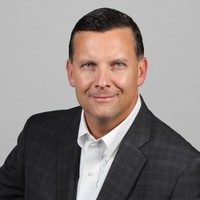
Steve McMichael has held the position of Vice-President Global Ocean Freight Services since 2016 based in Alpharetta, Georgia. With 30 years of experience in international logistics management and transportation services, Steve began his UPS career in 2004 and has held various positions in Retail Solutions and Global Freight Forwarding. Steve lived in Hong Kong from 2008-2011 and held the position of Vice-President of Asia Pacific Ocean Product for UPS. Prior to joining UPS, Steve served in logistics management positions at Polo Ralph Lauren, Kmart, Target, and Fritz Companies. He led major supply chain initiatives for each company that included global strategic business partner selection, U.S. port distribution expansion, and led strategies that optimized their transportation networks and improved overall store presentation. Steve earned a Bachelor of Arts degree in speech communications and business administration at the University of Georgia in 1991. Connect with Steve on LinkedIn.
